2021-22 ACADEMIC YEAR


THE COLLEGE OF LIBERAL ARTS





t is an exciting time to be affiliated with the University of Mississippi and it appears that this is no secret. As you may have heard, our overall enrollment numbers are up this fall both at the university and within the College of Liberal Arts despite national data indicating continued enrollment declines across universities, colleges, and community colleges. It appears our success in this regard is due not only to our ability to recruit students within the state, nationally, and internationally, but also our ability to retain the students on campus. We are particularly proud to see our freshman to sophomore retention rates are the highest ever and we are projected to have our largest freshman class in university history. Further, and perhaps most importantly, our graduation rates continue to improve.
Each year when I write this column there is a common theme, how proud we are of our successes and progress. This year is no different. Since my arrival on campus just over 7 years ago, I have witnessed the tremendous impact your support has on the College of Liberal Arts. It has undeniably helped us become a stronger college, which has significantly contributed to the many successes of the university as a whole. If you don’t know already, you will read in the pages ahead that UM is currently engaged in the largest fundraising campaign in state history. You will also see that the broad areas in which we are asking for your continued assistance include enhancing support for our students, our faculty, and our facilities and the foundational commitment of our university’s strategic plan, which focuses on equity.
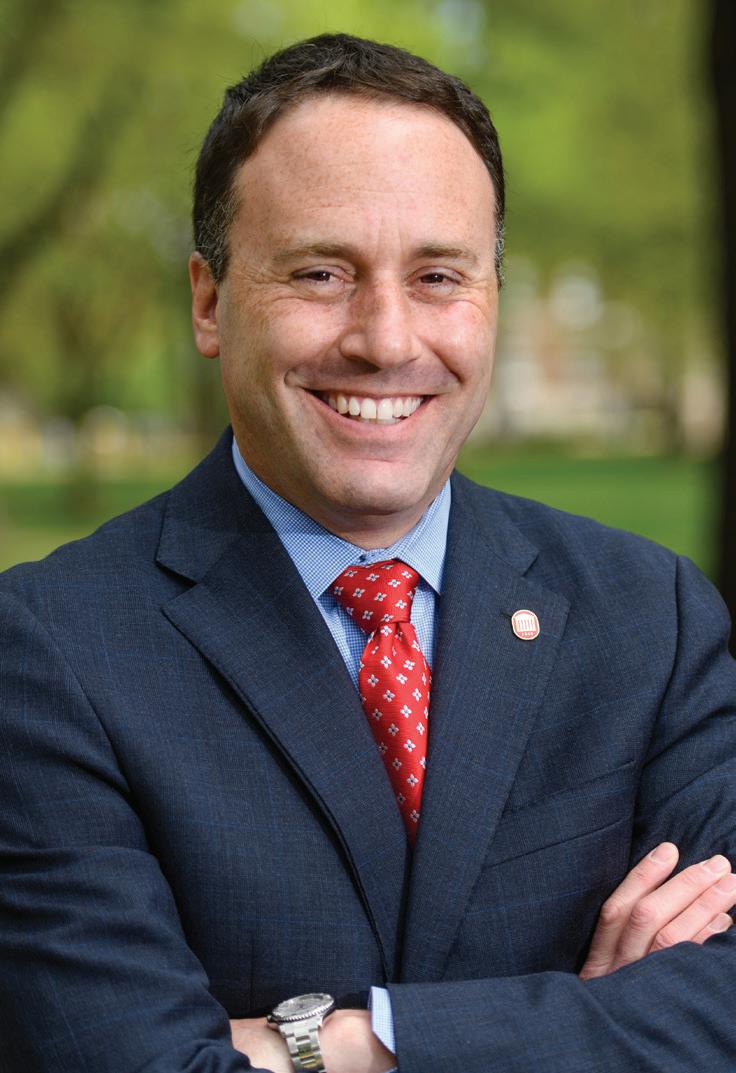
While not a comprehensive list, below I include examples of our accomplishments made possible by the generous contributions of many.
• With your help, we have improved the advising services available to our undergraduate students and increased support to programs designed to help our students graduate and successfully matriculate to graduate studies or employment. During the pandemic, this has been particularly helpful as we have been able to do a better job linking students with available resources.
• Since implementing a program to make our doctoral student stipends more competitive, we have seen enrollment across our 11 PhD programs increase by almost 25% and the number of students graduating with their terminal degree increase by nearly 62%. Graduate stipend support from generous donors has helped to make this happen.
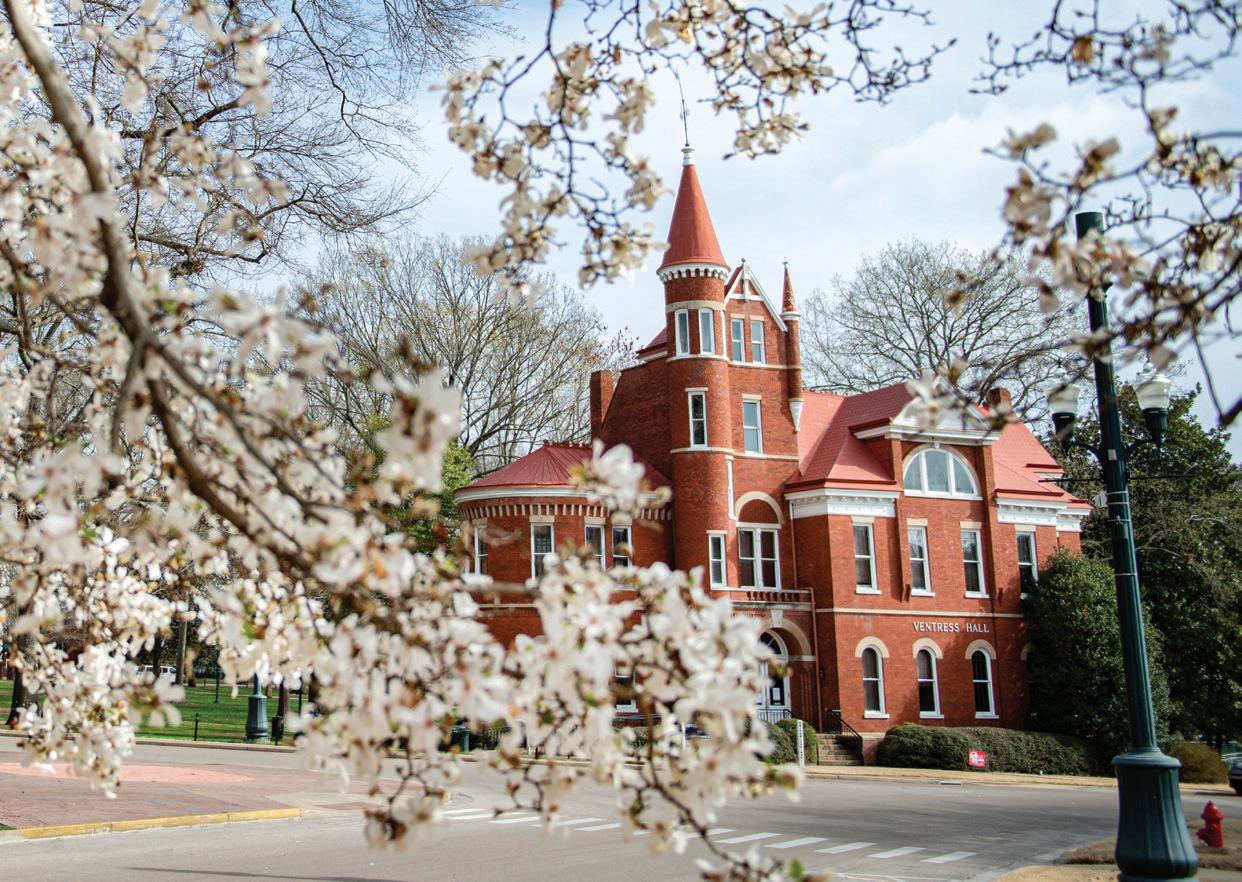
• We have created eight new College-level awards that focus on the research and creative achievement of our faculty. All but one award has been endowed by generous gifts from alumni and friends. These awards come with a medallion to be worn at graduation ceremonies, a plaque recognizing the faculty member’s achievement, and a cash award.
• Over the past several years, gifts from generous alumni and friends have assisted us in making $7.5+ million in much needed facility improvements and upgrades. We have focused efforts on three kinds of renovations: acquisition of new space, renovation of existing space to help improve faculty productivity, and renovation of outdated teaching spaces to improve the learning environment of students.
• Along with the faculty, staff, and students in the College, we have worked to create a plan that will truly make a difference. This said, some students struggle with unexpected costs associated with their education, and your generosity enables these students to complete their degrees and live their dreams. Also, we currently find ourselves in a competitive academic environment. Gifts from alumni and friends allow us to provide additional support to attract and retain our very best faculty through endowed professorships or summer research awards. Our university is strong and getting stronger. Your support of the College of Liberal Arts helps to make that possible. Thank you for your interest, I anticipate that you will enjoy reading about the many accomplishments of our faculty, staff, and students over the past year as you read through this newsletter. Further, I believe you will be proud of your alma mater. Hope to see you on campus sometime soon!
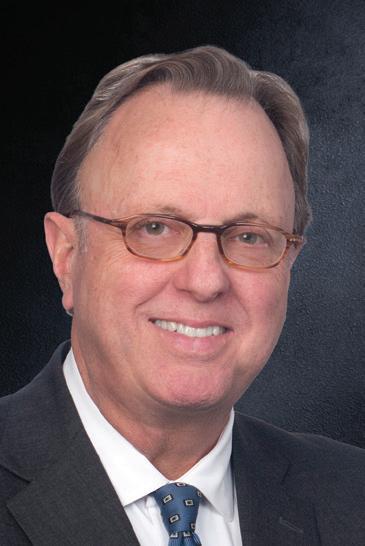
As we look around our beautiful campus this fall, we see a university both the same and very different from the one we attended in the 1970s and 1980s. Students walk across the Grove with the same joy that we once did, but enrollment has almost tripled since we were here. All University of Mississippi undergrads take classes in the College of Liberal Arts regardless of their major or school affiliation. This places a great responsibility upon the CLA to have enough classrooms and faculty to serve these students and to provide low faculty-to-student ratios. As we grow as a campus, this helps us remain “small”—a close-knit community that puts students at the center.
There’s also another big difference from our days as undergraduates—one we should all be extremely proud of. The University of Mississippi is now designated an R1 Doctoral University by the Carnegie Classification of Institutions of Higher Education. This means that we are at the highest level of research activity of universities in the United States, and the faculty in the College of Liberal Arts contributes significantly toward this research.
We know you stand with us in your dedication to sustaining the continued excellence and growth of the College we all love so much. The foundation of our R1 designation rests upon the quality of our professors and graduate students. Bringing them to our campus is a competitive
process. The package we offer them is key to their choosing the University of Mississippi instead of another university that also wants their talent.
For example, most of our faculty are on nine-month contracts and use the summer months, when they do not get paid, to work on projects that are central to their contributions to the fields. The CLA needs to build a fund that provides support for our faculty during the summer months. Our graduate students, too, could benefit from increased funding. For graduate students, a few thousand extra dollars added to their stipend may enable them to avoid having to find a summer job that’s solely for income and instead focus on their work to complete their theses or dissertations. Timely completion of their degrees also minimizes their debt.
Why is your help so critical? Fundraising supports our programs so that we remain competitive with other Public R1 Flagship Institutions. So how can you be a part of the Now and Ever Campaign? The University’s Development Office is always here to assist you and can discuss the myriad options available for giving.
We have each set up an endowment. We know that the word “endowment” sounds like you have to be a titan of industry or a gazillionaire to afford it. We are here to attest you do not! We have both done so and are just regular everyday people. There are many ways to make it happen.
You can be a significant supporter. We know you are as proud as we are to be University of Mississippi grads. Please help us be champions in the classroom as well as on the field by making a sustaining or supporting gift to the College of Liberal Arts.

Thank you—and Hotty Toddy!
Frances Permenter Smith and Sam Lane Co-Chairmen, College of Liberal Arts Now & Ever Steering Committee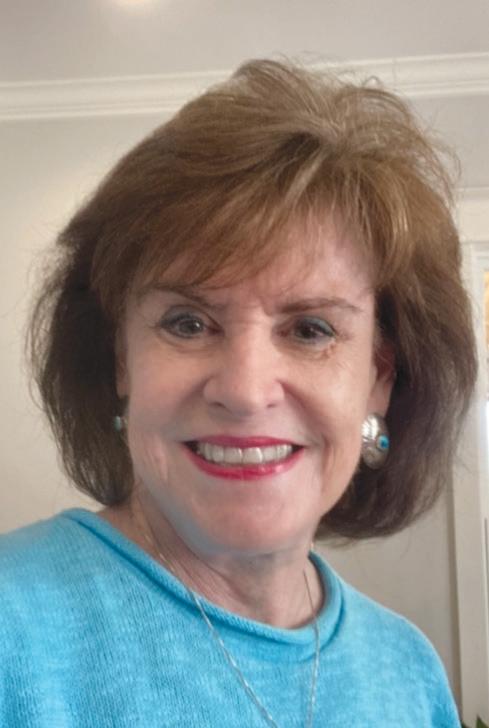
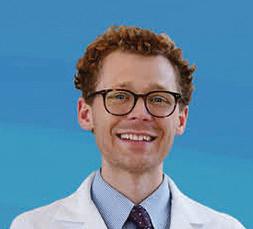
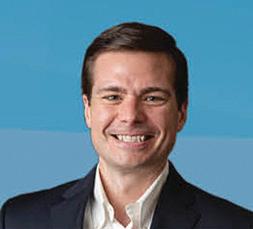
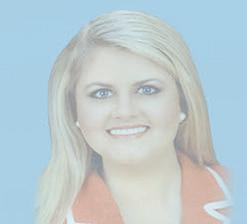

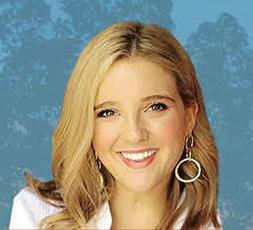
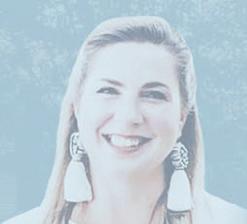
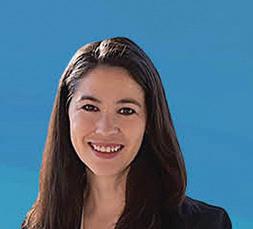
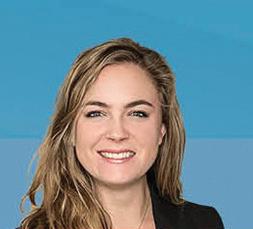
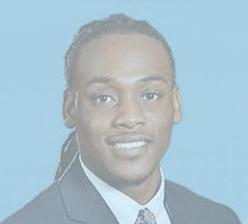
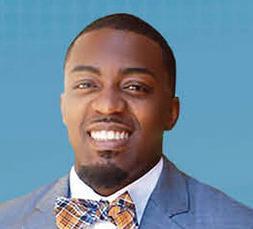


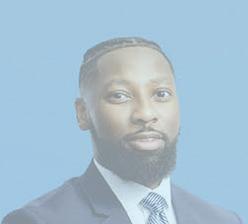
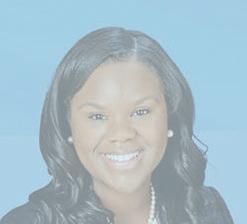
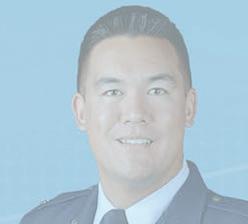
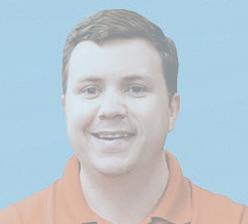
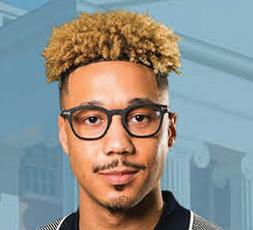
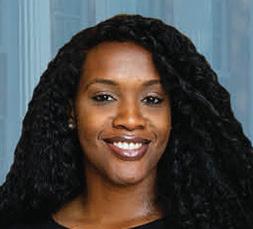

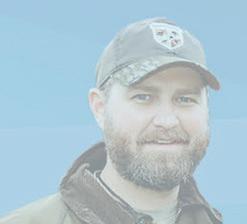
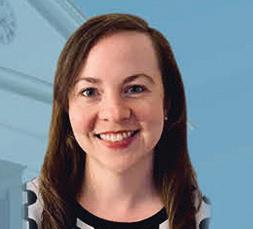
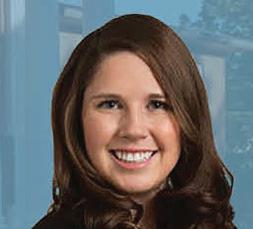


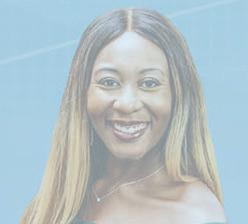

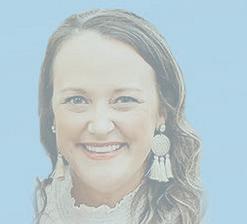
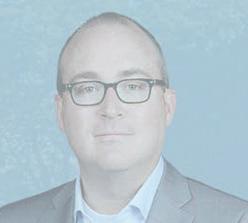
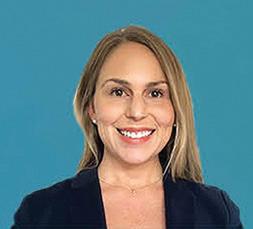
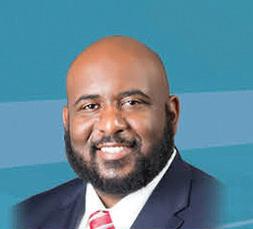
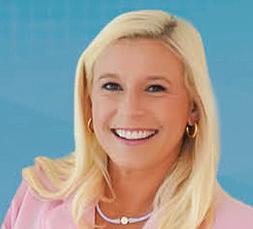
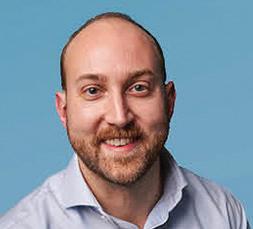

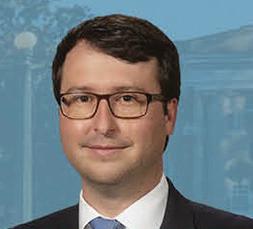


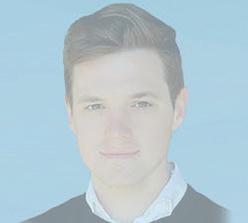
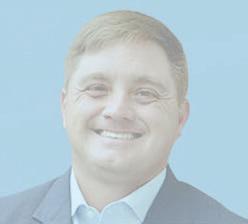
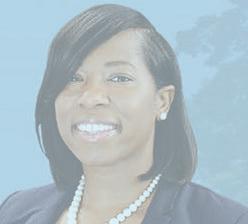

Seventeen of the 40 alumni under the age of 40 celebrated for personal, professional, and philanthropic achievements by the Ole Miss Alumni Association are in the College of Liberal Arts.
The 2022 group of young alumni includes an NBC News producer, a US Space Force commander, a specialist for talent relations and awards at Netflix, and a director of the National Security Council.
“We are thrilled to unveil this first year’s class of 40 Under 40 and to honor their accomplishments,” said Kirk Purdom (BA 93), CEO of the Ole Miss Alumni Association. “These outstanding individuals exemplify leadership in their industries and communities.”
More than 500 nominations were received. Honorees must be active members of the Alumni Association, have made a significant impact on their industry or field, have civic or
Sumner Abraham
BA sociology 12, MD 16
Chief Medical Operating Officer, Relias Healthcare
Julie Howell Addison
BA psychology 07, JD law 10
Assistant US Attorney, US Department of Justice
Erika Berry
BA political science 08
Senior Director of Policy, TennesseeCAN
Vince Chamblee
BA economics, public policy leadership 10, BAccy accountancy 10
Senior Financial Adviser, Hardy Reed
Martha Frances Dalton
BS biological science 11
Assistant Clinical Professor of Veterinary Pathology, Mississippi Veterinary Research and Diagnostic Laboratory, Mississippi State University College of Veterinary Medicine
Christin Gates-Calloway
BA psychology 11
Programs and Policy Manager, The Foundation for Black Women’s Wellness
Billy Glasco Jr.
BA history 05
professional achievements, aspire to uphold the core values of the UM Creed, have earned an undergraduate degree from the university, and demonstrate a commitment to maintaining a lifelong relationship with the university and the OMAA.
“The Class of 2022 represents young alumni with careers in television, government affairs, philanthropy, and even the outdoors,” said Sunny Brown (BSFCS 09, MA 11), assistant director of alumni affairs, who organized the awards. “It was so special to award them in March and allow our current students to network with all that our group has to offer.”
Members of the 2022 class of 40 Under 40 who received degrees in the College of Liberal Arts are:
Daniel Roberts
BA public policy leadership 14
Archivist, Jimmy Carter Presidential Library and Museum-National Archives and Records Administration
Gresham Hodges Meek
BA liberal studies: art, art history, English, and Italian 12 CEO/Creative Director, Gresham
Phelton Moss
BA public policy leadership 12, PhD education 20
Professor of Education Policy and Leadership, American University, and Senior TA Consultant, National Center on Great Teachers and Leaders
Joshua Norris
BA international studies 09, BAccy accountancy 09
Owner, LeFleur Financial Wealth Management
Sarah Bracy Penn BA English 15, BAJ journalism 15 Producer, NBC News
E J Presley
BA psychology 10, MEd counselor education 12, EdD education 19
Assistant Director of Career Development, University of Mississippi
Head of Communications, BrightDrop
Anna Hailey Rubinstein
BA chemistry, Chinese; BS chemical engineering 11
Director of Test and Evaluation, MORSE Corporation
Nicole Tisdale
BA political science 06, JD law 09
Director, National Security Council, White House
Jenny Ann Urban
BA political science, public policy leadership 11, MBA 13, JD law 15, LLM air and space law 16
Consultant, GoCrisis and Adjunct Professor of Aviation Law, Eastern New Mexico University
Marc E. Walker
BS biological sciences 06
Professor of Plastic Surgery and Orthopaedic surgery, Division Director of Adult and Pediatric Hand and Upper Extremity Surgery, and Fellowship
Program Director of Surgery of the Hand, UM Medical Center
The late renowned songwriter and alumnus Jim Weatherly was honored with the university’s first Medal for the Arts in April.
In partnership with the College and the Department of Intercollegiate Athletics, the Department of Music recognized Weatherly’s legacy of songwriting and contributions to many genres of music. The ceremony in the Gertrude C. Ford Center for the Performing Arts featured country music star Brett Young and the Mississippians Jazz Ensemble.
“The Medal for the Arts award recognizes skilled artistry or a supporter of the arts who positively affects the Lafayette-OxfordUniversity community,” said Nancy Maria Balach, chair and professor of music and CEO-artistic director of Living Music Resource, who developed the award with Brady Bramlett, associate director of development and executive managing director of LMR.
Balach and a group of students visited and interviewed Weatherly in 2019 for an episode of LMR Live on location at alumnus Larry Rogers’ studio in Nashville.
Weatherly, who died in 2021, was a star quarterback, leading Coach John Vaught’s squads to SEC championships in 1962 and 1963 and a share of the 1962 national title. He was part of UM’s only perfect season, 10-0 in ’62, which concluded with a 17-13 victory over Arkansas in the Sugar Bowl.
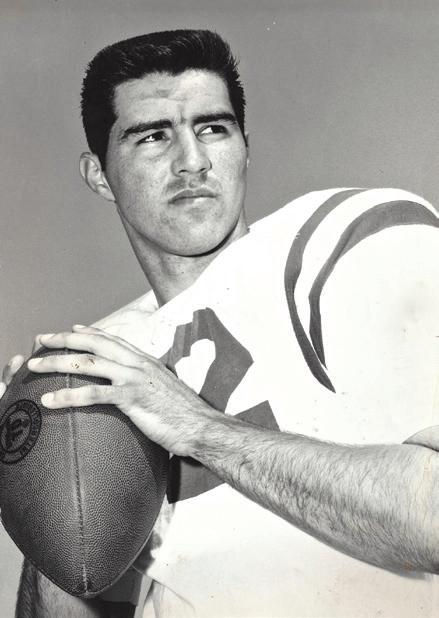
A Pontotoc native, Weatherly had bands during high school and while studying education at UM until he moved to Los Angeles with his rock band, The Gordian Knot, in 1966.
He wrote some of Gladys Knight & the Pips’ greatest hits, including “Neither One of Us Wants to Be the First to Say Goodbye,” “Midnight Train to Georgia,” and “You’re the Best Thing That Ever Happened to Me.” “Midnight Train to Georgia” was inducted into the Grammy Hall of Fame and was named one of the top 500 songs of all time by Rolling Stone magazine.
Weatherly was inducted into the Songwriters Hall of Fame, the Nashville Songwriters Hall of Fame, and the Mississippi Musicians Hall of Fame. He was Country Songwriter of the Year in 1974.
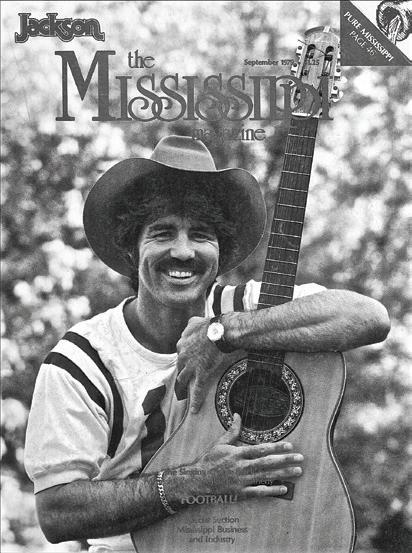

Weatherly had seven albums of his own as a recording artist. The Need to Be reached No. 11 on the pop charts and No. 6 on the A/C charts during the ’70s. He had a Top 10 country record with “I’ll Still Love You.”
After moving back to the South, Weatherly continued to enjoy success. His self-published song “Love Never Broke Anyone’s Heart,” which he cowrote with Vince Gill, is on Gill’s I Still Believe in You album, which has sold more than

5 million copies. They also teamed up to write “If I Didn’t Have You in My World” for the double-platinum Pocket Full of Gold album.
Weatherly’s “A Lady Like You” was No. 1 on the country charts for Glen Campbell. “Where Shadows Never Fall,” also recorded by Campbell, won Weatherly his first Dove Award. Country artist Bryan White had his first No. 1 country hit with Weatherly’s “Someone Else’s Star.” He also cowrote “You Know How I Feel” with White for his debut album.
Weatherly had cuts recorded by Marie Osmond, Charley Pride, Dean Martin, Kenny Rogers, Reba McIntire, Kenny Chesney, Joan Osborne, Hall & Oates, Ed Bruce, The Temptations, The Oak Ridge Boys, Tanya Tucker, Widespread Panic, and Jennifer Hudson.
Recently, Balach was named director for UM’s Institute for the Arts, an entity that will highlight and support the university’s outstanding departments of art & art history, music, and theatre & film, and help showcase the University of Mississippi as the paramount place to study and explore the arts in the state. In future years, the Medal for the Arts award will be part of UM’s Institute for the Arts, enabling the arts departments on campus to collaborate on this prominent award. “Music was the focus of the inaugural Medal for the Arts award, but moving forward the goal is to recognize contributors and patrons across all genres of the Arts,” said Balach.
Dr. Marc E. Walker (BS biological science 06), a plastic surgeon and Mississippi’s only pediatric and congenital hand surgeon, is the founder and clinical director of the Congenital Hand Clinic at Children’s of Mississippi—the pediatric hospital at the UM Medical Center in Jackson.
Walker’s road to success is impressive: after graduating summa cum laude, Phi Beta Kappa, and Phi Kappa Phi from UM, he earned MBA and MD degrees from Harvard University. He then completed his residency in plastic and reconstructive surgery as well as fellowship training in hand and microsurgery at Yale–New Haven Hospital.
After Harvard, where he was student body president, and Yale, where he was chief resident, Walker returned to his home state to join the largest academic teaching hospital and only Level 1 trauma center in Mississippi. At UMMC, the double board-certified surgeon is a tenure-track assistant professor of plastic surgery and orthopedic surgery, division director of adult and pediatric hand and upper extremity surgery, and fellowship program director of surgery of the hand.
“My passion for providing care to underserved populations in large part informed my decision to return to my home state as a plastic surgeon and hand surgeon, treating my fellow Mississippians and training the next
Brady Bramlett
662.915.3081
bradyb@olemiss.edu
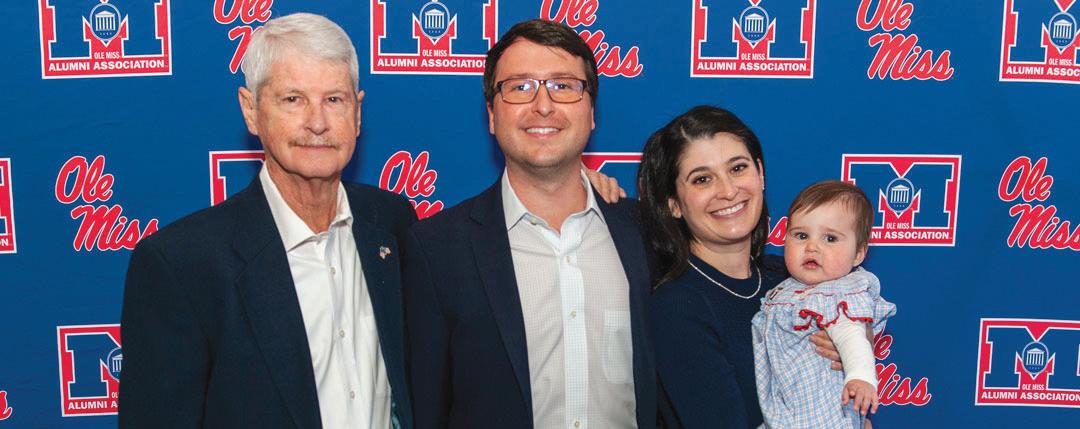
generation of young surgeons whom I hope will be inspired to do the same,” said Walker, whose work extends far beyond state lines.
For 16+ years, the surgeon has traveled throughout Central and South America volunteering his expertise. He serves on the executive leadership board of the pediatric hand surgery mission organization, Hand Help Inc., through which he provides free surgery to children in need. Additionally, as a researcher, author, and journal reviewer, he designs clinical studies to discover and deliver the highest quality care to patients around the globe.
“I experience great fulfillment from service to others,” he said. “This remains a primary driving force behind my work.”
Walker, the first member of his family to graduate from college, has received numerous regional, national, and international awards for his work. Most recently, he was inducted into the Ole Miss Alumni Association’s inaugural 40 Under 40 class and established the Walker Family Endowment with a $150,000 gift providing scholarships for Honors College students and celebrating former Dean Douglass SullivanGonzález, a professor of history.
“I am extremely honored and I’m equally proud of Marc, who was one of our most exceptional students. His extraordinary success is a tribute to the quality of education we strive to give our citizen-scholars every day,” Sullivan-González said.
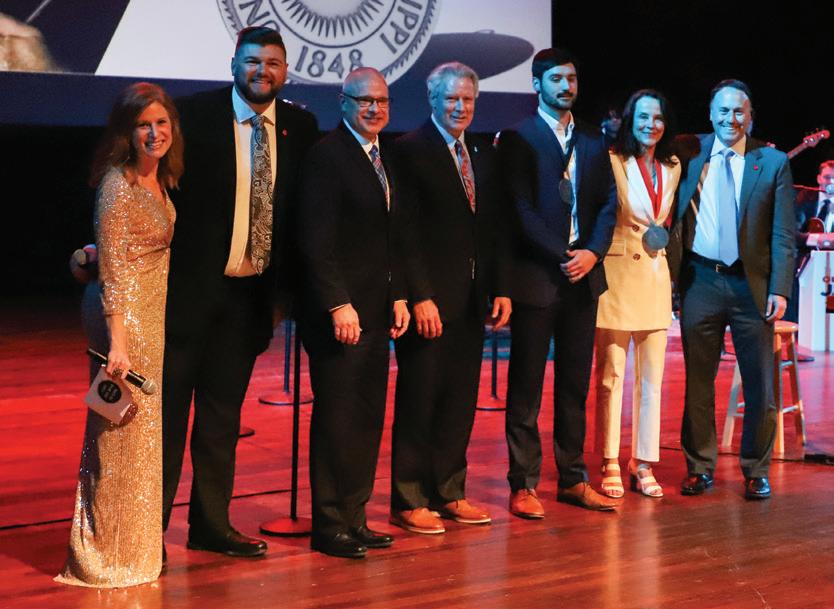
Chef Kevin Mitchell cooked fish and grits with tomato gravy during an appearance on NBCTV’s TODAY show in February. He also demonstrated how to cook salmon with curried blackeyed peas and collards during TODAY with Hoda & Jenna.
Inset: Taste the State: South Carolina’s Signature Foods, Recipes, and Their Stories, University of South Carolina Press 2021
Chef Kevin Mitchell’s Taste the State: South Carolina’s Signature Foods, Recipes, and Their Stories, which he cowrote with renowned food scholar David Shields, was published last fall by University of South Carolina Press.
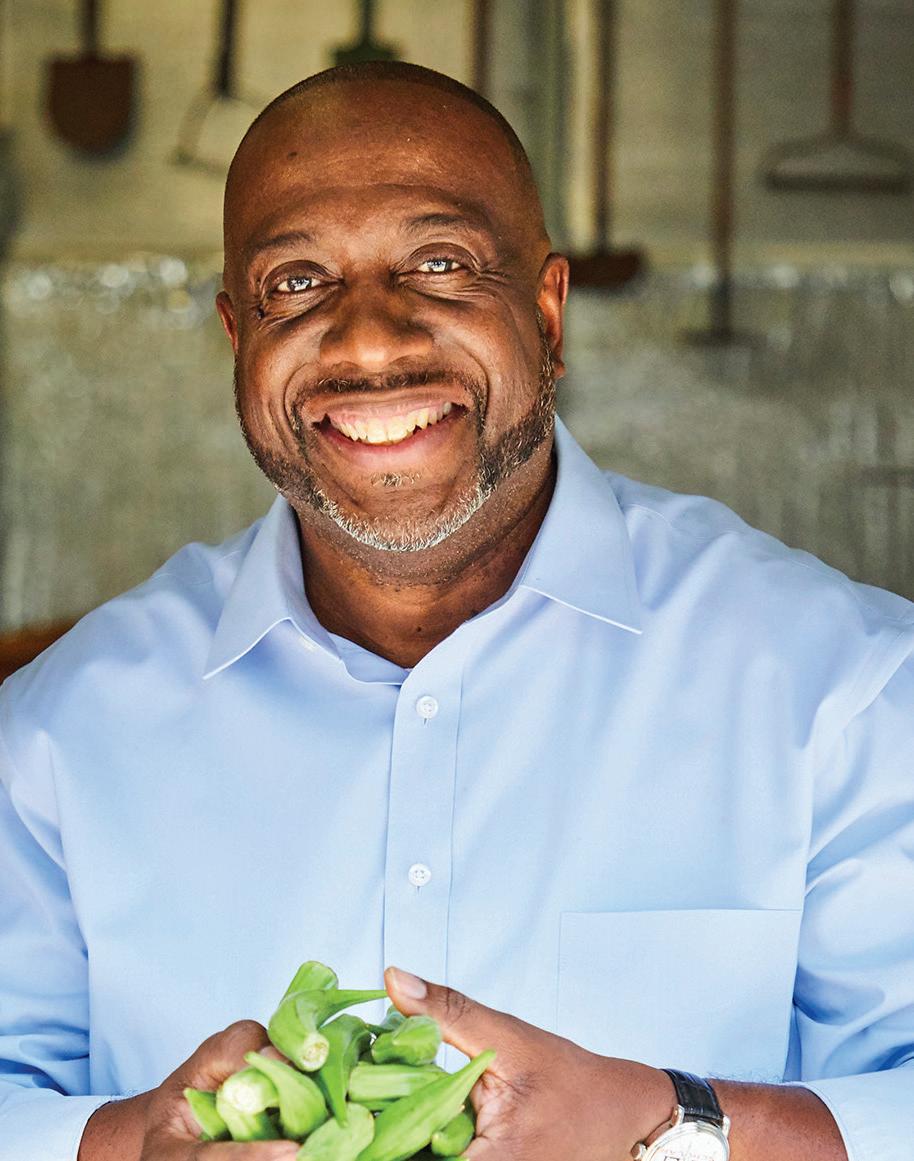
“To finally hold the book in my hand was surreal. After preparing the manuscript, taking photos, cooking food, and many other things, it was great to have the finished product in my hands.”
Artist Vitus Shell (MFA art 08) is on the cover of Louisiana Life Magazine as one of its Louisianians of the Year.
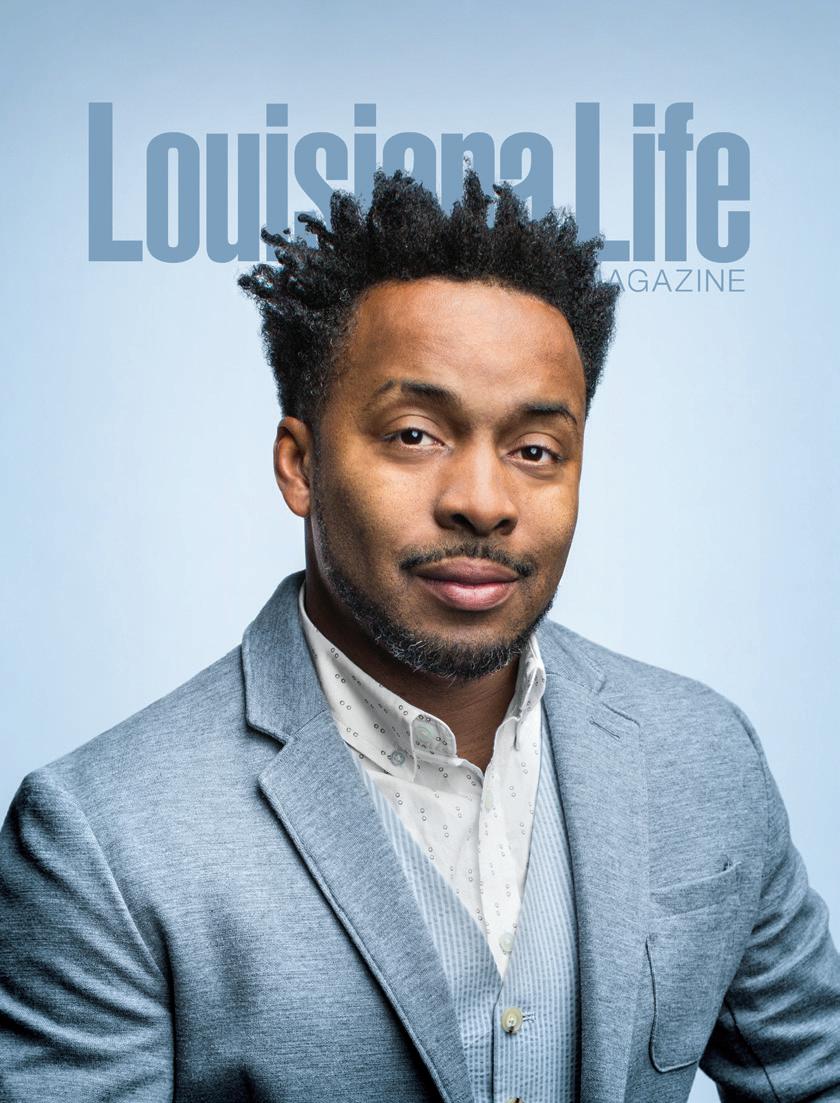
The mixed-media collage painter from Monroe, Louisiana, a visiting assistant professor at Louisiana Tech University, is a stand out in his profession who gives back and represents what’s best about the Pelican State. The January/February 2022 issue describes him as “a remarkable artist who explores the African-American experience through strong, compelling, and often unsettling images of Black contemporary life in America. It is art driven by irony, activism, and his notion of Black ‘coolness.’”
Shell explains: “My paintings are geared toward the Black experience, giving agency to people from this community through powerful image deconstruction, sampling and remixing identity, civil rights, and contemporary Black culture. My artistic goal is to exude the hip-hop lifestyle with a Southern vernacular.
“In my art I’m trying to understand myself through community, through history, through family, through other people’s stories, and through broader conversations within my Black culture.”
The UM alumnus’ paintings were featured in shows with the Ogden Museum of Southern Art in New Orleans and the Joan Mitchell Foundation in New York City. Shell has held prestigious artist residencies at the Joan Mitchell Foundation, Bemis
Mitchell (MA Southern Studies 18) is a chef-instructor at the Culinary Institute of Charleston. While studying at UM, he was the Southern Foodways Alliance Nathalie Dupree Graduate Fellow and wrote his thesis “From Black Hands to White Mouths: Charleston’s Freed and Enslaved Cooks and Their Influence on the Food of the South.”
Taste the State looks at historical recipes and provides a timeline of when foods are introduced. Written in dictionary form, it is already in its second printing, and Forbes Magazine named it as one of the best new cookbooks for travelers.
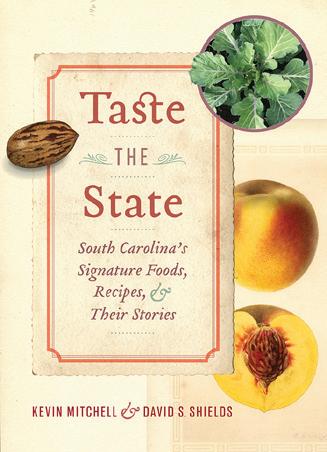
“We tried to keep the focus on the mission of the book—be entertaining and inspiring, put people in the kitchen to try recipes, and not be overly academic,” said Mitchell, who was named a South Carolina chef ambassador in 2020. “We focused on three things: tell people about the ingredients that were forgotten, focus on dishes synonymous with South Carolina, and include dishes people would be surprised by, like asparagus or oranges.”
Center for Contemporary Art in Omaha, Nebraska, and most recently at the Sam and Adele Golden Foundation for the Arts in New Berlin, New York.
Students, faculty, staff, and community members built the Hostile Terrain 94 exhibition. The participatory presentation included sessions in which volunteers filled out hundreds of handwritten toe tags representing migrants who died trying to cross the Sonoran Desert from the mid-1990s to 2020.
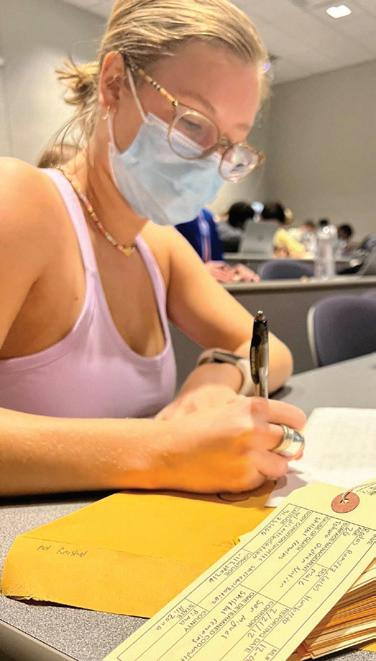
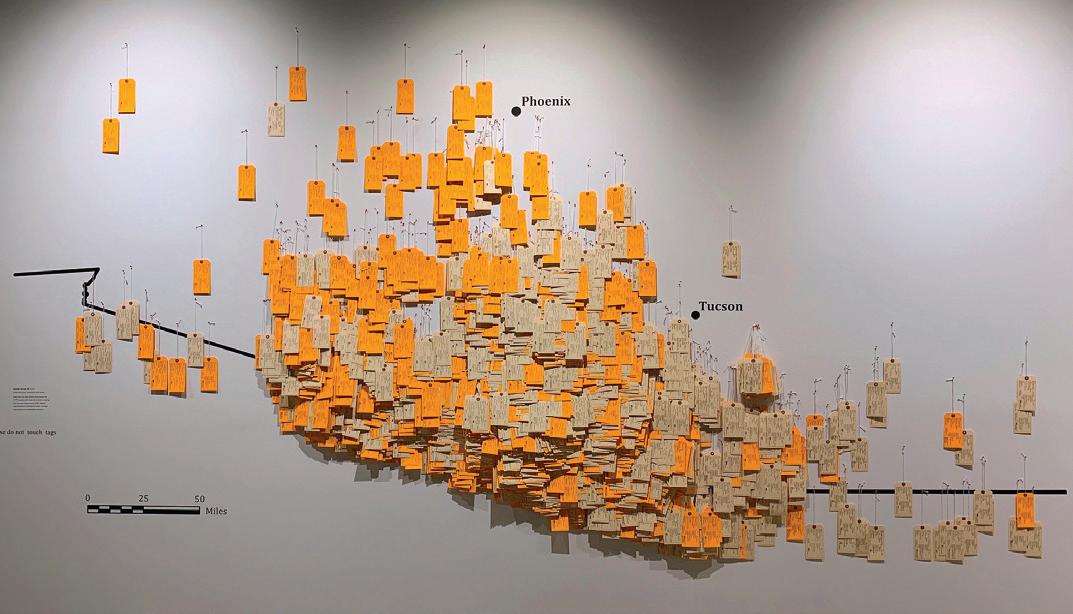
Jason De León, professor of anthropology and Chicana, Chicano, and Central American Studies at the University of California, Los Angeles, shared his experiences as executive director of the Undocumented Migration Project, a nonprofit research-art-education-media collective. His presentation was titled “The Land of Open Graves: Understanding the Current Politics of Migrant Life and Death along the US-Mexico Border.”
The events were part of the Movement and Migration/Future of the South Initiative launched by Simone Delerme, McMullan Associate Professor of Southern Studies and Anthropology, and Carolyn Freiwald, associate professor of anthropology.
“Carolyn and I selected this exhibit, which is taking place at over 120 institutions across six continents, because it raises awareness about the humanitarian crisis at America’s southern border and allows students to engage in conversations about migration,” said Delerme.
“We were lucky to have Dr. De León come to campus. Our students have read about what’s happening at the border and now they’ve heard the stories firsthand. He’s telling stories about migrants, and many of us have migration stories in our own families and ancestors that migrated.”
The university is leading an initiative to bring together scholars and key stakeholders working on themes related to Spanish speakers in the Southeast, particularly in areas where Southeastern Conference schools are situated.
With the Spanish-speaking population increasing in the Southeast, the SEC Spanish Consortium attempts to prepare the region and the SEC universities for this demographic shift.
“Little is known about how Spanish speakers in our region compare—linguistically, culturally, and socioeconomically—to those of more established US Spanishspeaking communities, such as in New York, Los Angeles, and Chicago,” said Stephen Fafulas, associate professor of Spanish.
“Many areas in what have been termed ‘New Destination Communities’ for Spanish-speaking immigrants are in nonmetro regions of the US South. The SEC Spanish Consortium addresses this gap in the previous literature while seeking to prepare the region.”
Fafulas and Daniel O’Sullivan, chair of modern languages and professor of French, began discussing in 2019 how to best prepare for the growing number of Spanish speakers and students at UM and other SEC universities.
“The consortium raises awareness of the educational needs of these cohorts of students, whether it is through specialized language courses for heritage speakers of Spanish or other initiatives that might consider the backgrounds of these students who are often first-generation college students,” O’Sullivan said.
“This aligns with our mission to make education accessible and promote professional success for all students, including those who are minorities or from diverse ethnic, cultural, and linguistic backgrounds.”
The duo is working with peers at other SEC schools and UM’s Center for the Study of Southern Culture, Department of Sociology and Anthropology, and the College of Liberal Arts to organize the first SEC Spanish Consortium Conference in spring 2023.
Beyond the yearly conference and increasing collaboration among SEC scholars and stakeholders working on themes related to Spanish speakers, the consortium seeks to identify external funding that links researchers and students across SEC schools and raise public awareness of key issues on Spanish and Latinos in the Southeast through publications, newsletters, and public presentations.
The consortium pursues training and mentoring of students interested in this area of study, including the creation of a network of specialists who can serve on thesis and dissertation committees and support educational opportunities for Latino and Spanish-speaking students at SEC schools.
ashville Songwriters Hall of Fame member Rivers Rutherford shared the stories behind some of his most popular songs at an event hosted by the Ole Miss Women’s Council for Philanthropy as part of its Robert C. Khayat Lecture Series.
Rutherford (BA English 89), one of country music’s most admired artists, has written a dozen No. 1 hits and earned multiple Grammys, CMA, and ACM nominations, and 20+ ASCAP awards, including Country Song of the Year and Songwriter of the Year.

“I’m an Ole Miss man and Rebel fan, and I get to Oxford as often as I can,” said Rutherford, who has worked as a professional musician in Nashville for 30+ years.
Born in Memphis, where he grew up just blocks from Elvis’ home, Graceland, Rutherford launched his career as a songwriter by having one of his first songs recorded by The Highwaymen, a supergroup featuring Johnny Cash, Willie Nelson, Waylon Jennings, and Kris Kristofferson. Since then, other country music giants have recorded his tunes: Dolly Parton, Brad Paisley, Faith Hill, Tim McGraw, Reba McEntire, George Jones, Carrie Underwood, Kenny Chesney, Brooks & Dunn, and Gretchen Wilson.
His chart-toppers include the Brooks and Dunn country-rocker
“Ain’t Nothing ’Bout You,” Tim McGraw’s “Real Good Man,” Montgomery Gentry’s “If You Ever Stop Loving Me,” Trace Adkins’ “Ladies Love Country Boys,” and Kenny Chesney’s “Living in Fast Forward.”
Dr. Damon Moore (BA English 86), Mississippi’s first African American Rhodes Scholar, delivered UM’s 2022 Phi Beta Kappa induction address.

Moore received an MA in English at Oxford University as a Rhodes Scholar in 1989 and an MD from Johns Hopkins. The Virginia-based pediatrician was inducted into the UM chapter of ΦBK as an alumni member in 2020. He is a lifelong mentor to patients and involved in his community through healthcare programs—facilitating a For Dads Only group for expectant fathers and providing free sports physicals to underserved adolscent athletes.
Moore inherited his passion for literature from his mother, W. Jean Moore, who was his high school English and speech teacher in Coldwater. While he was at Oxford
University, she would call and recite lines from Walt Whitman’s Song of Myself: Failing to fetch me at first keep encouraged, / Missing me one place search another, / I stop somewhere waiting for you.
“I think about plot, character, themes, and that gives me the idea there’s a lot of stuff wrong in the world, a lot of suffering,” Moore said. “And becoming a doctor was a natural reaction to that.”
When he learned he would be inducted as a ΦBK honorary alumni member, Moore penned 51 handwritten notes to all UM resident members.
“I remain indebted to my professors who challenged my thinking in lectures, tutorials, and seminars. The result has been that many years since leaving Ole Miss, I still consider myself a student of life.”
What is the aggregate cost of crime in the US? Should banks be allowed to benefit from credit checks? Does it hurt public safety if police officers are expected to spend substantial time raising revenue by issuing tickets?
These are just some of the many questions that stand at the intersection of two fields: law and economics.
“Economics can be applied to a wide range of complex issues that are vital to society. In my class, we look at court cases from the perspective of economics and efficiency,” said Mark Van Boening, a professor of economics.
His Law and Economics course is one of eight taught in the department’s new law and economics emphasis, in which students apply economic analysis to an array of legal issues including torts, contracts, property rights, the economics of litigation, antitrust law, and regulation.
The emphasis requires five courses that must include Law and Economics and Applied Price Theory. Students then choose among six offerings—Experimental Economics, Government and Business, Industrial Organization, Financial
Economics, Labor Economics, and Public Finance.
In Van Boening’s class, students get hands-on experience in using economics to analyze historical court cases and present the cases.
“In law school, you’re supposed to know the cases and then answer questions using a Socratic method, which is what we do in class,” Van Boening said.
In fact, there are evidence-based studies showing that economics majors tend to have well above average scores on the notoriously difficult Law School Admission Test taken by prospective law students and are among the top majors accepted to law school nationwide.
“Students with an economic background tend to have a leg up taking the LSAT because the exam is based on analytical thinking,” said Joshua Hendrickson, chair and associate professor of economics. “We’ve had law-related economics classes for some time, and we grouped them to create the emphasis because so many of our majors apply to law school.”
Any advantage is significant when jockeying for a spot in a law school;

programs for the entering class last fall had approximately 361,475 applicants, according to the Law School Admissions Council.
“I’ve heard from UM law professors that our economic majors are some of their best students,” Hendrickson said.
In fact, the economics-major edge continues well after law school. A recent study in The Journal of Economic Education reported that “economics majors tend to do very well in both median and mean earnings” after they enter the field.
Madi Young, who entered the University of Tennessee College of Law this fall, was a student in Van Boening’s class, double majoring in economics and political science and minoring in business. “I love to look at law from an economic standpoint,” she said. “I want to be a corporate lawyer, so analyzing court decisions through economics is perfect.”
Students Will Jones, a BFA in film production major (from left); Megan Stewart, a BFA in film production major; Zoe Frassinelli, a BFA in film production major; Oanh Trieu, an accountancy major; Justine Perrier, a French major; Julia Dent, a BFA in film production major; and Kaitlyn Steinroeder, a BFA in film production major; attended a beach screening at the 75th Cannes Film Festival in France for a cinema/French study abroad course with Anne Quinney, professor of French in the Department of Modern Languages.
While at the two-week event, they had the unique experience of watching the films in competition and having a close-up view of how directors, actors, film technicians, media, and locals interact during the most famous annual film festival in the world. The students researched the history of the festival, film competition categories, film marketing, and the reception of films in various countries, wrote daily film critiques, and reviewed live events, movies, and television.
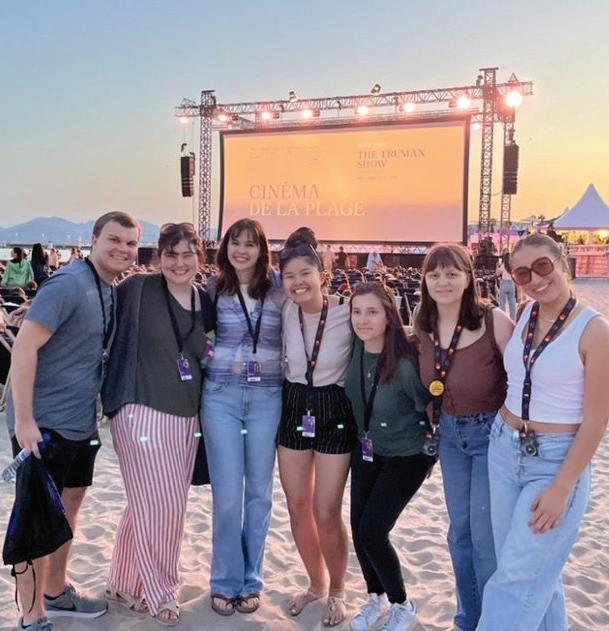
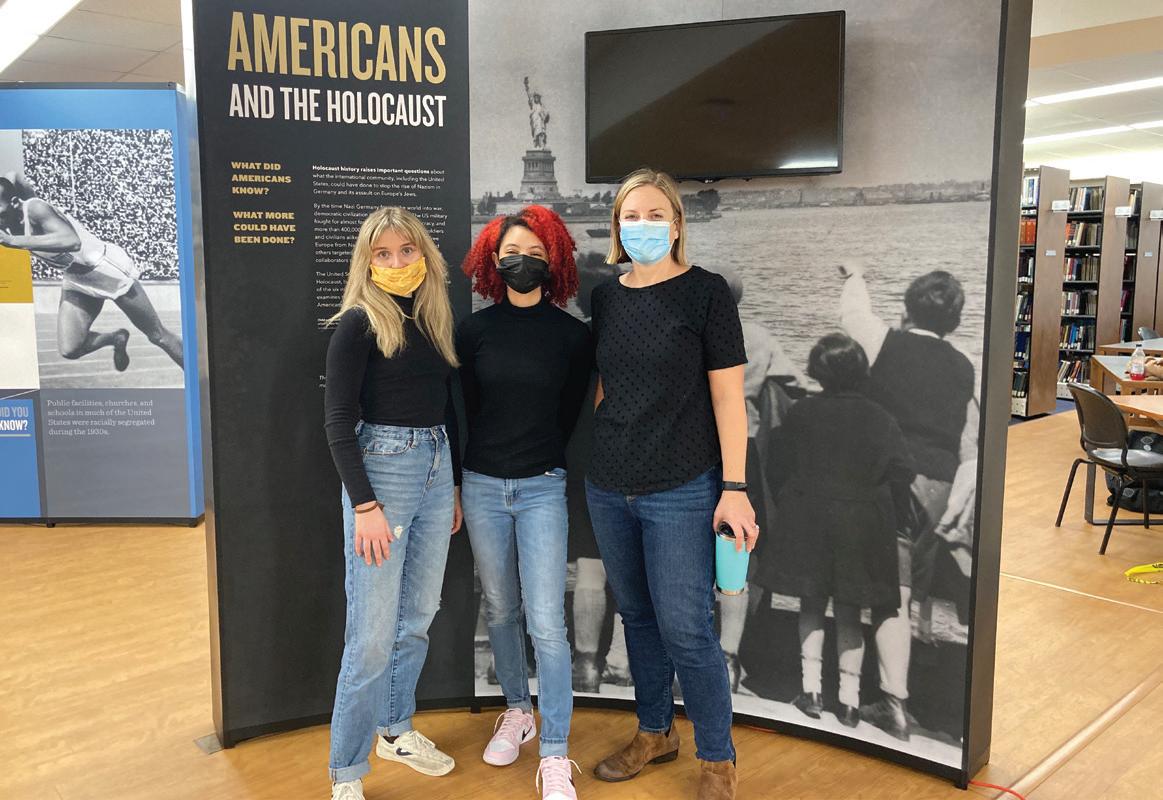
UM joined 50 US libraries selected for a traveling exhibition from the US Holocaust Memorial Museum in Washington, DC. The J D Williams Library with the Department of History and the museum studies minor presented Americans and the Holocaust, an examination of the motives, pressures, and fears shaping the American responses to Nazism, war, and genocide in Europe during the 1930s and ’40s.
The competitive process to be a host considered community demographics, plans for outreach around the exhibition, and the availability of Holocaust-related educational opportunities.
Drawing on a collection of primary sources from the time, the exhibition focused on the stories of American individuals and groups who took action in response to Nazism. It challenged visitors to consider the responsibilities and obstacles faced by individuals who made difficult choices, sought to effect change, and, in a few cases, took significant risks to help.
The exhibition provided a unique opportunity for students minoring in museum studies to participate in the installation. Students Victoria Allen, Reese Anderson, Madeline Duvall, and Kristen Randle assisted Kariann Fuqua, director of the museum studies minor, and the library team with unpacking and assembling the panels and kiosks.
Along with the exhibition, the museum hosted a professional development workshop for area middle and high school teachers on the UM campus. “The museum strives to provide guidance and resources to help teachers feel more confident about teaching the Holocaust,” said Laura Boughton (BA history 88, MA 93), program coordinator of the US Holocaust Memorial Museum.
Christopher Fox, a recent alumnus embarking upon a teaching career at Oxford High School, has been selected for inclusion in the prestigious Knowles Teacher Initiative.
Fox (BA biochemistry 13, PhD chemistry 20) is among 31 chosen nationwide for the 2022 cohort of teaching fellows. The initiative supports a national network of mathematics and science teachers who are collaborative, innovative leaders improving education for all students.
“I am honored. I am not a traditional teacher, having been formally trained as a research scientist, and so when I was selected to be among the 31 fellows, it was definitely a confirmation to me as an educator.”
As a graduate researcher, Fox worked with many freshmen while functioning as a teaching assistant for general chemistry labs as well as a tutor for general chemistry courses. Helping undergraduate students, he discovered a passion for teaching and while earning his doctorate he earned a teaching license via an alternate route program to teach on a secondary level.
Fox finds the interpersonal relationships and bonds the most rewarding aspect of teaching. “From my experience, I am convinced that this is what forms the fertile ground for education and learning to prosper in young learners. I plan to utilize every opportunity offered by the fellowship to collaborate and network with teachers across the nation. My desire is to learn from this community of educators to perfect my understanding of pedagogy.”
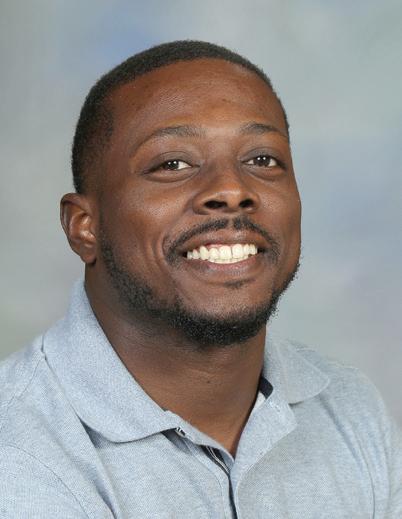
The exhibit challenged visitors to consider the responsibilities and obstacles faced by individuals who made difficult choices.Christopher Fox
orris Allen “E J” Edney (BA biological science 11, MA higher ed/student personnel 13, EdD higher education 18) has been promoted to assistant vice chancellor for diversity and inclusion. Edney spent his time as a student searching for ways to include people of more backgrounds, experiences, and abilities. While pursuing his master’s, he participated in creating the university’s Center for Inclusion and Cross Cultural Engagement. He finished his doctorate and was named director of the very center he helped establish, a position he considered his dream job.
“I fell in love with this field because of this place. When I sit in spaces on campus, work with students to get connected, or even write grants, I don’t just imagine myself in that student’s position, I can feel myself in their situation.”
Having attained his dream job and more, Edney hopes to create an environment where all students have that same opportunity.
“I think about my role as one that is seeking for us to more fully actualize our mission as the public flagship institution of Mississippi. If we are to accept, frame, and think about education as the great equalizer—the ladder of opportunity—then as a public institution, it’s our job to make sure as many students as possible have an opportunity to climb that ladder.”
In 2016, Matt Kessler, then an MFA in creative writing student, proposed implementing more local queer community activities.
“I loved Oxford, but there were no gay bars or spaces for queer people to hang out.”
The first event Kessler organized with UM’s Sarah Isom Center for Women and Gender Studies was a screening of Small Town Gay Bar, a documentary about two establishments in Meridian and Shannon with a drag show.
The“Matt was instrumental in creating queer events in Oxford, including the Code Pink monthly LGBTQIA+ dance on the Square. Once he secured a parade permit, we worked with him and others to plan a weekend of events. Oxford Pride has expanded to an entire week,” said Kevin Cozart, Isom Center operations coordinator.
When Kessler graduated, the Isom Center and artist Jonathan Kent Adams (BFA art 14) and his fiancé, local LGBTQIA+ activist Blake Summers, began coordinating Code Pink.
“The creation of inclusive spaces is central to our mission,” said Jamie Harker, director of the Isom Center. “We want the LGBTQIA+ community in Mississippi, especially queer youth, to know they are valued and loved.”

In addition to the parade this year, Oxford Pride held a professional drag show featuring Trinity the Tuck, season four winner of the TV show RuPaul’s Drag Race All Stars, hosted by local queen Fendi LaFemme.
“People outside the region assume living here is wretched for the queer community. There are challenges. But as a result, the LGBTQIA+ community is inventive, resourceful, and inclusive and it tends to embrace the entire community in a network of care. To be queer in Mississippi is to be part of a vast and glorious tribe, one I am proud to claim,” said Harker.

To celebrate the 100th birthday of writer Elizabeth Spencer, who taught English and creative writing at UM in 1948–51 and 1952–53, the Department of Music's Opera Theatre production of her 1960 novella The Light in the Piazza took the stage at the Gertrude C. Ford Center for the Performing Arts.
A hit on Broadway, the Tony Awardwinning show transports the audience to 1950s Florence, Italy, when an American woman and her daughter visit and unforgettable music and love ensue.
Alumni returned to campus to lend their expertise, talent, and guidance to students. Mary Donnelly Haskell and Calvin Ellis, who both earned degrees in music education, had lead roles as parents of the two young stars, played by students Emma Johnson and Isaiah Traylor, who are both earning a Bachelor of Music with an emphasis in music performance.
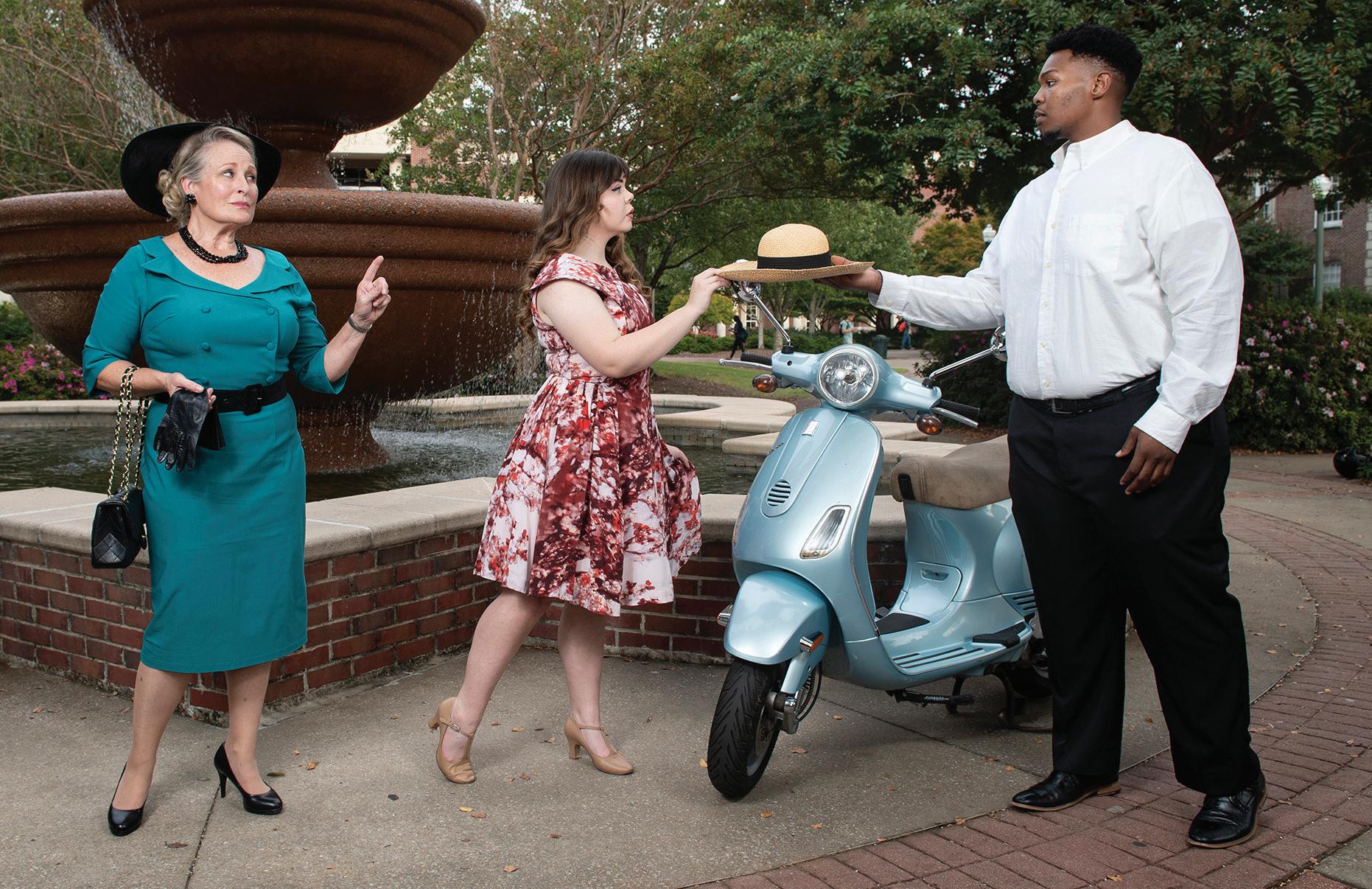
“My preparation included research, time in the practice room ensuring that pitches and rhythms were accurate, while simultaneously synthesizing the accent of the character into the text,” Traylor said.
Blake McIver Ewing, the Opera Theatre artist-in-residence and director for the production, said that “one of the luxuries of creating this production over
the course of the entire semester is that we had time to dive into the character work of the piece.
“I hope the student cast felt they got a full professional production experience. We took the time to examine what it means to be a working professional, and with the phenomenal Mary Haskell at the helm of this dynamic cast, they were exposed constantly to her incredible experience and work ethic.”
Johnson said that “on top of being cast in one of my dream roles, working with the talented Mr. Ewing and Mrs. Haskell was wonderful. I learned so much from them.”
gave him an opportunity to work with Steven Spielberg and Penelope Spheeris. Ewing's accomplishments include live theater and the recording studio.
Haskell played Margaret in The Light in the Piazza in Los Angeles, in which Ewing performed the role of Fabrizio. Crowned Miss Mississippi in 1977, she has starred in episodes of Touched by an Angel, Seventh Heaven, Sisters, Diagnosis Murder, Days of Our Lives, and 20+ TV movies—including two of Hallmark Channel’s highest-rated Christmas movies: Once Upon a Christmas and Twice Upon a Christmas. An accomplished singer who has performed at the Kennedy Center and White House and with the Prague Symphony Orchestra, Haskell has released four children’s CDs, an adult contemporary album, and a collection of sacred hymns and praise songs.
Performing on network television at age six, Ewing was as interested in what went on behind the camera as in front of it. His starring roles on television hits Full House and Hey Arnold led to feature films including The Little Rascals and
Grants from the Mississippi Humanities Council and UM Lecture Series enabled the music department to present a residency with Adam Guettel, the Tony Award-winning composer of The Light in the Piazza. In collaboration with the Center for the Study of Southern Culture and other partners, the celebration included public programming, a SouthTalk lecture, a master class, and a Living Music Resource Live program.
“My hope is that the student cast felt that they got a full professional production experience.”
—Blake McIver Ewing Opera Theatre artist-in-residence
Jack Dellinger was writing his undergraduate honors thesis when he made an astonishing discovery. Delving into a newly released book of essays by the subject of his thesis— Harvard Law Professor Adriane Vermeule—he saw that several of their arguments overlapped. Each had written a rebuttal to the critics who attacked Vermeule’s bold new ideas about constitutional originalism.
“I was blown away when I saw the essays,” said Dellinger. “I was afraid people would think I was stealing Vermeule’s ideas because there was definitely a similarity between some of his arguments and mine—but I was relieved to see that my thesis stands on its own.”
Furthermore, Dellinger realized that he was part of a cutting-edge philosophical controversy, and he loved it. Normally, as a graduating senior, he would hand in his thesis and be sidelined from a roiling philosophical debate about originalism and the common good. But Dellinger will be in the mix because he is in the Program for Accelerated and Advanced Degrees (PAAD).
In the PAAD, outstanding students take graduate-level courses as undergraduates and earn both a bachelor’s and a master’s degree in five years.
“We saw that many talented freshman students arrive with college credit,” said Annette Kluck, dean of the Graduate School. “Some don’t need four years to complete their undergraduate degree, so we’re enabling them to finish a second degree by adding one more year.”
The College currently has four PAAD programs, in history, philosophy, political science, and Southern Studies.
“The graduate classes are smaller and more in depth. Honors College students can expand on their thesis,” said Dellinger’s thesis advisor Steven Skultety, chair and professor of philosophy and religion. “This is a great opportunity for a student like Jack, who has shown energy and promise. He can make a serious scholarly contribution to the field—and having a master’s degree will distinguish him if he wants to apply to law school, which many philosophy majors do.”
John Bruce, chair and associate professor of political science, concurs.
“An advanced degree and empirical skills give students an extra edge no matter what they do after graduation, whether they’re entering the job market or going on with their education.”
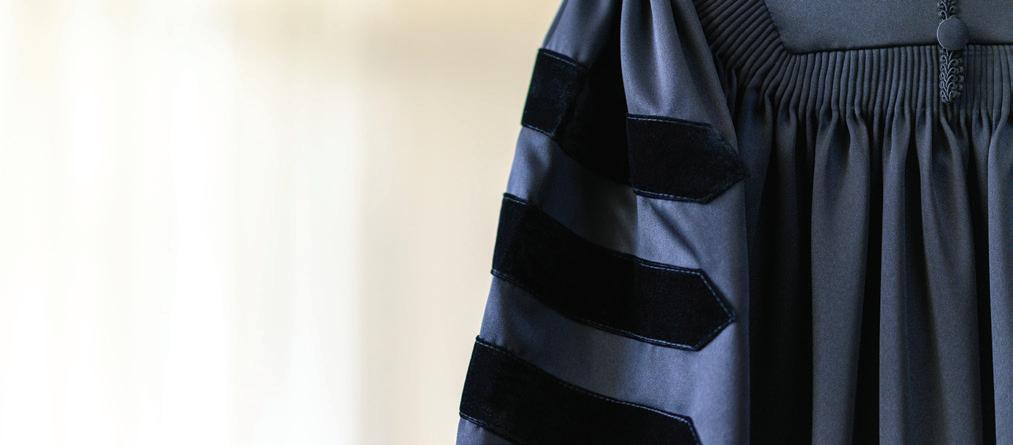
Bruce notes that many political science majors, too, apply for law school, and he’s seen that PAAD students have an advantage. Similarly, if students will be entering a doctoral program, “PAAD can set you apart and also give you a sense of what graduate school will be like before you commit to a doctoral degree.”
The College of Liberal Arts hosted a first-time “Meet and Greet” at this year’s Black Alumni Reunion (BAR). We welcomed returning BAR attendees who were graduates of the College as they arrived for a full
weekend of planned events that included socializing with friends and connecting with university leaders. The Dean, joined by College faculty and staff, met alumni and their family and friends for a morning filled with good food, great stories, lots of pictures, and opportunities to meet friends— old and new.
This event supported the Dean’s goal to celebrate inclusion and equity within the CLA and to connect with graduates of the College to acknowledge that their experience likely took extra courage and grit. We appreciate and commend their hard work.
“The College recognizes the importance of celebrating the accomplishments and successes of our minority communities,” said Kirsten Dellinger, associate dean for diversity, equity, and inclusion and professor of sociology. “Participation in BAR was a wonderful opportunity to connect with our African American graduates. We have received lovely notes from attendees, and we look forward to more visits in Ventress from BAR attendees between now and the next BAR event.”
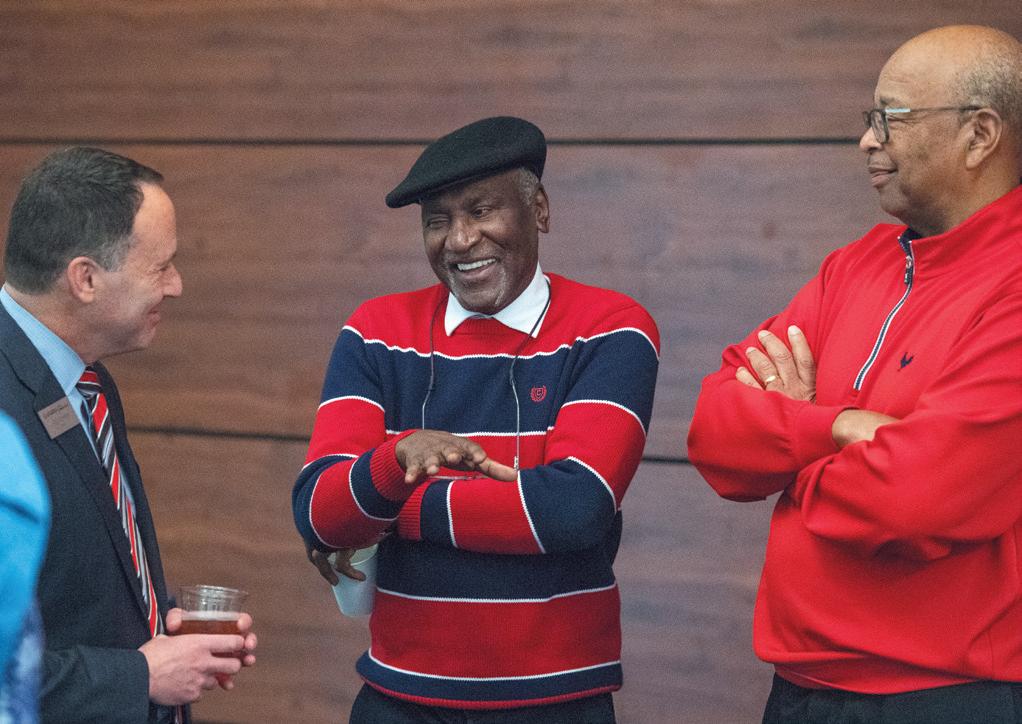
“An advanced degree and empirical skills give students an extra edge after graduation.”
—John Bruce chair and associate professor of political scienceDean Lee M. Cohen (left), Don Cole, and Lawrence Anderson
Biological science students are broadening their horizons by taking classes in the Caribbean, Hawaii, and Arizona taught by professors Brice Noonan, Erik Hom, and Jason Hoeksema.
“The Department of Biology is fortunate to have a number of off-campus opportunities that allow students to explore such varied topics as the biodiversity of the desert southwest in Arizona and the interaction of biology and society in Hawaii,” said Noonan, associate professor of biology.
Noonan’s Island Biogeography in the Caribbean and Hom’s Hilo and Volcano, Hawaii: Life at the Interface; Microbes, Volcanoes, and Culture are Wintersession courses while Hoeksema’s Ecology and Evolution course in Arizona is offered over the summer.
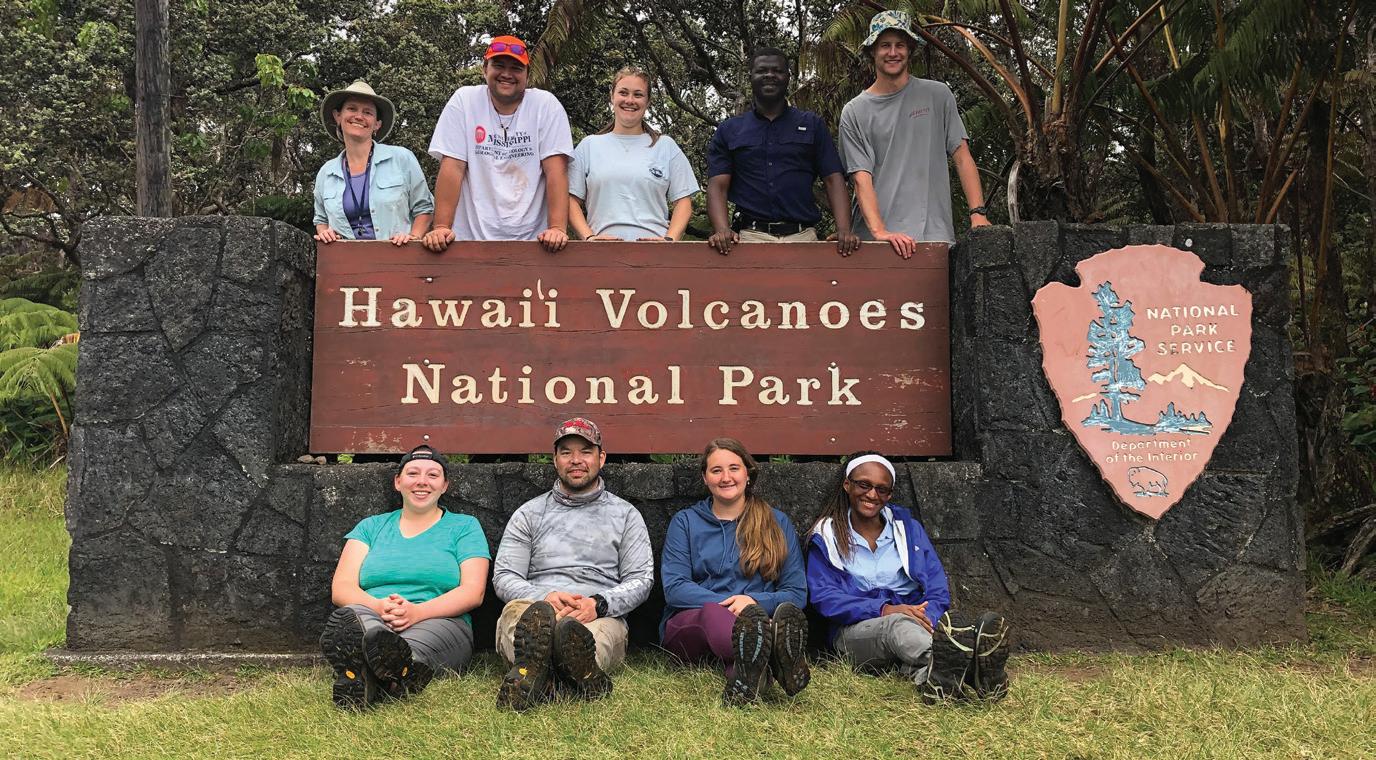
“To me, the best thing about this class is that southeastern Arizona is a major biodiversity hotspot with a beautiful landscape, making it the ideal outdoor laboratory for learning about species in their natural environments,” said Hoeksema, professor of biology.
documenting interesting plants or animals. We conducted research projects; mine was investigating the concentration of different species of bats. All aspects of this course offered enjoyable and direct approaches to exploring science.”
“I believe training young scientists and researchers is much more a journeyman experience than most people realize, one that is poorly captured by traditional lecture-lab courses,” Hom said.
“The type of field courses I have led to California and Hawaii emphasize ‘experiential learning’—on-the-spot critical thinking combined with hands-on practice—and has excited students without fail that they are ‘doing science.’ Having students ‘do science’ is precisely the goal of my field courses. Teaching students in a beautiful but unfamiliar environment helps a lot with metacognition, helping them to see science in a different and more culturally far-reaching context.”
Dr. Hom had said it would be and more. It was an engaging class, from listening to professors to harvesting tea leaves. My top memorable moments: visiting a honey farm and learning about bees, and when the class went snorkeling, I was pushed out of my comfort zone and it made me want to learn how to swim.”
Tiffany Nguyen from Indianola enrolled in Island Biogeography to study abroad and to fulfill a biology elective for her biochemistry major. “It became my favorite memory at Ole Miss,” she said.
“Students are immersed in nature, learning to recognize species and how they fit into their characteristic habitats, while hiking and exploring in an outdoor wonderland.”
Meredith Goza, a biological science major from Oxford, participated in the Arizona class. “Every day we explored the habitat we were studying,
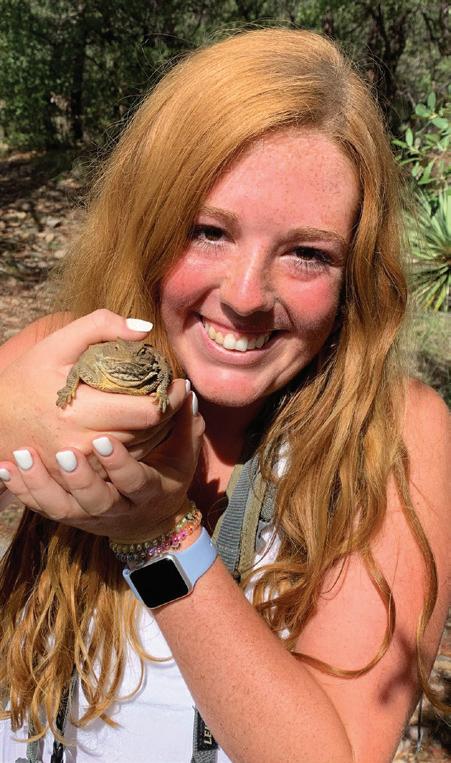
Recent biological science graduate Jaylen Powell from Lambert works in Hom's lab to gain more skills before graduate school. He enrolled in the Hawaii course because of a talk with Hom. “It was my junior year and I did not know what I wanted to do with my life. Dr. Hom explained that I should step out of my comfort zone and gain a new perspective. After much deliberation and reassurance that airplanes are safe, I decided he was right.
“The Hawaii experience was everything
“Students explored the jungles of Jamaica, the forests of St. Thomas, and the coastal communities of the Bahamas while learning the biological principles that dictate the biological communities they observed,” said Noonan.
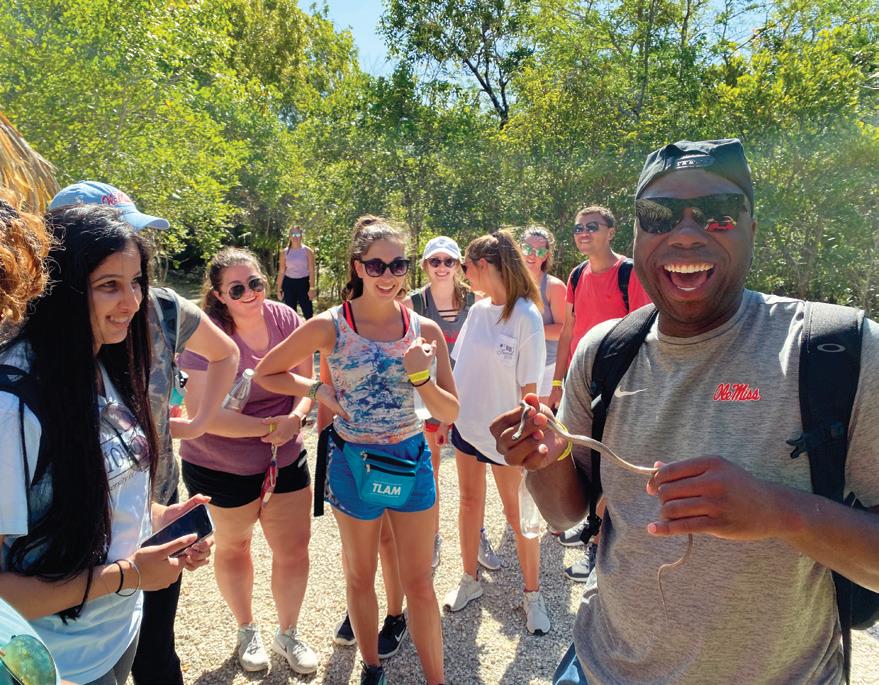
“During winter intersession, it was nice to focus on one class,” Nguyen said. “We would have class on ship days, and on island days we would have our ‘lab’ where we hiked around the islands to find species and study the islands.”
Through travel and study, students gain a more holistic view of the field of biology.
The Department of Classics and Office of Veteran and Military Services are using the lens of ancient Greek literature to explore the emotional and social tension between soldiers and the societies that send them to war.
A Veterans Day event last November was designed to help veterans and other people confront and understand issues often hidden.
Theater of War is an innovative public health project that presents readings of scenes from Philoctetes— written in 409 BC about a mythical war—as a catalyst for guided discussions about the challenges faced by service members, veterans, and their families. Using Sophocles’ play to forge a common vocabulary for openly talking about the visible and invisible wounds of war, the event aimed at generating compassion and understanding between diverse audiences.
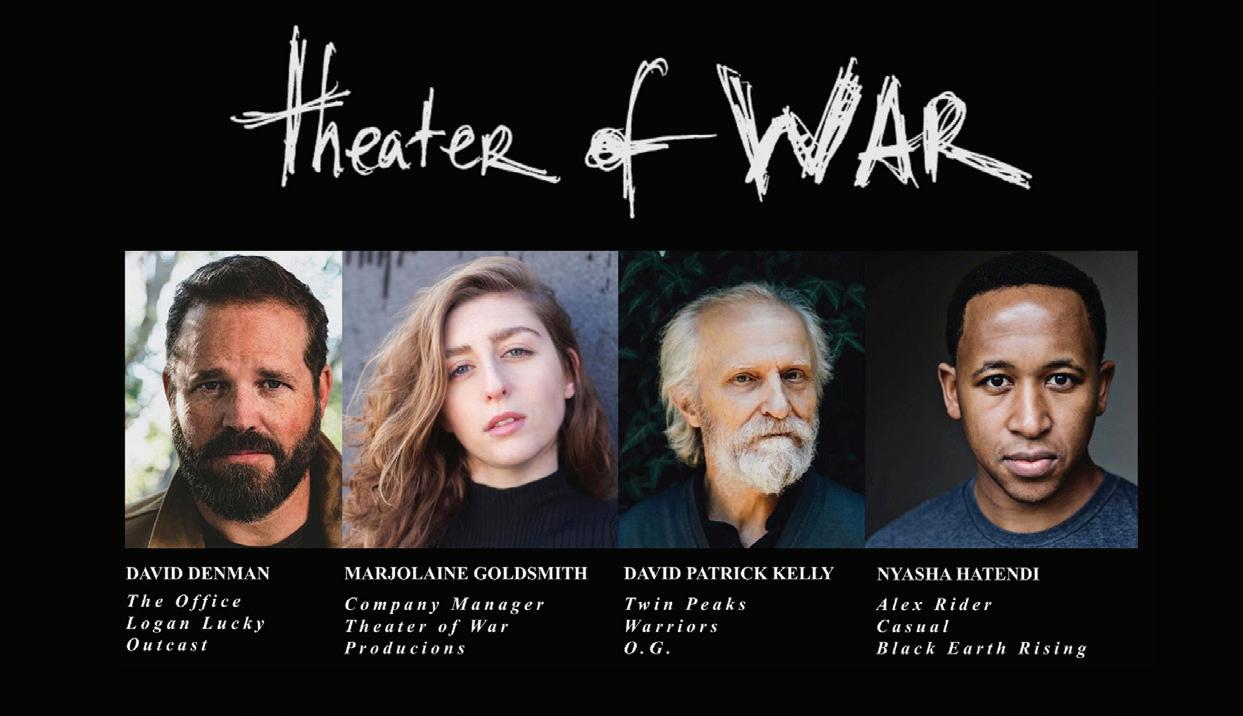
“War is ever-changing and never-changing at the same time, so exploring literature gives veterans a voice and agency to speak up about what they’ve experienced, who they are, and who they’ve become because of what the country has asked of them,” said Andrew Newby, assistant director for veterans and military services and a 10-year veteran of the US Marine Corps and Army National Guard.
“These conversations are critical because the reason we have a lot of the problems we have in veterans’ affairs and foreign policy is that we’re so detached from the actual human cost of conflict.”
The program began with the screening of a dramatic table reading of Philoctetes by professional actors David Denman, known for The Office, Logan Luck, and Outcast; Marjolaine Goldsmith, Theater of War Productions company manager; David Patrick Kelly of Twin Peaks, Warriors, and O G; and Nyasha Hatendi of Alex Rider, Casual, and Black Earth Rising
A panel of local veterans reacting to the reading and its relation to their own experiences was followed by a guided discussion about the societal challenges and physical and emotional wounds veterans face upon returning from war.
“It’s always possible for us to connect these texts with our lives, but this project did it in a vivid way and the performative aspect hits people right where they live,”
said Molly Pasco-Pranger, chair and professor of classics. “It allows them to connect in a visceral and immediate way with the words of the ancient Greeks and their own grappling with the experiences of war and wounds that war leaves on individuals, families, and communities.”
Pasco-Pranger and Newby started a veterans reading group to help veterans explore their own experiences through literature. That reading group evolved into the course LIBA 305: Humanities and the Experience of War. Students compare The Odyssey, an ancient Greek epic poem written in the eighth century BCE and attributed to Homer, and The White Donkey, a graphic novel published in 2016 and written by Maximilian Uriarte, which follows a Marine veteran of the Iraq War as he returns to civilian life.
“This play is about betrayal and that’s the reason we need to have these conversations,” Pasco-Pranger said. “Having the conversations through the language of the play allows people to get a little bit of separation from the present and open up. I notice this in my teaching—how talking about issues through the lens of ancient literature gives enough distance to feel safe venturing onto difficult ground.”
“Talking about issues through the lens of ancient literature gives enough distance to feel safe venturing onto difficult ground.”
—Molly Pasco-Pranger chair and professor of classicsEvent poster
The university’s first Bonner Program students have started their four-year campaigns to transform the campus and community through service projects.
Fourteen students are working with the leaders of their assigned internships for four years addressing longstanding challenges and also finding new opportunities. Housed at UM’s Center for Community Engagement, the Bonner Program is a diverse, multistate network of universities joined through a common commitment to the Corella and Bertram F. Bonner Foundation’s mission to transform students, communities, and campuses through service.
“I love this program because I have a passion for helping others, and I would like to prove that anything is possible with hard work and dedication,” said Kimberly Vazquez, a biochemistry major who works with new Oxford Intermediate School students who do not speak English as a first language.
“My first language is also Spanish, and I know how hard it is to go to a new school that speaks a different language. I hope to be a useful resource to these students.”
Anthony Day, a biochemistry major, helps United Way support community health, education, and financial stability.
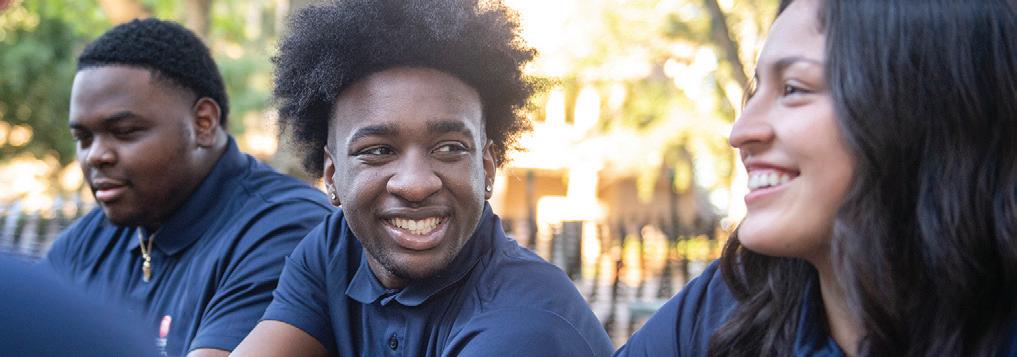
“I hope my Bonner experience gives me the skills to be a good leader,” Day said. “I hope to gain the necessary knowledge to help the community and anyone in need.”
Andi Brice, a psychology and public policy leadership double major, is a research and marketing assistant for OxFilm, an organization celebrating independent cinema and encouraging filmmaking in Oxford and North Mississippi.
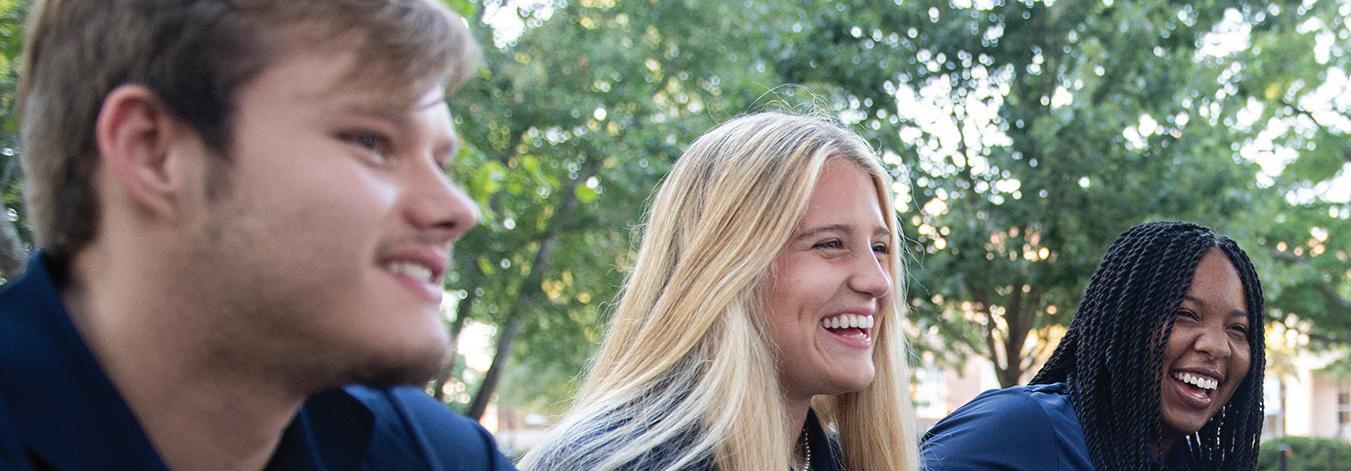
“Upon my arrival, the Bonner program provided a supportive group of like-minded individuals,” she said. “I am fortunate to have made connections immediately and to have an engaging community service project for four years.”
Alumnus Emmitt Riley III (PhD political science 14) is an associate professor of Africana Studies and political science at DePauw University where he also serves as director of Africana Studies. In 2021, he was DePauw ’s Faculty Member of the Year.
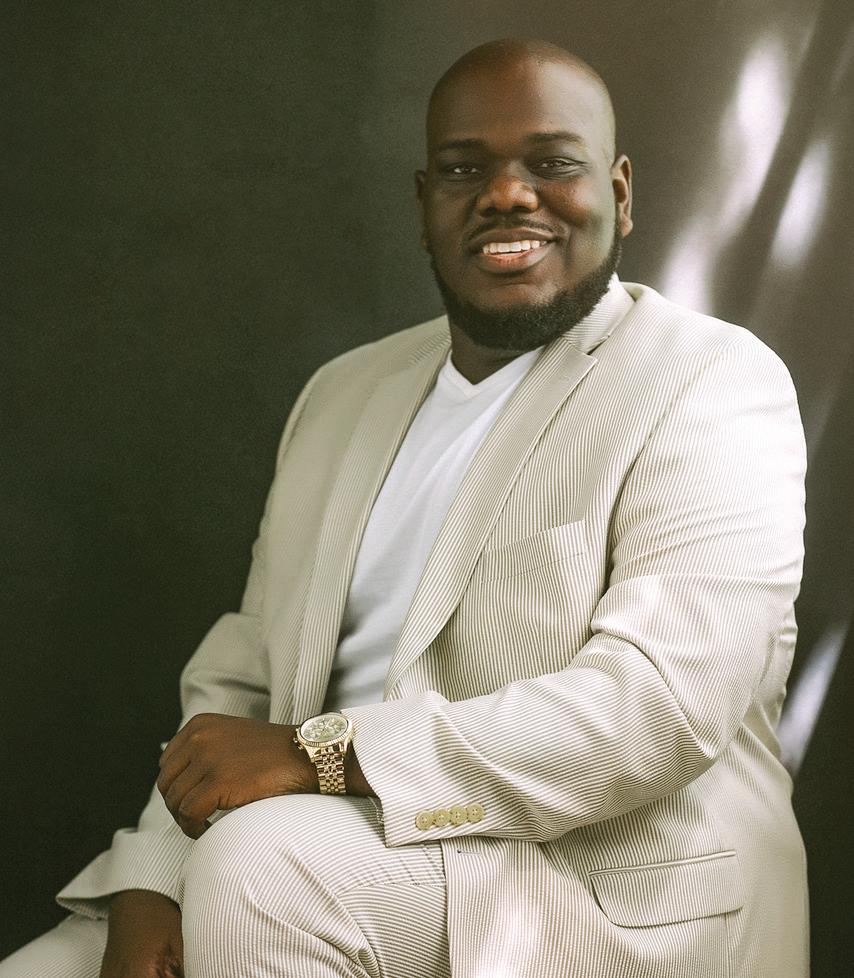
“As academics, we must challenge our students to be critical thinkers, analytical writers, and agents of reform in social justice” is his motto.
Riley was named the 2018 Anna Julia Cooper Teacher of the Year by the National Conference of Black Political Scientists and in 2020, he received their Fannie Lou Hamer Award for Service.
“It is a great honor and joy to serve the organization and to work on diversifying political science because it is a discipline that has struggled with diversity,” said Riley, who hails from Itta Bena in the Mississippi Delta and is president-elect of the National Conference of Black Political Scientists.
“My research is a way to bear witness and testify to the conditions of Black people in the way race operates and functions in our political system. As a scholar who studies race, I think that we have to challenge traditional frameworks that do not make space for voices of marginalized scholars. One way I do that is by engaging in research that speaks about these matters.”
Racial Attitudes in America Today: One Nation, Still Divided Routledge 2022, by Clarissa Peterson and Emmitt Y. Riley III

Claudia Chambliss won best undergraduate presentation at the 85th Mississippi Academy of Sciences annual meeting.
The award-winning talk featured her work in the acoustics lab of Cecille Labuda, associate professor of physics and astronomy, studying whether white matter can be distinguished from gray matter based on the measured ultrasonic properties in preserved mammalian brain.
An IMAGE Scholar and member of the Pride of the South Marching Band, Chambliss, a biochemistry and physics double major with minors in biological science and mathematics who graduated in May, gathered more than awards at UM.

“I have gained phenomenal mentors, lifelong friends in the physics department, and experiences preparing me for both med school and graduate school. Being a part of the physics program has helped with my confidence, especially presenting my research.”
All this was the result of a meeting early in Chambliss’ college career. “I wanted to be more involved in the physics department but didn’t know how, so I talked to Dr. Meyer.”
Jennifer Meyer, an instructional assistant professor of physics and astronomy, told her all about the Society for Physics
Students, Sigma Pi Sigma Honor Society, research opportunities offered in the field, and the diverse careers one can pursue with a physics degree.
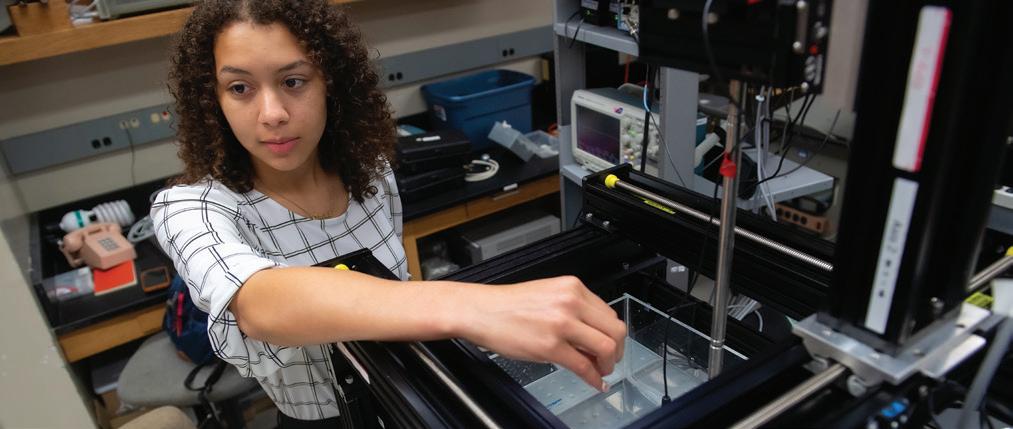
“With her encouragement I asked to join Dr. Labuda’s lab. I presented at multiple conferences, published work, won awards for my research, gained confidence in the lab, networked with numerous individuals, and worked on my science communication skills—which is important for interviews. If I had not asked for assistance to succeed, then I would not be where I am today.”
With a Dean’s Scholar Fellowship at Cornell University in Ithaca, New York, Chambliss began work on her doctorate in biophysics in June. “I’m still learning about all the career options I can choose with a PhD, but I’m leaning towards academia. I enjoy mentoring and teaching. I want to provide opportunities to students, especially those who are a part of a minority group and/or come from an underserved community.”
Honors student Mattie Ford, a native of Brownsville, Tennessee, is a Southern Studies major and environmental studies minor who has always been interested in the South.
“One of the more basic tenets I learned is the idea that the South is not inherently exceptional,” Ford said. “At first that’s disorienting because as a Southerner, what then can I orient myself around? It allows for personalizing the South, determining
what is Southern to me and why that is meaningful.”
A favorite class is the Southern Environment, taught by Andy Harper, director of the Southern Documentary Project. “By the time she got to my course, it was clear that Mattie was well on the way to creating a very personal story grounded in the people and spaces around her,” said Harper.
“Conservation is not a new concept for me, but working outside was,” said Ford, who spent summers at organic
farms in Montana, North Carolina, and Oxford. “I wanted to balance academia and working with my hands. It’s been a good way to work, travel, and meet cool people, plus get free vegetables.”
Ford’s honors thesis examines the relationship between rural upperclass Southern white women and their bodies.
“It’s a broad topic that takes form through myself, my mother, and my grandmother,” Ford said. “I scoured my journal entries and interviewed my mother and grandmother to get a sense of what we are taught about and what is expected of our bodies, like what a Southern lady is and what is this inner world–outer world binary.”
Ford said the concept of tracking those ideas through the generations is interesting and complicated, because bodies are so taboo, especially women’s bodies, and most especially Southern women’s bodies. She enjoyed the shared sense of wondering, questioning, and negotiating with one’s body as she interviewed different generations of her family.
For the first time at UM, three students—Ethan Lambert, Reinhard “Matt” Knerr, and Alexandria “Ally” Watrous— received Goldwater Scholarships in a single year. And, all three are in the Department of Chemistry & Biochemistry.
One of the oldest and most prestigious national scholarships in science, technology, engineering, and mathematics fields, the Goldwater supports exceptional sophomores and juniors who show promise in becoming the next generation of research leaders.
“Ethan, Matt, and Ally present an incredible commitment to a career in research, and a genuine display of intellectual curiosity,” said Vivian Ibrahim, director of UM’s Office of National Scholarship Advisement.
An Annexstad Scholar, Lambert is earning a BS in chemistry with an emphasis in chemical physics and a minor in mathematics.
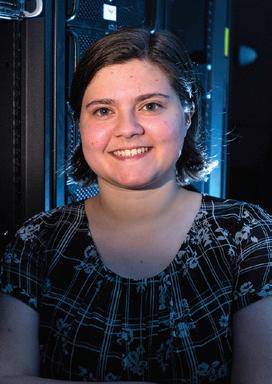
“This accomplishment would not have been possible without the incredible people in the lab. They taught me new techniques, proofread, and answered my questions at 2 a.m. when I couldn’t sleep.”
He hopes to apply for a graduate research fellowship from the National Science Foundation next year to fund a doctorate in chemistry with a focus on studying how to use light to induce electron transfers between small molecules—work with potential applications in solar energy conversion.
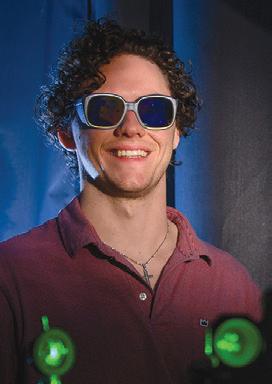
Already first author on three published research papers and coauthor of a book, Lambert works with Nathan Hammer, professor of chemistry and biochemistry, on research studying light-induced electron transfers to help improve solar energy technologies.
“It is a joy mentoring Ethan in the lab,” Hammer said. “He has the love for science and the aptitude for research. I expect great things for him.”

Knerr is a Stamps Scholar pursuing a BA in biochemistry with minors in biological sciences, environmental studies, neuroscience, and psychology.
“I am fascinated by aging. My time in Spain, Costa Rica, and the Netherlands has shed light on different ways to approach how we age. In the future, I want to look at aging from a scientific angle as well as a moral and humanistic one.”
“I am fascinated by aging. My time in Spain, Costa Rica, and the Netherlands to professor of biology whose expertise


Knerr has four published articles and works with Joshua Bloomekatz, assistant professor of biology whose expertise is investigating the mysteries of cardiovascular development and disease.
“Matt is a dynamic student with a passion for research, who shows great promise as a physician scientist,” Bloomekatz said.
Watrous is the only UM sophomore to be awarded a Goldwater, which will provide funding for her junior and senior years. She is pursuing the BS in chemistry with a chemical physics emphasis and minors in French and mathematics as well as a BA with double majors in German and physics. In the long term, Watrous is interested in collaborating internationally while conducting research in computational chemistry.
“The whole national scholarship and Goldwater process reaffirmed that grad school is something I want to do and can achieve,” she said.
Watrous has three peer-reviewed papers and one cover article to date as part of the UM Computational Astrochemistry Group, headed by Ryan Fortenberry, associate professor of chemistry and biochemistry.
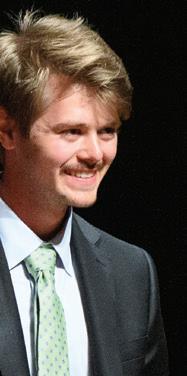
“Ally is an absolute joy to have in our group,” he said. “Most often, about the time that students get trained, they leave. She’ll be around a few more years, and I look forward to continuing my collaboration with her.”
Second Lieutenant Austin Vorse flies a T-6 airplane on one of four virtual reality flight simulators in UM’s Air Force ROTC Detachment, which originally came from the Columbus Air Force Base in Lowndes County. These simulators are the same system currently in use by pilot trainees at one of the three pilot training bases across the US to prepare them to step into their aircraft and make the graduates of this program particularly competitive candidates in the field.
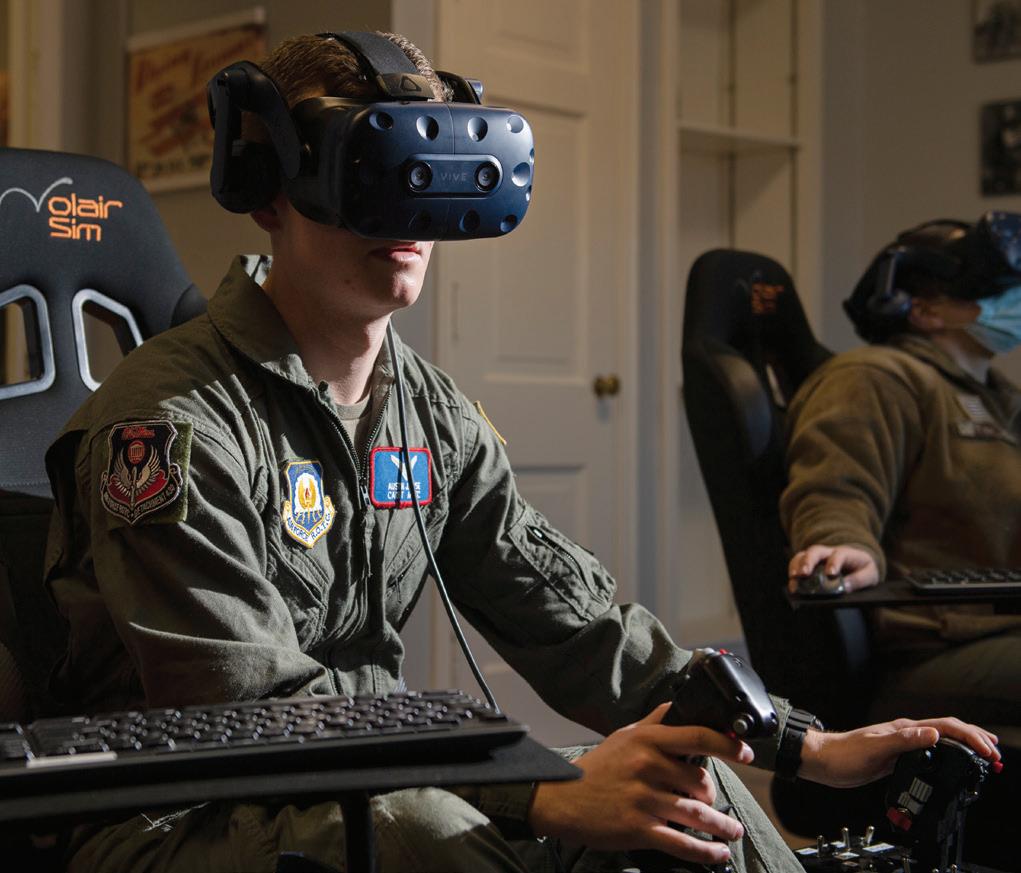
Students who are the first in their immediate family to attend college are supported by UM’s First-Generation Student Network. Throughout the academic year, the organization hosts events and shares resources catering to the first-generation experience.
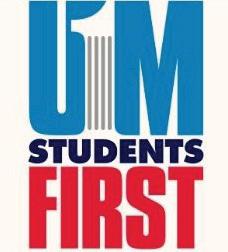
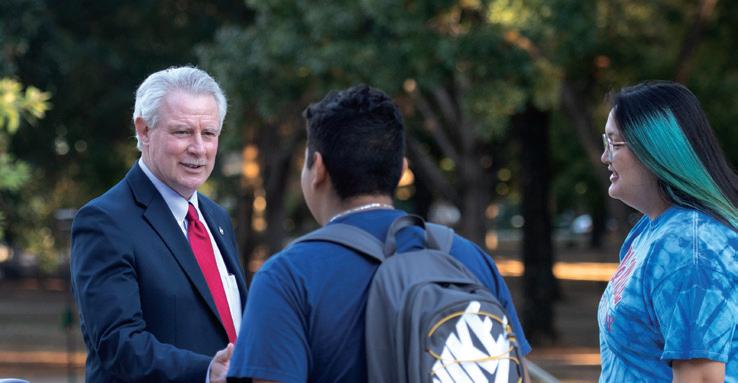
“Recent data from our campus climate survey show that nearly a third of our campus is composed of first-generation college students, yet the population has remained largely invisible, as the first-generation students tend to be hard to identify,” said Andy Flores, a philosophy and public policy leadership double major and president of the network in 2021–2022.
As a first-generation college student, Ainsley Ash, a 2021 public policy leadership graduate who is communications and impact project manager for the Woodward Hines Education Foundation in Jackson, put together a list of people and resources that helped her navigate the university, while noting systems that could be adjusted to be more accessible to students like her. The list eventually became the First-Generation Student Network to help students access the resources and information that others take for granted while providing useful programming—making connections with other first-generation students on campus, learning how to apply for national scholarships from first-generation alumni, and resume writing workshops.
“I wanted to make the campus a kinder, more inclusive, and welcoming place for first-generation college students,” said Ash. “I would like to think that I did that through my work with the FirstGeneration College Student Network.
“There has been a great deal of momentum in this area—from social events to first-gen celebration days to a university-wide first-gen task force. I am proud that so many on campus are continuing these efforts.”
Brigitte A. Lewis (BA African American Studies, English 21) is a 2021 National Collegiate Honors Council Portz Scholar—one of four recipients nationwide.
She presented her honors thesis during the 56th NCHC conference and was recognized for her paper’s originality and the depth and breadth of her research.
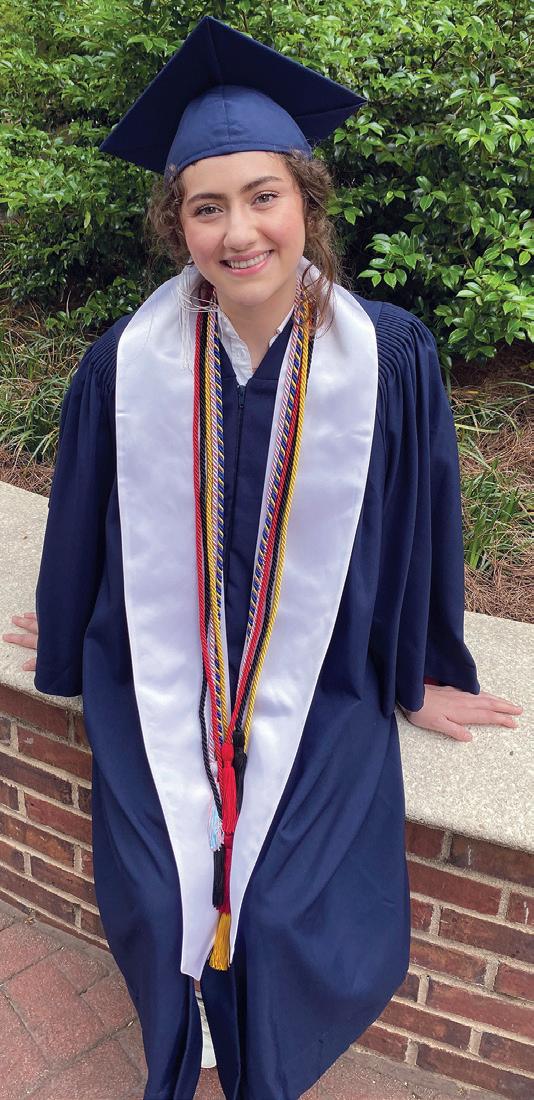
“The award exemplifies to me that this research can make a real impact.”
Lewis’ thesis, “The Legend of Neptune: A Portrait of Enslavement and Emancipation in 18th-Century Worcester County, Massachusetts,” focuses on uncovering the voice, history, and stories of an enslaved and then free Black man named Neptune. The project uses primary sources to construct a narrative chronicling Neptune’s life and experiences, supported by secondary historical research.
While growing up in Harvard, Massachusetts, Lewis often heard stories about Neptune, a man enslaved by the original owner of her 300-year-old childhood home. She began her research in high school with a Harvard Historical Society scholarship.
“I joined the Honors College at UM specifically to write this undergraduate thesis and became an African American Studies major in order to gain the tools to adequately tell Neptune’s life and conduct this research.”
Working on a graduate degree in history at the University of Chicago, Lewis is tracking the lives of a series of historical actors she found while writing her undergraduate thesis.
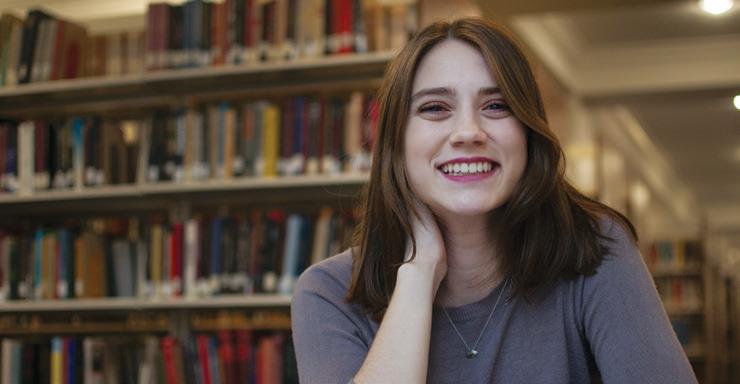
“I’m hoping to shed light on the relationships between the American Revolution, slavery, freedom, and democracy in Massachusetts during the Revolutionary War period.”
“We nominated Brigitte’s thesis over those of her peers in the Sally McDonnell Barksdale Honors College because her project displays her passion for history, deep intellectual curiosity, and independent research skills,” said Ethel Scurlock, dean of the Honors College and associate professor of English and African American Studies.
Andy Flores received life-changing news: he had been awarded a prestigious Harry S. Truman Scholarship.
“This outstanding and brilliant Mississippi student is to be commended for this tremendous accomplishment,” Chancellor Glenn Boyce said. “Andy has reached an elite pinnacle, and we’re proud of how he is making a difference through scholarship, leadership, and service.
“It is incredible to see how our supportive and invigorating campus environment fuels our students’ passions and prepares them to be competitive on a national stage.”
Truman Scholars demonstrate outstanding leadership potential, a commitment to a career in public service, and academic excellence. Each receives up to $30,000 for graduate studies, leadership training, career counseling, and special internship and fellowship opportunities within public service organizations.
“I’ve always felt that my purpose was to unite people and provide others with the compassion and resources I wished my family could have received when I was younger. No award or scholarship has ever represented me or what I want to do as much as the Truman Scholarship. It’s the honor of my life to be named a Truman Scholar,” said Flores, a philosophy and public policy leadership major entering his senior year.
He wants to help ensure that all students receive equal educational opportunities in public schools and institutions of higher learning.
At UM, Flores consistently fights to eliminate barriers to education for his fellow students. As cofounder and president of UM’s First-Generation Network, he works to create networks and provide resources for first-generation students on campus. He also united students across campus behind the HelpSaveHELP campaign to lobby against the overhaul of One Grant financial aid for Mississippi students.
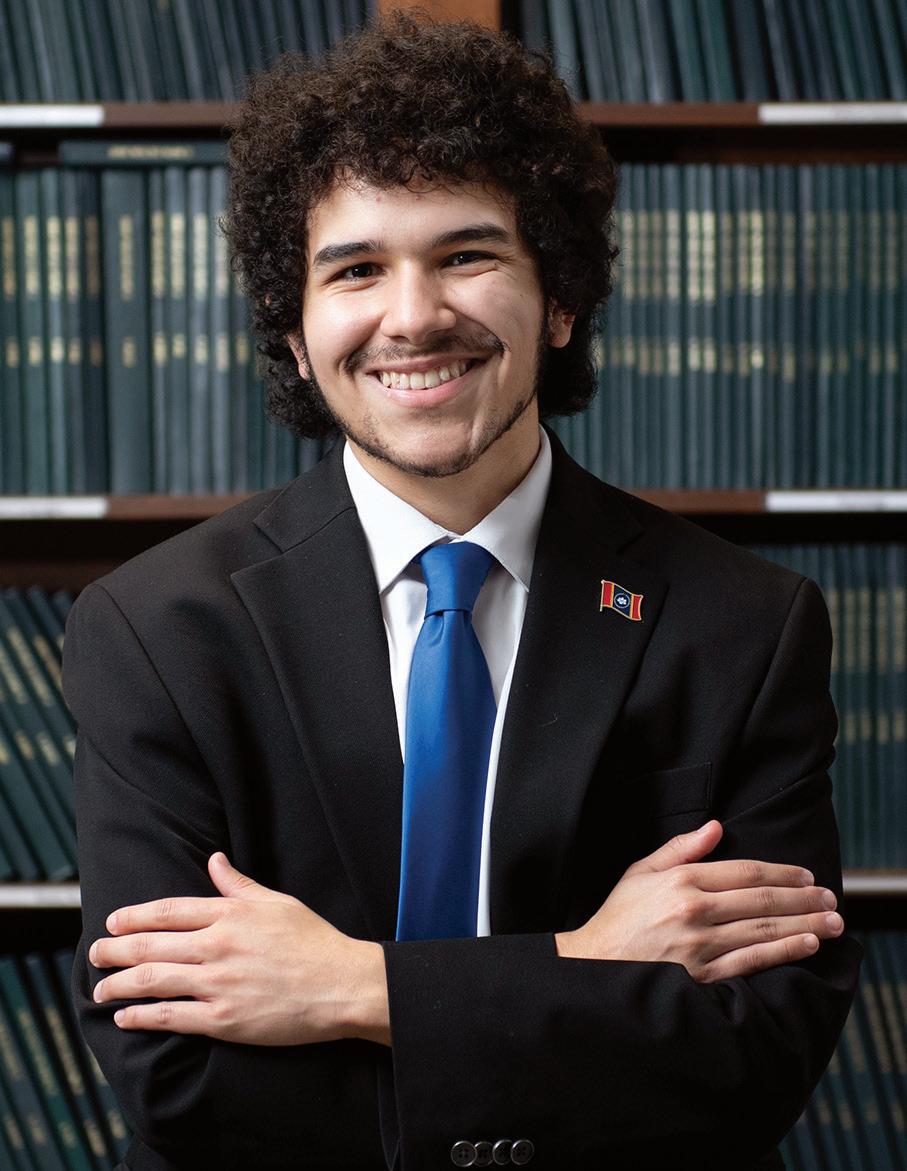
“Andy is an exceptionally bright student with a very promising future,” said Steven Skultety, chair and professor of philosophy and religion and director of the Declaration of Independence Center for the Study of American Freedom. “I’m thrilled that he’s studying philosophy. Many students interested in pursuing a legal career appreciate the close connection between the argumentative skills practiced by philosophers and the analytical skills used by lawyers. We’re excited to have Andy as a major, and we look forward to helping him achieve all his future goals.”
Flores plans to attend law school at the University of California at Berkeley. “With the Truman Scholarship, I hope to pursue a law degree and become an attorney who works at the intersection of education, civil rights, and community-building. I’m particularly interested in advancing education reform and finding solutions to problems that disproportionately affect low-income households and communities of color.”
Established by Congress in 1975 as the living memorial to President Harry S. Truman and presidential monument to public service, the Truman Scholarship carries the legacy of the 33rd president by supporting and inspiring the next generation of public service leaders.
Jilkiah Bryant, a public health and health sciences major, also received a Truman Scholarship—making this the first time since 2013 that the Truman Foundation has awarded two scholarships to the state of Mississippi and the first time ever that both Mississippi awards have gone to the same institution. UM is among only six institutions that have multiple Truman Scholars this year, joining Columbia, Harvard, and Stanford universities, Massachusetts Institute of Technology, and the US Air Force Academy.
“The students are exceptional this year,” said Vivian Ibrahim, director of UM’s Office of National Scholarship Advisement, who worked with the students on their applications. “Mississippi has such brain drain with our young talent leaving the state.
“What we have here are young trailblazers who really want to give back to their communities and really want to improve things in the long-term.”
Alex Bush, a psychology major working to improve access to education and to raise awareness about mental health issues, was a finalist for the prestigious Harry S. Truman Scholarship for college students who plan to pursue careers in government or elsewhere in public service.
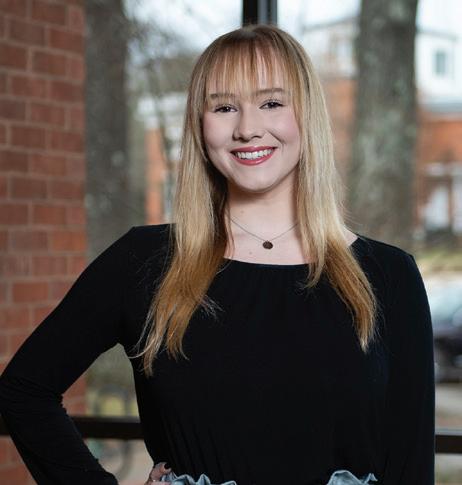
As a young teen Bush experienced the tragic loss of a parent and a close friend. Since then, she has been a passionate spokesperson for mental health awareness and suicide prevention.
“We are resilient,” Bush said. “There have been hard things to overcome and turn into new opportunities. You can’t choose what happens to you, but you can choose what happens to you after the fact.”
Codirector of Active Minds, which fights the negative stigmas surrounding mental health through creating awareness on college campuses, she reaches middle school, high school, and college students in eight states and works with media outlets to spread awareness about the issue—including an Emmy-nominated Teens2Colorado public service announcement.
Bush hopes to complete a graduate degree in clinical psychology and promote awareness about national, state, and local education policy around mental health issues.
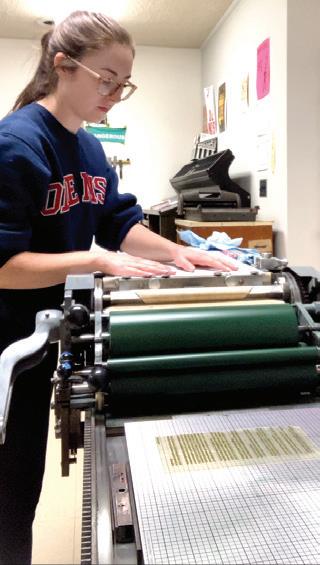
Lauren Taylor can pinpoint her most memorable class project. It was an assignment in a packaging design class to rethink the cover of a favorite book, said Taylor, who received her Bachelor of Fine Arts in art with an emphasis in graphic design in May. She created a cover for The Help by Kathryn Stockett, incorporating custom illustration, photography, and land-lettered typography so the title of the novel appears as if it is sprinkled on the pie in powdered sugar.
Tyler Barnes, assistant professor of graphic design, encouraged her to enter the cover into the 2021 National Student Show and Conference, a professionally judged creative competition open to college students.
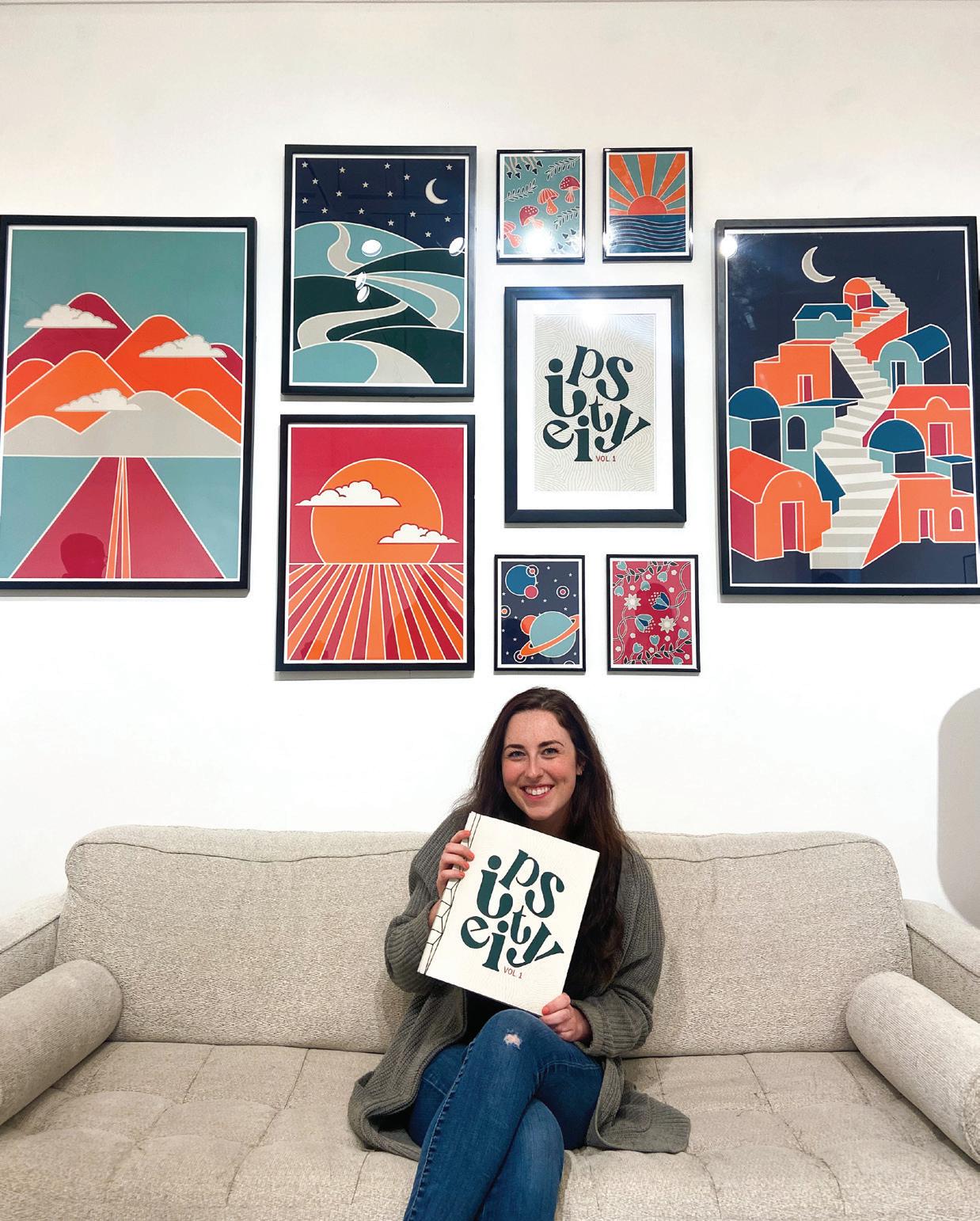
“That project and its entry into the National Student Show and Conference sparked my passion for package design and gave me confidence in my design abilities,” Taylor said. “That experience inspired me to get involved with the graphic design club, for which I was the president for two years and on the executive board for three years.”
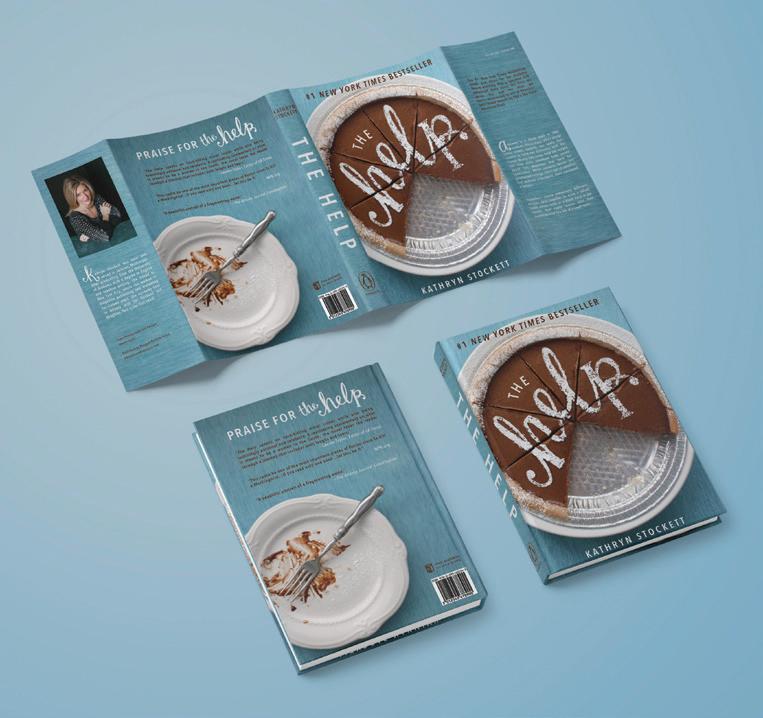
A student in the Sally McDonnell Barksdale Honors College, Lauren worked on the yearbook staff and the UM chapter of Delight Ministries while receiving the university’s top academic award, a Taylor Medal, and the Outstanding Studio Art Student Award.
She constructed a book for her BFA thesis show. Titled Ipseity with poems written by her friends on the topic of ipseity, which means identity, she used digital media, an old-fashioned letter press, embroidery, gold foil, and embossing to illuminate it all and stitched the pages together by hand.
The project required hours of critical thinking and hands-on execution. “There are creative limitations working with color and shape to communicate visually rather than just with words. There is a different level of communication with art. It can communicate with your soul.”
Because of her experiences inside and outside the classroom—including an internship with the graphic design team for a medical device company—Taylor feels ready to seek a career as a graphic designer, perhaps with an advertising agency, and later as a freelance designer.
“Ole Miss has prepared me well,” she said.
The Class of 2025 UM cohort of 12 Stamps Scholars—chosen for academic excellence, leadership experience, and exceptional character—include these seven from the College:
• Christian Boudreaux, a biological science major with minors in chemistry, environmental studies, and Spanish from Oxford
• Megan Hughes, an Arabic and international studies double major with a minor in environmental studies from Sumneytown, Pennsylvania
• Jamiya Mason, a biological science major and transfer student from East Mississippi Community College from Macon
• Janelle Minor, a public policy leadership major from Oxford
• Jada Smith, an allied health studies major from Clinton
• Adam Soltani, an Arabic and biochemistry double major from Washington, DC
• Mabrie Woods, an Arabic and international studies double major with a minor in music from Louisville
The class brings the total number of Stamps Scholars at UM to 51, making it the second largest cohort across the US and the UK, the only Mississippi university, and one of six Southeastern Conference schools.
Each scholarship covers the full cost of attendance, along with a $12,000 stipend for unique educational pursuits including study abroad, research internships, and academic conferences.
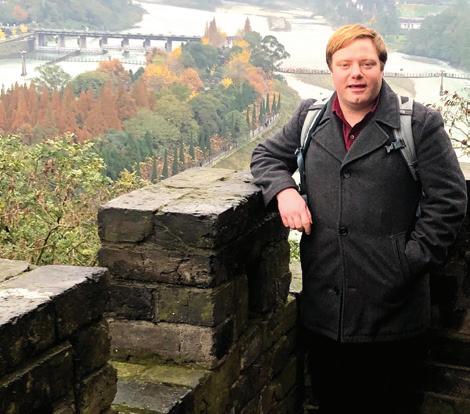
“Through our partnerships with great universities, we support outstanding young people to pursue their goals,” said Roe Stamps, founder and chair of the Stamps Scholars Program. “By creating community among them via our conventions and networking, we are helping them connect with others with similar goals and aspirations.”
Nationally, the 16th class of 229 Stamps Scholars was selected from more than 375,000 applications. Collectively, they cite a passion for tackling national and global challenges while making an impact on their campus and local community.
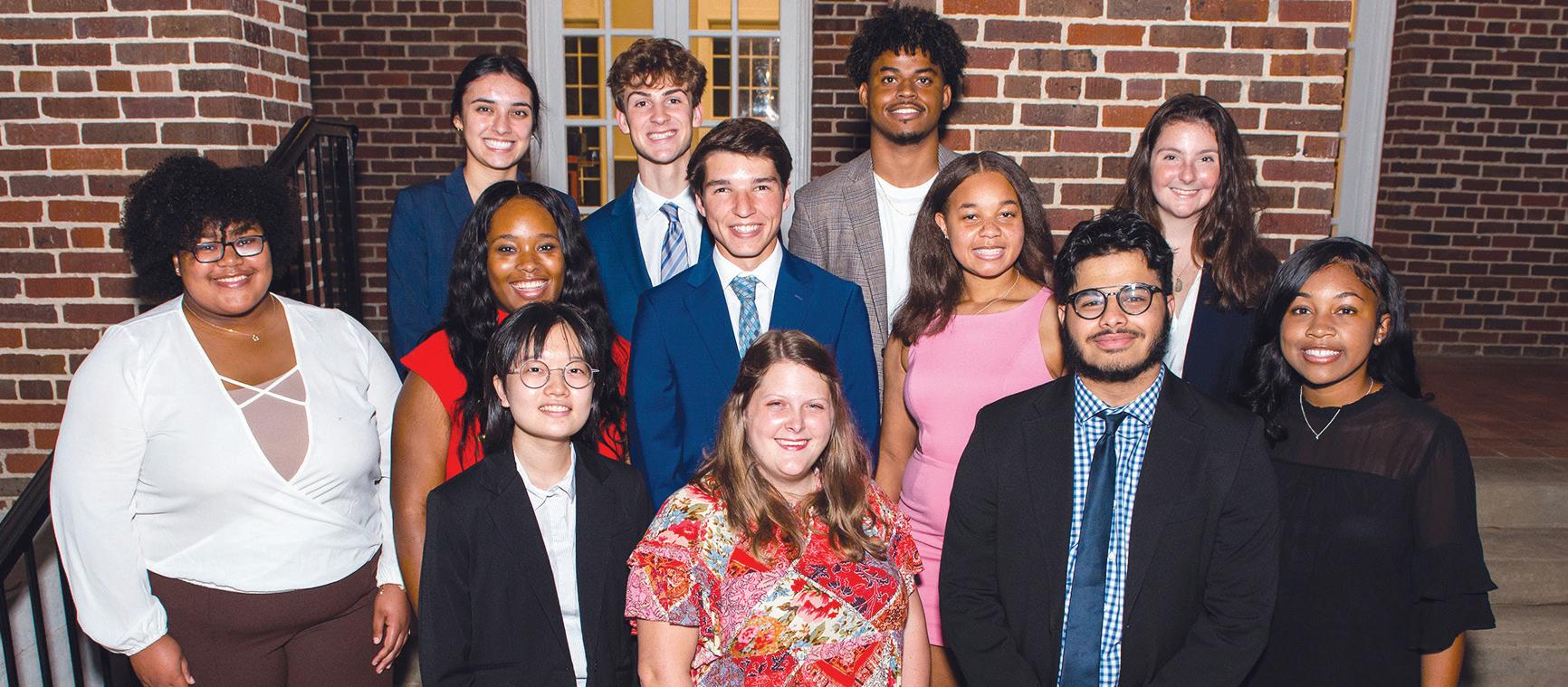
John-Peter Springer Ford (MM musicology 22) presented his research at 2022 conferences of the National Opera Association and the American Musicological Society Southern Chapter. With grants from the Department of Music and Pi Kappa Lambda honor society, Ford conducted research at the New England Conservatory Archives & Special Collections in Boston for his thesis on George W. Chadwick and Robert A. Barnet’s operetta Tabasco, a lost work of American musical history first performed in 1894. One in a series of
comic operas commissioned by Boston’s First Corp of Cadets to raise funds to build their armory, Tabasco was engaged for an extended New York run before a tour of the eastern US—including Meridian, Vicksburg, and Natchez—prior to being recalled by Chadwick and Barnet for unauthorized changes and failure to pay royalties.
“Tabasco is a true gem of American operetta that suffered a terrible fate,” said Ford, a PhD student at the University of Florida.
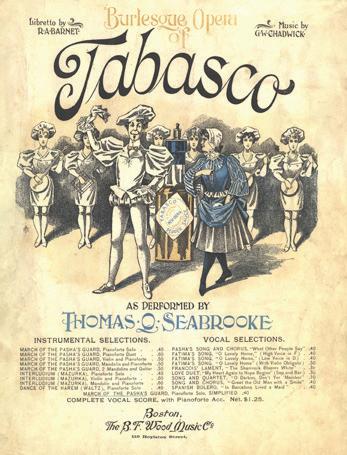
Richard Springer is a self-proclaimed introvert. He was also the 2021–2022 Associated Student Body Vice President.
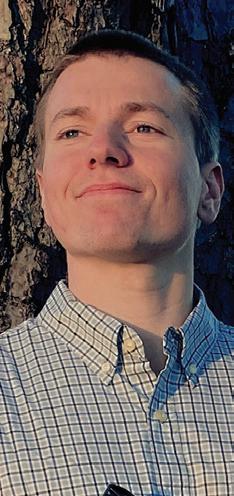
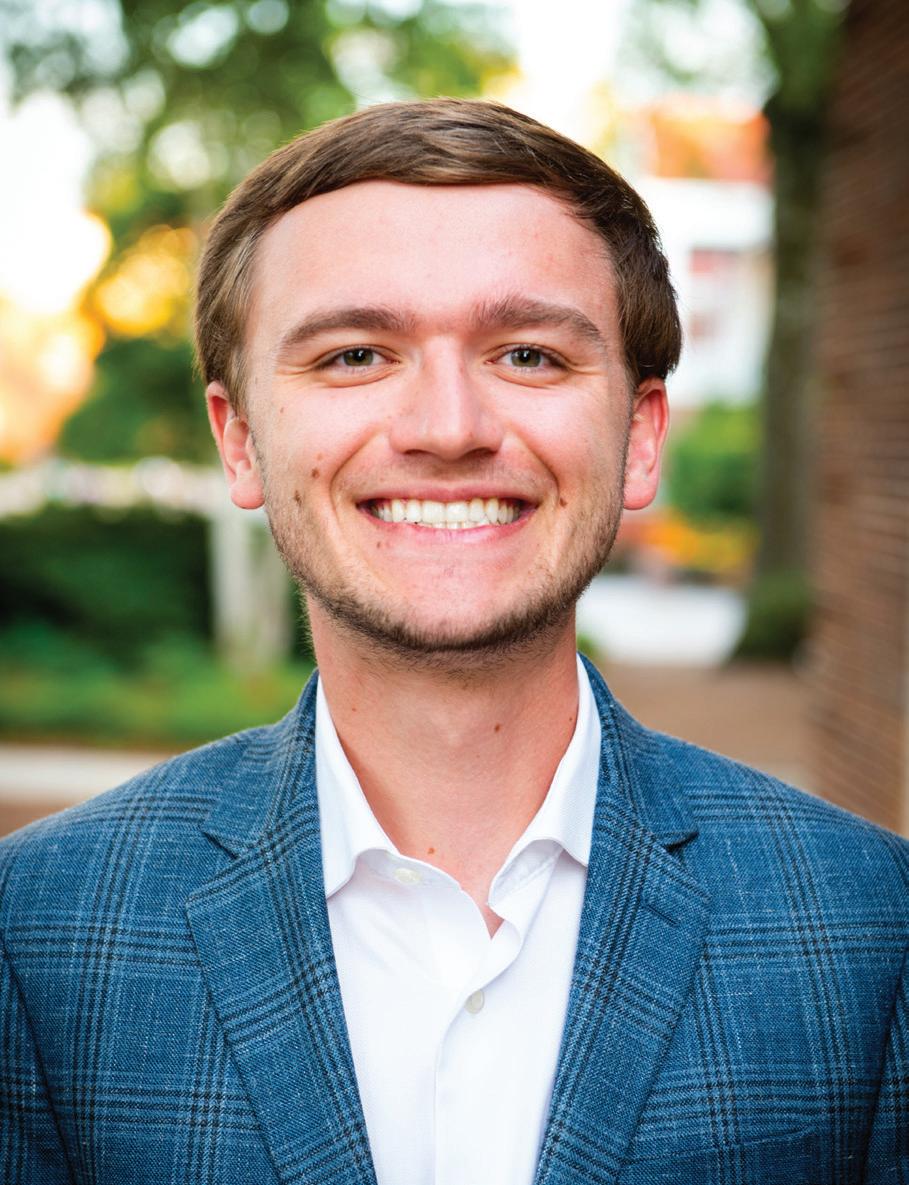
“I’m not the loudest voice in the room,” Springer said. Knowing this, he and close friend Grace Dragna came up with a mantra that shaped their time at the university:
“Say yes to (mostly) everything!”
This mantra led him to be spontaneous, “to make that last-minute trip to Tuscaloosa for the football game, to sign up for that class on sportscasting without even wanting to be an announcer,” Springer explained, “to run for ASB Vice President even though you’re scared half to death.”
A Stamps Scholar, Springer began as a math major, as he has always loved the subject and wanted to explore the range of research areas offered in the mathematics program. In his second year, he added a degree in integrated marketing communications. “I wanted to pursue something more ‘right-brained,’” he said. Springer certainly stood out among his peers, with awards that include the Leslie Banahan Award for Advocacy and Service, the ASB Live the Creed Award, the William T. Trusty Math Award, and the Outstanding Italian Student Award. He also played trumpet in the Pride of the South Marching Band, symphonic band, and the basketball band—creating memories he will always cherish. “The band gave me friends from day one.”
After graduation, Richard headed to New York City to work as an associate writer at Red Ventures media company. “While my job relies on the skills I learned from IMC, I use my mathematics background with technical writing—that is, breaking down complicated topics into more digestible, easier-to-understand pieces for the reader. I’m thankful for my math degree, which taught me the importance of being thorough in my work and always thinking about creative ways to solve problems.”
Two graduating seniors in the College have been selected for prestigious National Science Foundation Graduate Research Fellowships: MyKayla Williamson, an anthropology major from Waynesboro, and Austin Wallace, a chemistry major from Southaven.
Athena Flint, a first-year doctoral student in chemistry from Mulkeytown, Illinois, received an honorable mention.
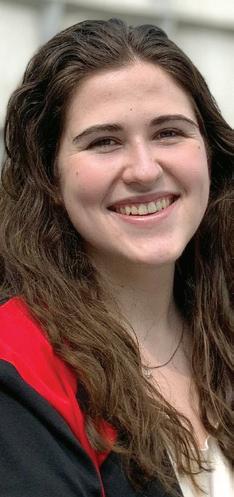
“Students form the backbone of the research mission at any research institution, and this recognition and support from NSF speaks well of the quality of our students,” said Josh Gladden, vice chancellor for research and sponsored programs.
The highly competitive five-year fellowship—with about 14,000 applicants for 2,000 awards—recognizes outstanding graduate students in NSF-supported disciplines pursuing research-based master’s and doctoral degrees at accredited US institutions with three years of financial support and an annual stipend.
Williamson is pursuing a master’s in archaeology—researching historical and African diaspora archaeology—at Cornell University. “I want to understand better the lived experience of those overlooked in historical records, like the enslaved.”
The Sally McDonnell Barksdale Honors College student is believed to be the first Black female student from UM to win the fellowship. Her participation in the Ronald E. McNair Postbaccalaureate Achievement Program was the reason Williamson had a completed research project before her senior year.
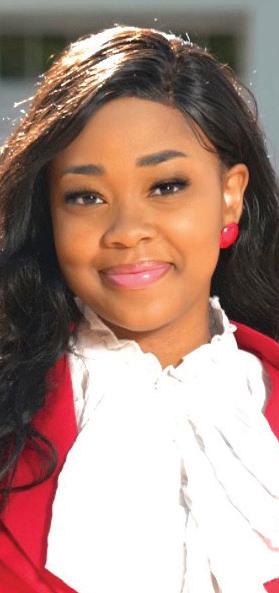
Wallace is working for a doctorate in computational chemistry at the Georgia Institute of Technology. “I enjoy computational chemistry research because of the seemingly infinite possibilities of molecules I can model to investigate useful and relevant characteristics for increasing our understanding of reality and discovering useful compounds for applications, such as dyes for renewable energy.”
As an undergraduate in the Honors College awarded a prestigious national Goldwater Scholarship in 2021, Wallace used quantum chemistry to investigate electronic spectra for amorphous solids. He participated in UM’s Chemistry Summer Research Program operated by Nathan Hammer, professor of chemistry and biochemistry, and supported by the NSF Research Experiences for Undergraduates.
Flint arrived on campus as an NSF Research Experiences for Undergraduates Scholar from Yale University and returned to work with Ryan Fortenberry, an associate professor of chemistry and biochemistry.
They study the formation of small organic molecules in the low-temperature, low-pressure environments of interstellar space. “A large part of what I do lies within the realm of predictive astrochemistry. I hope my work leads to the eventual detection of some new molecules in space.”
The Department of English and the Sally McDonnell Barksdale Honors College hosted a conference bringing together Jackson-area high school students and UM students who spent the semester studying Jane Austen.
The conference was organized by UM students in Reading Jane Austen for Fun—an experiential learning seminar in which Honors College scholars are tasked with connecting their studies to their extra-academic interests as well as work in other fields—taught by Jason Solinger, an associate professor of English.
The idea was created by Solinger and Carolyn Brown, regional coordinator of the Mississippi Region of the Jane Austen Society of North America (JASNA), who taught Austen at the Jackson-based St. Andrew’s Episcopal School. Solinger, whose research focuses on Austen’s legacy in the 20th and 21st centuries, wanted students to have opportunities to share their work with the community of Jane Austen readers and gain leadership skills.

“The students did everything,” Solinger said. “They organized the panels, they designed and published the program, and they worked with staff across campus to make sure the conference and the college visit came off without a hitch.”
St. Andrew’s student Advikaa Anand compared the writing and lives of Austen and 20th-century Mississippi writer Eudora Welty.
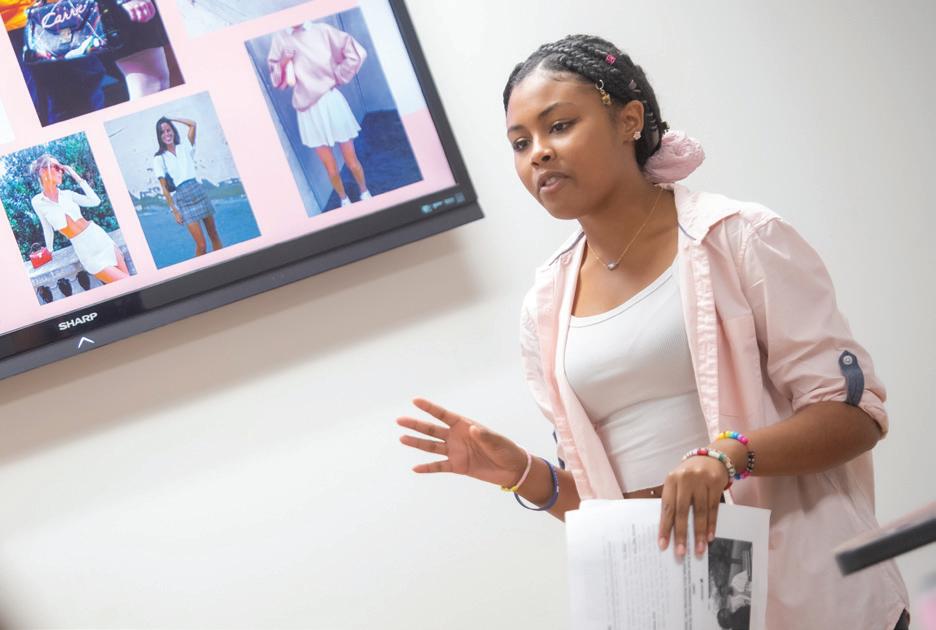
UM student Marika Hall showed a short film starring her classmate Reese Anderson, which was inspired by Austen’s novel Persuasion and influenced by the quirky aesthetics of filmmaker Wes Anderson. Others presented experiments in social media, work in the medical humanities, computer-driven studies of biodiversity in Austen’s novels, artwork made of pages from Austen’s novels, music, and comic monologues.
“We learned from each other, and I loved that,” said Brown. “We all share this love of Jane Austen. She’s alive and well in the 21st century; that’s what I got from the conference. Her stories truly resonate.”
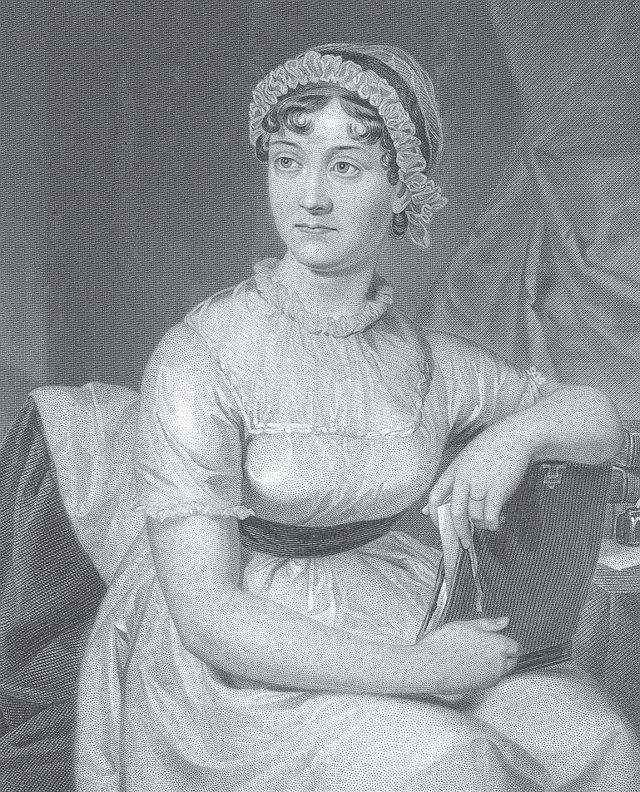
At Northwest Mississippi Community College, Jessica Herron followed a liberal arts path, knowing she would major in English at UM.
Vice president of NWCC's Phi Theta Kappa Honors Society, she maintained her 4.0 GPA and involvement with numerous organizations and service projects. Upon transferring, she received the Lyceum Scholar Award and the PTK Scholarship.
“To me, these scholarships symbolize the fact that, though paths to our intended destination may not be straight, hard work and dedication see us through the journey.”
That journey included key internships with the Republican National Committee, JLV Consulting, and the Inaugural Advance of Virginia Governor Glenn Youngkin. As a government relations intern for IDEMIA, a multinational technology company, Herron is a freelance political writer. At times it was difficult to land work in politics but she advocated for herself and earned the positions she wanted.
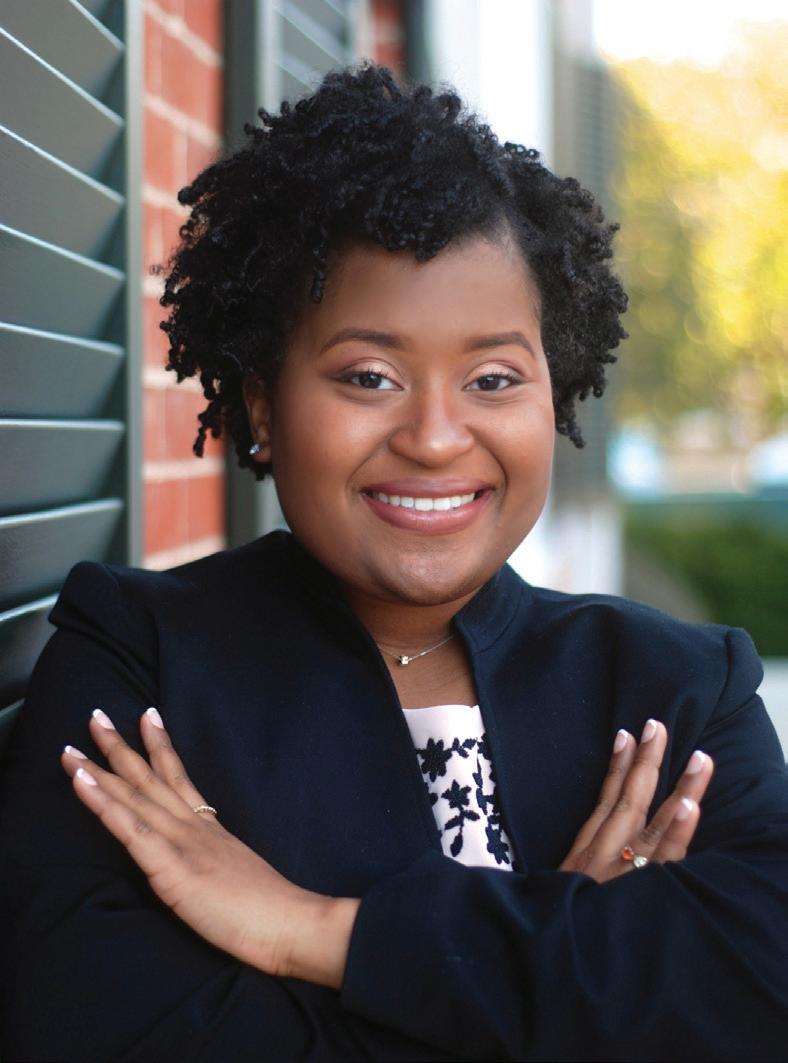
“UM’s robust College of Liberal Arts has afforded me the writing, critical thinking, and communication skills needed. Unsurprisingly, compliments from my superiors are a direct result of the skills I gained at UM.”
Herron plans a career in government relations and lobbying with work on the Hill to gain experience with legislation before pursuing a master’s in international affairs or a law degree.
“Ultimately, I would like to specialize in technology policy, and with the skills I have gained at UM, I am confident I can make an impact in these conversations.”
UM students earned a Top 4 finish at a national championship tournament hosted by the University of Alaska at Anchorage.
Last fall, a group of British Parliamentary debate coaches started a league for recurring online debate tournaments, to provide opportunities for student competition during the pandemic.
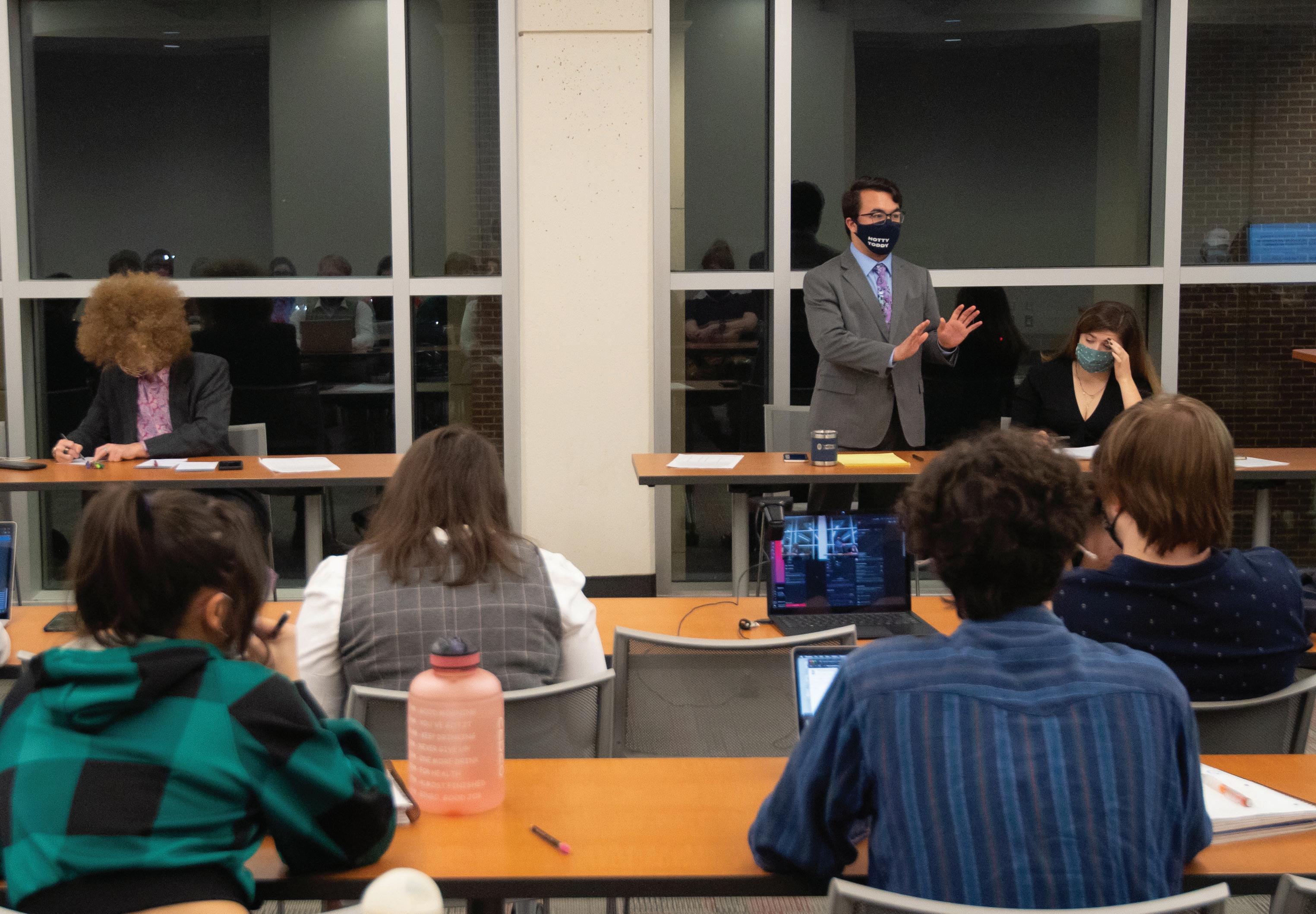
Andy Flores, a philosophy and public policy leadership major from Ocean Springs, and Spencer Heitman, an English, philosophy, and public policy leadership major from Baton Rouge, Louisiana, received first-place rankings during the preliminary debates to secure the seventh seed at the tournament of 40+ teams. They upset the third and sixth seeds in the semifinals to advance to the grand final round of the contest.
“Although Andy and Spencer were ultimately defeated by the national champion team from the US Air Force Academy, their performance was excellent,” said Jacob Justice, assistant professor of speech communication, director of forensics in writing and rhetoric, and the team’s faculty adviser.
Other team members were James Hirsch, an economics and public policy leadership major from Kansas City, Missouri; Jacob Ratliff, a master’s student in philosophy from Hattiesburg; Clark Etzel, a public policy leadership major from Russellville, Arkansas; Ben Oakes, a management information systems major from Madison; Jacob Smith, an English education major from Lacey, Washington; and Mateos Lozano, a law studies major from Salinas, California. Joseph Jiles, a public policy leadership major from Jackson, was a tournament judge.
“The Alaska tournament showed some of the best of debate, ranging from a willingness to test norms to improve equity and access in the activity to some of the highest-level competition I’ve had the opportunity to see in person,” Hirsch said.
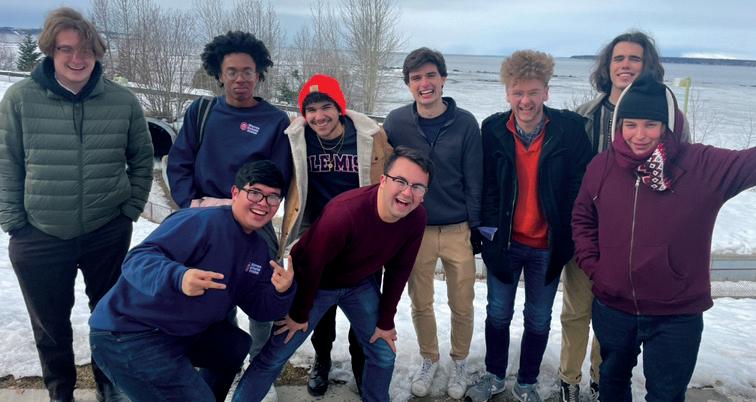
UM debate topics included the Ukraine-Russia war, food ethics, policing reform, philosophical liberalism, social media, and international institutions. In total, they received five first-place rankings, scoring victories over Vanderbilt University, University of Wisconsin, University of Alaska, US Air Force Academy, and University of Wyoming.
The tournament concluded an impressive year of competition. Over the course of the 2021–2022 season, they earned a Top 4 finish at four different tournaments earned by four unique combinations of UM students.
Other season highlights included Jiles reaching the finals of the Linfield University online tournament and Hirsch and Ratliff reaching the finals of the Vanderbilt University tournament.
Held at universities worldwide, the annual 3MT® event challenges graduate students to present academic research with one PowerPoint slide in three minutes.
3MT® Winner
The first aspect of Kendall Wontor’s research is focused on developing new methods to extract microplastics from oyster tissue, and this was the main point of her 3MT presentation. An example of an extraction method is sonication. “By developing and validating this extraction method, I hope to increase the analysis speed and sustainability of microplastics research.”
In the second aspect of her research, she uses
chemical digestion to analyze oysters from 10 sites across the Mississippi Gulf Coast. Here, Wontor is looking for differences in the numbers, sizes, shapes, and polymer types of microplastics present in the oysters from the different sites. She also dissects the larger oysters to see if the microplastics are localizing in specific tissues, such as the gills, mantle, digestive system, or abductor muscle/heart.
3MT® People’s Choice Award Winner
Savannah Draud’s research centers on symbiosis, which is the living together of different organisms. She studies the symbiotic relationship between plants and fungi found on their roots called mycorrhizal fungi. With her research, Draud aims to understand how a specific plant-fungal relationship developed in a certain area of the world, to unravel the environmental correlates of this relationship, and to explain how this specific symbiotic relationship may
3MT®
Sumeet Kulkarni studies black holes. Specifically, he studies pairs of black holes that spiral and smash into each other, giving out tiny ripples in space and time that are known as gravitational waves. The study of gravitational wave signals from black holes helps to understand different properties of the black
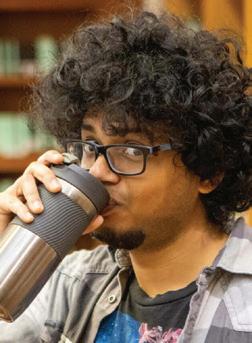
have influenced the distribution and evolution of the Pasqueflower plant.
“My goal for the future is to become a professor and researcher at an R1 institution. While I am passionate about biology and my personal research interest, I am also passionate about sharing those interests and encouraging others to pursue the questions that make them excited about the world around them.”
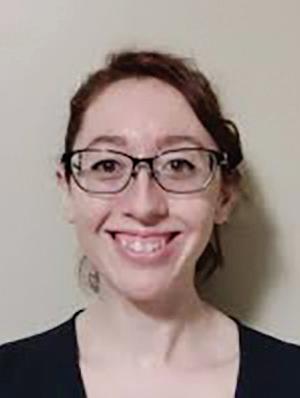
holes such as how heavy they are, whether they are spinning, how they form, and more.
“I am thrilled to win among what was an outstanding group of finalists! I tried an unconventional presentation with a completely blank slide but found ways to tie it into my story and I am glad it came off well.”
3MT®
Dakota Layton’s research focuses on analyzing how the spread of fake news contributes to the problem of Truth Decay and how this problem infringed on an idea of Freedom. Expanding the understanding of Freedom is one of many steps needed to address the problem of Truth Decay.
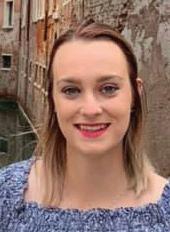
“We must expand our understanding of Freedom, not just for the purpose of addressing Truth Decay, but for advancing the Common Good, understood as the happiness and well-being of all of our fellow citizens with whom all of us share the gift of civic friendship.”
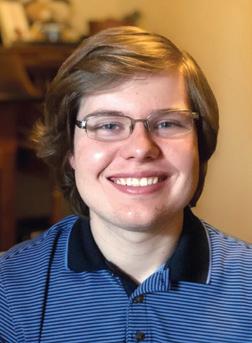
What started as a typical assignment in a Cinematography I course turned into so much more for film production students Than Clayton and Jackson Strickland, as their short documentary film, Oxford: A Place for Art, centered on the arts community and the Yoknapatawpha Arts Council in Oxford, was selected for four film festivals.
This project started with a class vote on the film’s composition and subject matter along with each student’s role in the production. The class came to the unanimous decision to focus the film on the arts council building the community founded to give people the resources they need to express their creativity. Students interviewed Wayne Andrews, executive director of the Yoknapatawpha Arts Council, along with local filmmakers, farmers, entrepreneurs, and artists who have all benefitted from the art council’s involvement and willingness to help people launch their passion projects and businesses.
“The assignment was framed around doing this production professionally and the artistic direction of the project was absolutely in our hands,” says Strickland, who was elected director of the short film.
Clayton, the film’s producer, acknowledges the obstacles in place in making this film, but explains that the Department of Theatre & Film helped the students in solving these problems and allowed them new opportunities in film production. “One of the bigger boundaries that we
experienced while filming was the time we had to complete it,” says Clayton, but round-the-clock access to equipment and the faculty members’ flexible schedules allowed the students to succeed.
“The department purchased a set of Aperture 300x lights that we had the privilege of using,” said Clayton, “and I was able to have 24-hour access to the state-of-the-art editing suite to make any additional changes that were needed after the class ended in May.”
Strickland also recognizes the support from the department, especially from Jaye Davidson, assistant professor of film production, and from Jonathan Smith, equipment manager. “Jonathan helped us figure out lighting, troubleshoot sound problems, and use efficient methods of taking care of the gear in a professional setting.”
With the aid of faculty and staff, the film students completed the film in less than a month, dedicating class time to filming interviews and B-roll, at times traveling 40 minutes from Oxford to meet with two farm owners and subjects of the documentary.
The documentary made waves in the Oxford community, but it didn’t stop there; Oxford: A Place for Art was selected for the Oxford Film Festival; the Black Warrior Film Festival; the South Georgia Film Festival, where it won Best Poster; and the Auburn Indie Film Festival, where it won Best Editing.
“Working on this documentary has taught me more about how difficult it can be in the industry,” said Clayton. “It moves fast and it is not easy to create anything good, but if you are willing to put in the work and have people around you who can help you achieve your vision, you can do anything.”
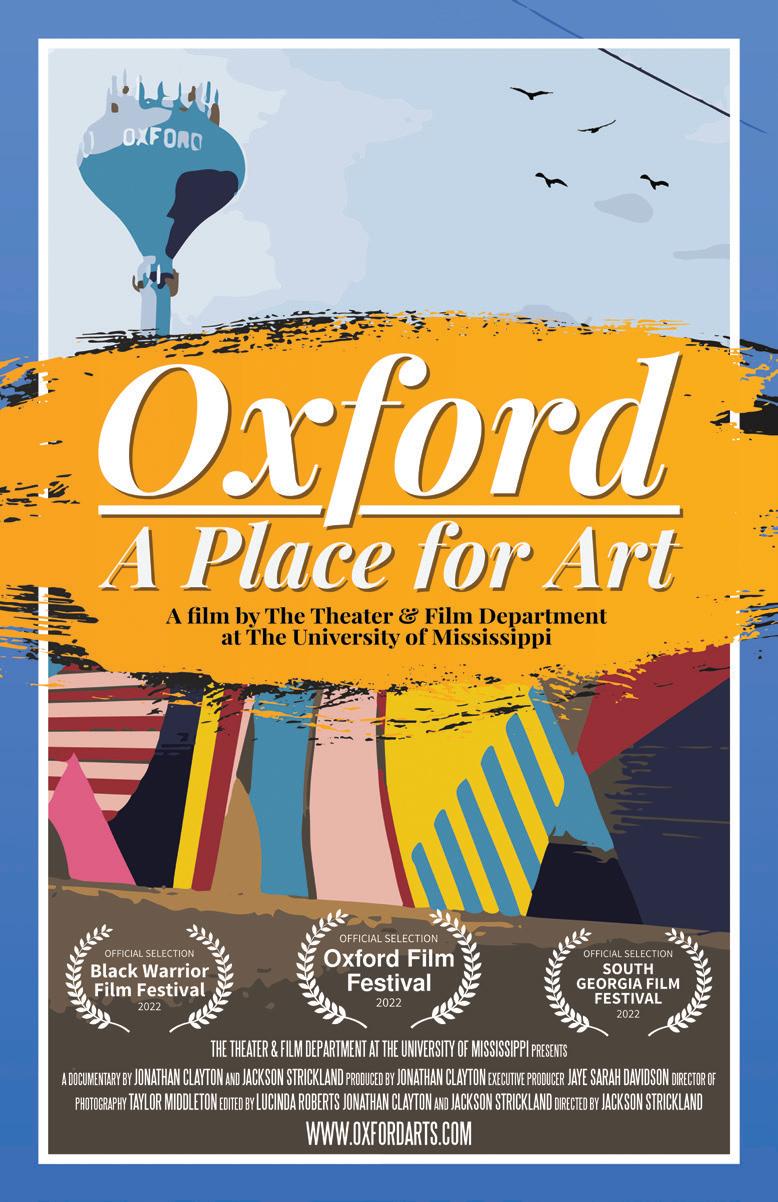
“If you are willing to put in the work and have people around you who can help you achieve your vision, you can do anything.”
Than Clayton film production student
As Jon’na Bailey (BA sociology 22) entered sophomore year, she had an eventful discussion with the late Jackie Certion, her academic advisor with UM's Foundations for Academic Success Track (FASTrack).
“We talked about what I enjoyed and what was important to me. At the heart of the conversation was understanding people and the issues or barriers they face. Thus, I switched my major to sociology.”
Bailey took Willa Johnson’s Sociology of Disability course. “I remember not doing well on an assignment and what it did to my confidence as a student. Then we visited during office hours. The care and passion Professor Johnson has—for her work and for me as a student—pushed me to be better. It pushed me to think differently and approach the work differently. To this day, I apply what I learned from her to my experiences as a student and person.”
A first-generation student from Pickens in the UM Hall of
Fame, Bailey was president of the Black Student Union and the PreMed Mentor Organization. A Who’s Who in American Colleges and Universities inductee, she received the Julien Tatum Award from the sociology faculty. “I am most proud of being the Black Student Union president. In this role, I was continuously challenged. With my experience as a Black student, I knew how isolated you can feel as a minority at UM. I advocated for students and their needs. It was a full-circle experience.”
Bailey plans to continue her education focusing on public health and “how to increase access to resources that combat the barriers minorities face leading to health disparities.”
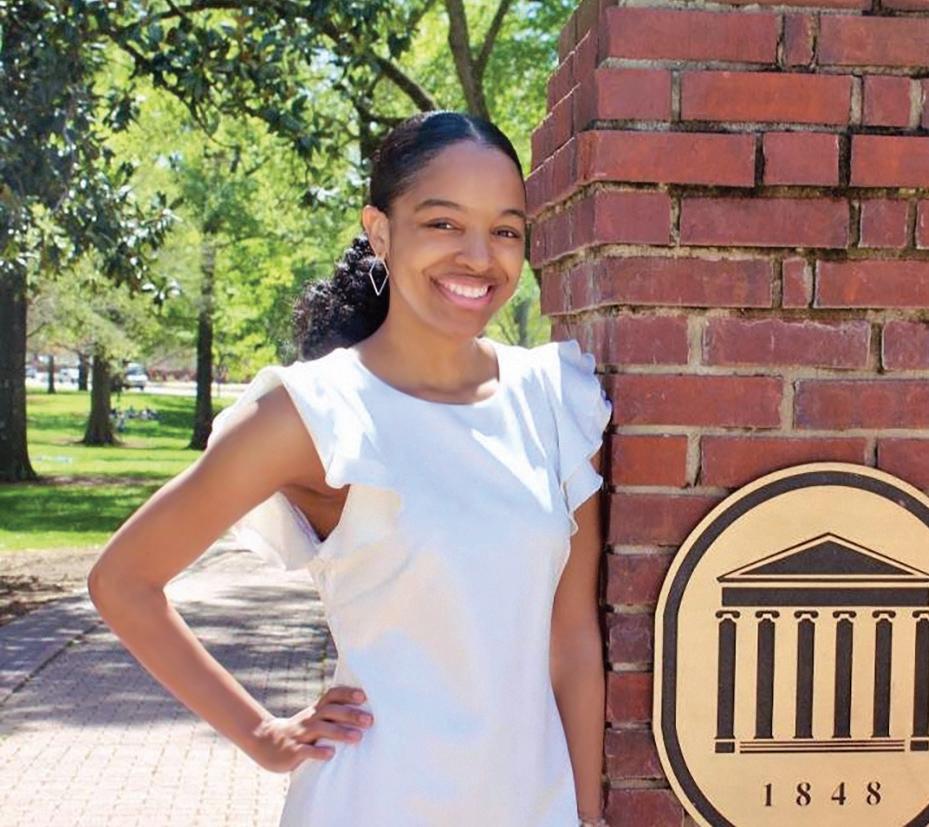
Her stellar trajectory is noticed. “Jon’na’s commitment and dedication to her role as president of BSU are unmatched,” said Karrye Tynes, assistant director of UM's Center for Inclusion and Cross Cultural Engagement. “Her greatest strengths are her ability to lead and genuinely connect with anyone that crosses her path. She’s going to do great things.”
The university and Taiwan are on opposite sides of the globe, but a gift from the American First National Bank is bringing the two closer.
As a result of the Houston, Texas-headquartered bank’s $60,000 gift, students in the UM Chinese Language Flagship Program studying in Taiwan can afford a host of educational, cultural, and professional opportunities.
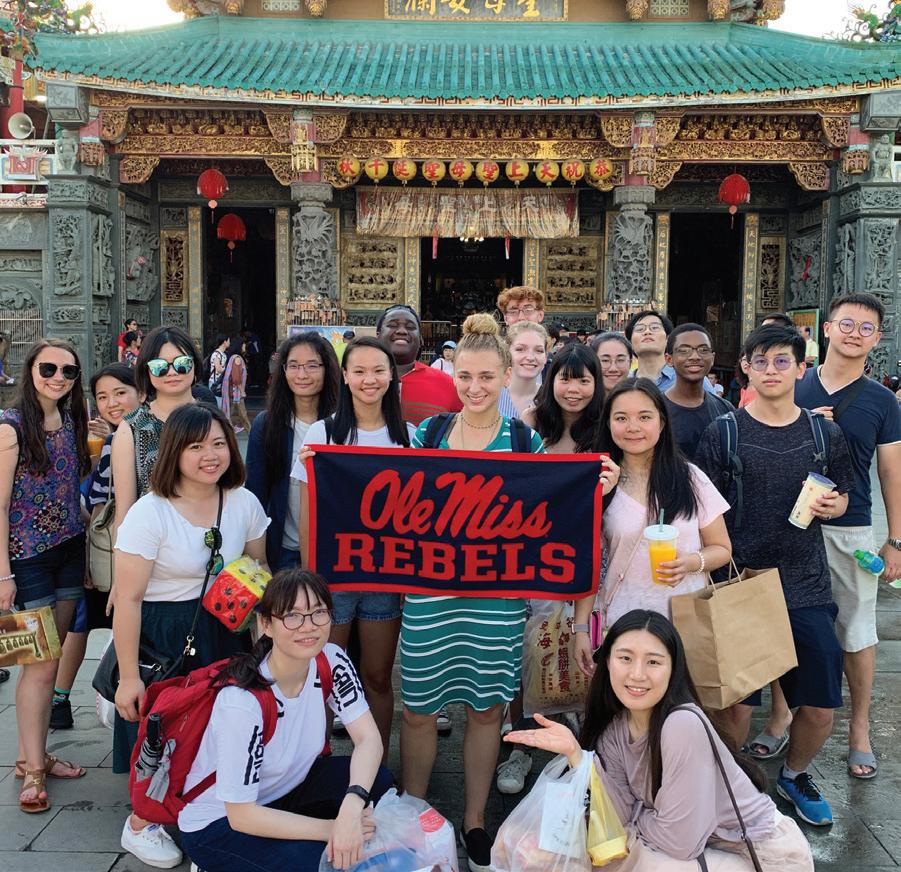
Leaders of the Asian-American owned bank, some of whom are alumni, support UM’s celebrated flagship program, and their recent generosity is designed to enhance the program and relationships between UM and Taiwan, said Wen-Lung Henry Wu, bank chair and an alumnus.
“We are impressed by the goals of UM’s Chinese Language Flagship Program, which include creating global professionals who possess superior-level proficiency in Mandarin and have a deep understanding of the Chinese culture so they can work successfully with their Chinese counterparts.”
illa Johnson, professor of sociology, is a nationally recognized scholar in her field. She is also one of only 2.1% of tenured full professors at US universities who are Black women. Of the 192 tenured full professors at UM, she is one of two who identify as Black women.
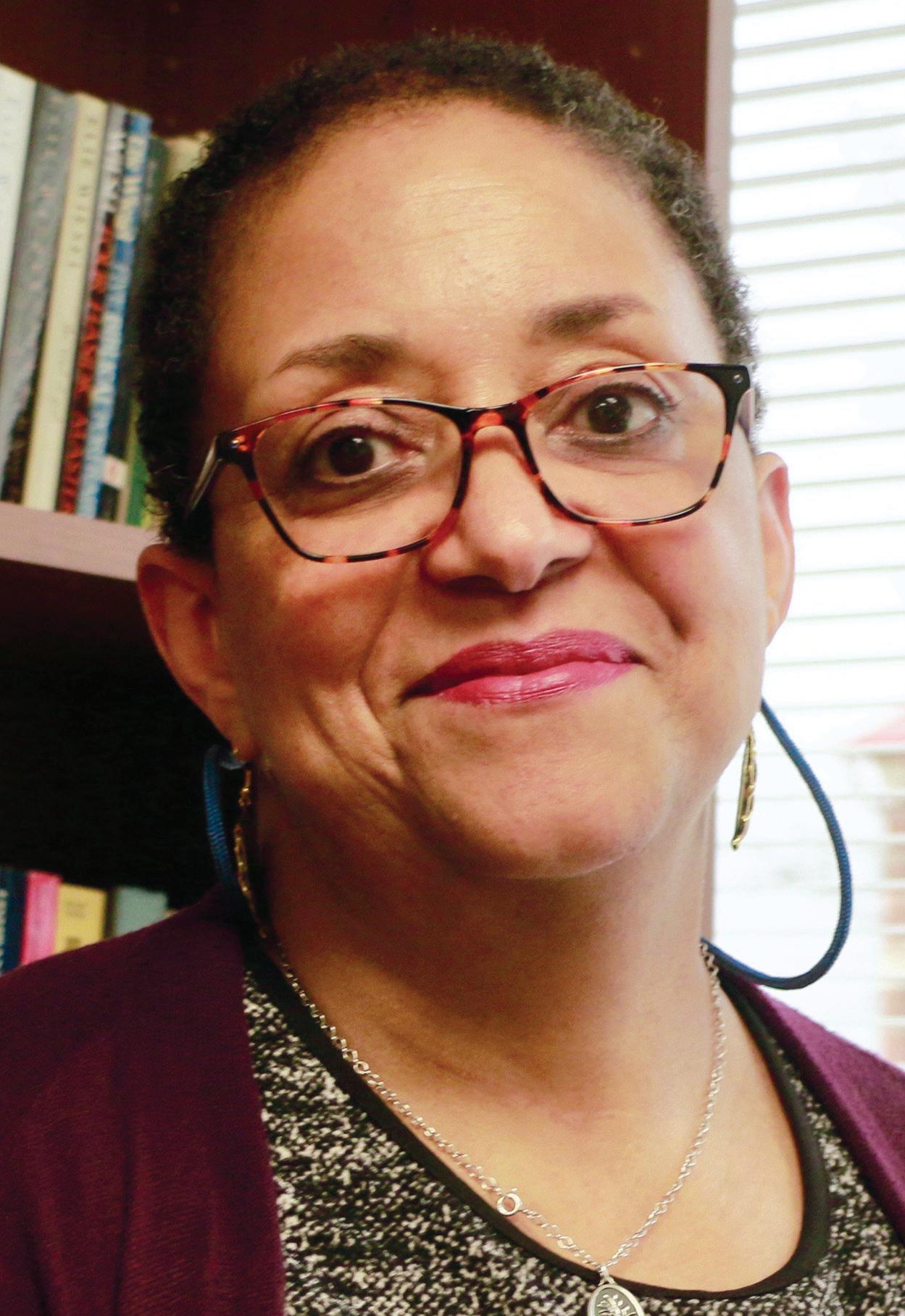
“Dr. Johnson was promoted to full professor last year and, unless I am mistaken, she is the first African American woman in the history of the university to rise all the way through the ranks from assistant to full professor in the College,” said Jeff Jackson, chair and professor of sociology and anthropology. “We are very proud of Dr. Johnson and all her accomplishments.”
Kirsten Dellinger, associate dean for diversity, equity, and inclusion and professor of sociology, appreciates Johnson’s presence on campus as an African American scholar. “She brings cutting edge research into the classroom and demonstrates how equitable access to higher education is crucial to the future of UM, the state, and the nation.”
A Hebrew Bible scholar who has expanded to issues of the Holocaust and the contemporary politics of race and ethnicity, she has taught recent courses on Genocide & Women, Racism & Religion, Judaism & Religious Ethic Studies, and Social Context of Holocaust Art. Her courses also support other programs in the College, including art history, gender studies, and religious studies.
Johnson is a respected mentor for undergraduate and graduate students as well as junior colleagues. This mentorship includes coleading a grantwriting workshop last summer—for the sixth time—to advance research on and by underrepresented groups. The workshop is funded by a grant from the National Science Foundation.
Her most recent book is Through an Artist’s Eyes: The Dehumanization and Racialization of Jews and Political Dissidents During the Third Reich (Routledge Press 2021). As a result, she was the keynote speaker for International Holocaust Remembrance Day 2022 at the University of Colorado Boulder.
“Through an Artist’s Eyes examines the experiences of so-called foreign Jewish men, women, and children and political dissidents who suffered the indignity of life in the pre-WWII Düsseldorf jail and in three French concentration camps (Saint-Cyprien, Gurs, and Noé) from 1940 through 1943,” Johnson said.
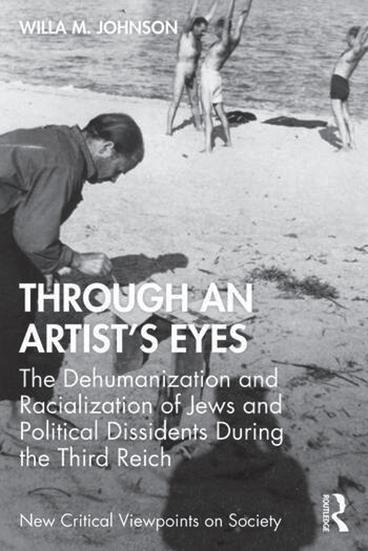
“The inquiry was provoked by artworks created by Karl Schwesig, a German Communist activist with strong ties to the Jewish community in Düsseldorf. The book uses a novel methodology for analyzing artworks to establish their contributions to mainstream historical and sociological narratives.”
Johnson received an MDiv in Biblical History from Boston University and earned her PhD in Hebrew Bible from Vanderbilt University. She was a postdoctoral research fellow at the
International Institute for Holocaust Studies in Jerusalem and the Cummings Foundation Fellow at the US Holocaust Memorial Museum in Washington, DC.
“Johnson holds students, colleagues, and administrators to a high standard and is quick to address issues of diversity and equity without any hesitation,” said Charles Ross, a professor of African American Studies and history who led UM’s Black Faculty and Staff Organization that presented the Lift Every Voice Award in 2021 for her work in the areas of diversity, equity, and inclusion.
“Dr. Johnson has been recognized as an innovative scholar in her field, bringing new and methodological light to bear on how to understand the history of race and racism in a variety of contexts. She is a true holistic scholar who betters the lives of her students, colleagues, and our society.”
As this newsletter went to press, we were saddened to learn of Professor Johnson’s death on November 7. She will be sorely missed by her students and colleagues.
Nine of the 10 Hall of Fame inductees for outstanding contributions in all aspects of campus life this year are graduates of the College of Liberal Arts.
“The 2022 Hall of Fame class exhibited significant leadership during one of the most unique and challenging times in the history of this institution because of the COVID-19 pandemic,” said Brent Marsh, assistant vice chancellor for student affairs and dean of students. “Nevertheless, they persisted in their academic, leadership, and service endeavors. Since the first Hall of Fame inductees were honored in 1930, these students join a long line of individuals who’ve made this university a better place.”
Bailey, a sociology major, was a member of the Associated Student Body (ASB) First Year Encounters Freshman Council, president and social action cochair of the Black Student Union, and a FASTrack peer leader, orientation leader, and community assistant.
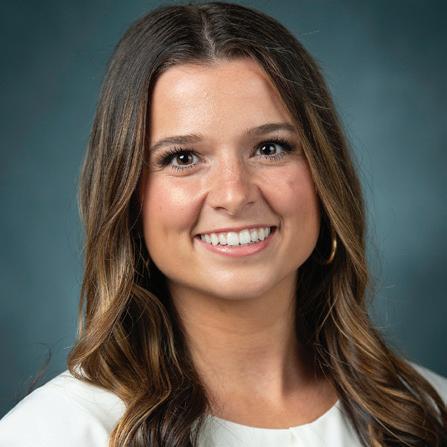
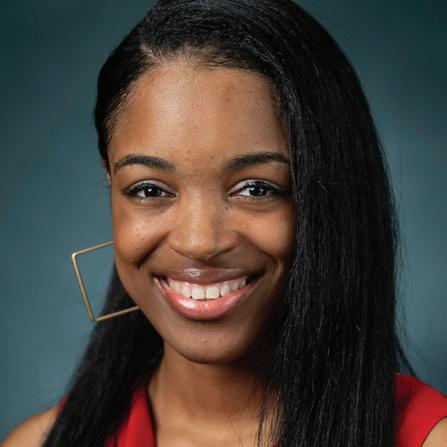
“Establishing the Council for Black Student Affairs allowed me to focus on the needs of all Black students rather than those directly related to my organization’s interest. If I had not seen the significance in repurposing the President’s Circle, issues faced by Black students would have gone unnoticed.”
A biological science major, Berry was a cheerleader and Taylor Medal recipient, orientation leader, RebelTHON director of morale, Big Event project leader, MPower peer leader, and UM Ambassador president. “I believe in breaking barriers, pushing for growth, and investing in those who invest in you,” said Berry, who used her service to demonstrate to student athletes that they can participate in other student organizations across campus. “With this, I graduated knowing I have changed the dynamic of our athletic program and what involvement can look like at Ole Miss.”
Dragna, an economics and public policy leadership double major, was a member of the Honors College. “Engaging with prospective students was central to my undergraduate experience,” said Dragna, who served in numerous roles in the ASB and as a precollege programs summer high school counselor. As a member of the Greek community, she interacted with outstanding prospects, shared her experiences, and connected with students across the US. “I am hopeful my legacy starts with them.”
Earning two degrees—public policy leadership and integrated marketing communications, Endorf used her involvement in the ASB to negotiate a pass/fail grading scale at the outset of the pandemic. The only student representative on the Council of Academic Administrators, she advocated for students through the Keep Learning COVID-19 committee with faculty and administrators. “I saw the future I wanted for students, and I threw myself into making this system more permanent,” said Endorf, who was a UM Ambassador and a Lott Leadership Institute peer mentor, Panhellenic Council recruitment counselor, and sorority involvement chair. “The university is stronger when we work together, and I want my legacy to be one of strength through collaboration.”
Gordon, a public policy leadership major on the premedical track, was council director for ASB’s First Year Encounters program, Black Student Union director of recruitment and retention, sorority vice president for community relations, and UM Ambassador. Her greatest accomplishment was as executive director of the Big Event. “Experiencing this showed me what it meant to be a member of a college institution, and how a college is more than its campus. It intersects with a community of people living their daily lives, raising their children, and enjoying retirement.” Being voted Miss Ole Miss by peers was humbling. “I hope my legacy encourages students to embrace the growth that comes with the college experience.”
A public policy leadership major, Hayward was ASB executive assistant to the vice president, chair of the Research and Development Council, president for Omicron Delta Kappa, and a member of the Chancellor’s Commission on the
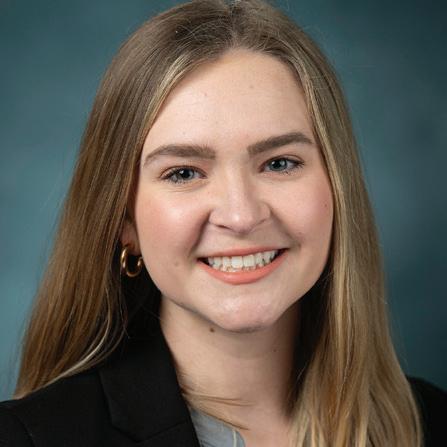
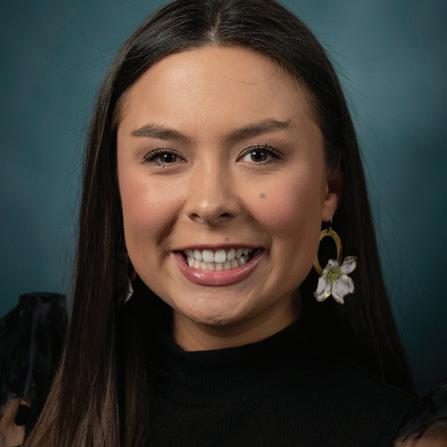
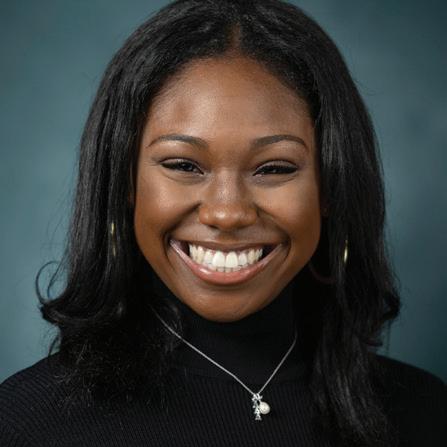
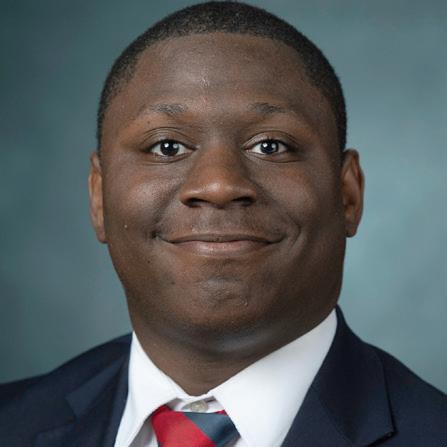
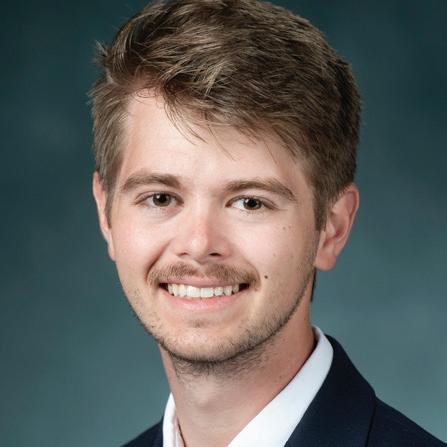
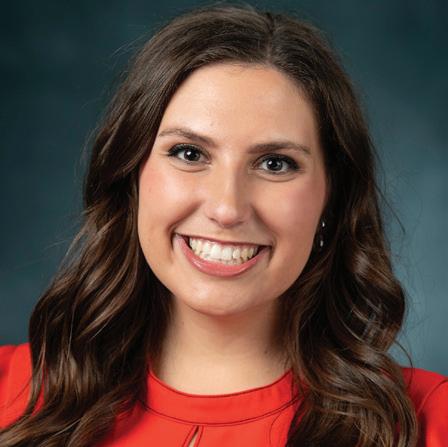
Status of Women and the Lecture Series. “I created a legacy by advocating for all students, shattering the stigma around a gender specific position in our student government, and fostering a welcoming environment. Through advocacy programming initiatives, I connected with campus stakeholders to create awareness of spaces for all of our students.”
Knerr was a biochemistry major, Stamps Scholar, Barksdale Award recipient, and Goldwater Scholar whose collegiate experience was defined by service to the campus and Oxford communities—mainly on Hill County Roots, UM Green Roots, and UM Environmental Coalition. As president of Hill County Roots, Knerr developed the first student-run tree farm in the state, leading 200+ college students to become more environmentally active. “I’ve grown as a leader, a servant, and as a person working on this tree farm,” said Knerr, who believes his legacy will help the university be more sustainable. “My work gave hundreds of college students, public school students, and citizens the opportunity to connect with nature.”
A public policy leadership major, Pigg was an Ole Miss Women’s Council scholar, member of the Honors College, orientation leader, RebelTHON director of sponsorship, ASB Freshman Council director, Student Activities Association executive director, Lott Leadership Institute ambassador, and vice president of the Columns Society. Through his platform as Mr. Ole Miss, Pigg raised money for the First Gen Fund, a scholarship endowment for first-generation college students. “As Mr. Ole Miss, I ran on a platform of including everyone, no matter their background, and I acted on that to leave this place better than I found it. I hope my legacy proves you can be whoever you want to be at Ole Miss.”
Williams, an economics and political science double major, served as Interfraternity Council’s vice president of diversity and community engagement, UM Black Caucus president, and a member of the Columns Society. “I believe my lasting legacy at UM was as a student leader devoted to pushing for an inclusion, equity, and equal access community for every student,” said Williams, who believes his work with the LGBTQ Affairs Chancellor’s Committee will help build a foundation for all students. “I dedicated myself to make every part of campus that I touched welcoming to everyone by pushing for inclusive initiatives that will lead to the betterment of our beloved campus and the community.”
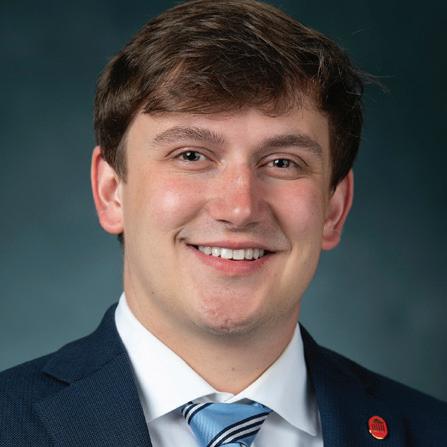
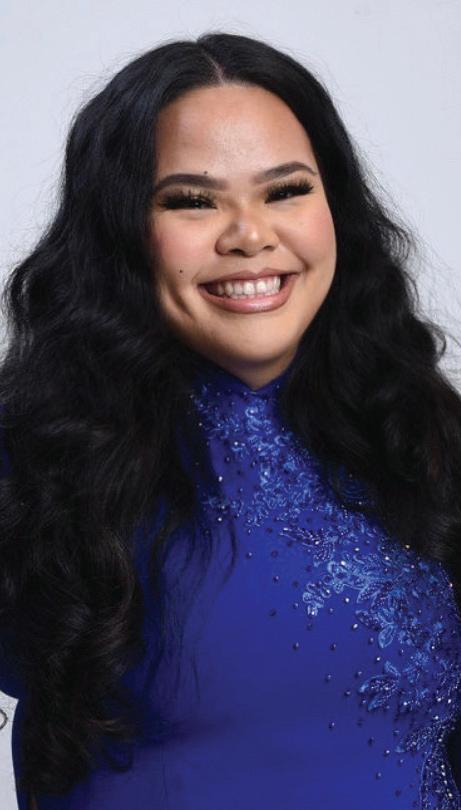
“I believe sociology provides individuals with transferable skills that are applicable in different careers. Pursuing a master’s degree in sociology allowed me to pursue my research interests in poverty, health, hunger, and food systems in Mississippi as a research assistant for UM's Center for Population Studies. My favorite experience was working in the Delta on a Produce Prescription Program that addresses food insecurity by providing fresh fruits and vegetables
to participants. I gained vast knowledge while building great relationships with community members. With the support of my advisor, Dr. Cafer, I interned for Harvard Law School’s Food Law and Policy Clinic where I worked on a policy brief titled ‘Food Is Medicine Opportunities in Mississippi & the Mississippi Delta.’” Nguyen (BA sociology 20) plans to work for an organization that addresses health inequities among marginalized communities.
Margaree Jackson Obioha (BA political science and Spanish 19) wrote her MA thesis on the AfroUruguayan poet Cristina Rodriguez Cabral after completing an undergraduate Honors thesis on “El Hip-Hop Cubano.” She founded the business Lengua Solutions in Brandon to provide Spanish tutoring and translation services. Her charitable work includes The Lighthouse: Black Girl Projects—a nonprofit in Jackson focused on leadership development of Black girls in Mississippi, where she offered data-driven resources to influence Black and Latinx girls in schools to be
Anil Panta conducts research in experimental high-energy particle physics as a member of the Belle II experiment located in Tsukuba, Japan. His research focus is to gain a better understanding of the matter-antimatter imbalance in the universe by studying charge-parity violation, using data from the Belle II experiment. He is also a user analysis group leader and end-user client tools subgroup leader for distributed
changemakers in their communities. She has been an intern at Jackson’s Migrant Support Center of Catholic Charities. She was selected to make a commencement address for the UM College of Liberal Arts master’s ceremony.
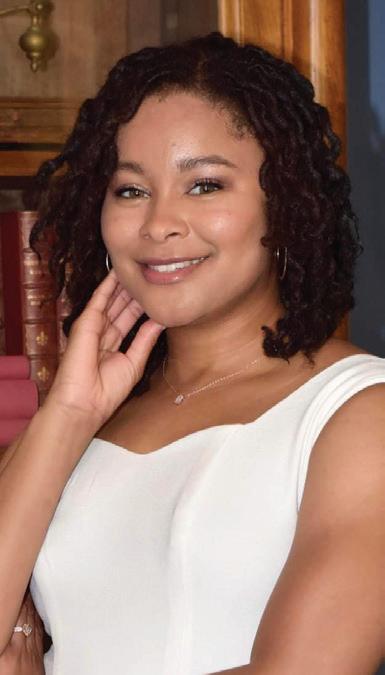
“I have accepted a position as a 4th grade bilingual (English and Spanish) teacher in Manor, Texas. I’m grateful for my experience teaching Spanish to undergraduate students during the MA program. This will be extremely beneficial in helping me navigate this new career opportunity.”
computing at the Belle II experiment.
In 2019, Panta received the prestigious Ozaki Fellowship to strengthen US–Japan scientific collaboration in the areas of accelerator and particle physics, which provided support for him to travel to Japan and work with experts from Nagoya University on physics and computing research. He plans to work in the Big Data industry as a data analyst and system architect after graduation.

Each year departments present Graduate Achievement Awards at Honors Day.
Raven Thompson’s thesis, “The Effect of Pitch Height on Instrument Gender Ratings,” explores the perceived gender ratings of different instruments. Using a semantic rating scale, participants rated the perceived masculinity and femininity of instruments as they played in ranges that countered their established instrument-sex-stereotype. Specifically, instruments typically viewed as “female” performed lower than usual while instruments typically viewed as “male” performed higher
Sara Witcraft’s program of research emphasizes transdiagnostic psychological processes that contribute to the co-occurrence of pathological anxiety and health conditions (e.g., gastrointestinal distress) and maladaptive health behaviors (e.g., poor sleep, substance use). This work has important implications for identifying and elucidating malleable intervention targets for these common, yet misunderstood co-occurring conditions. She continues to explore the associations between
“I am interested in investigating the parameter values that can characterize the configurations or properties presented in a graph. The Department of Mathematics has many great graph theorists, and I am lucky to study with them. My research areas mainly focus on extremal and structural graph theory such as Ramsey related problems (Ramsey numbers and Gallai-Ramsey numbers), intersection of longest
than usual. Her work has implications for band directors as they guide their students through the instrument selection process.
Thompson (BM music education 17) taught middle school band in the Tupelo Public School District for three years, where her students earned superior ratings in concert and sight-reading evaluations. After graduation, she resumed teaching band in the DeSoto County School District and plans to eventually begin working on a doctoral degree.
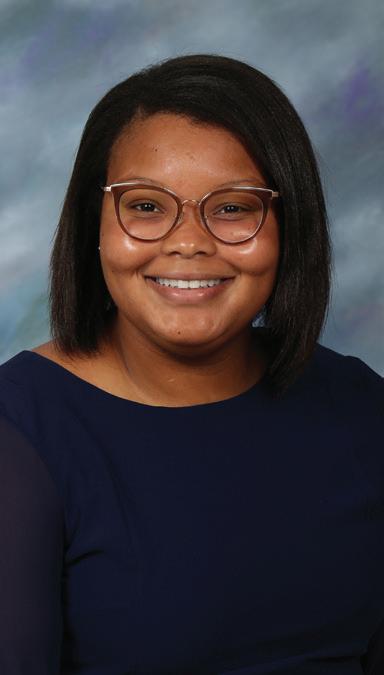
anxiety and health as a postdoctoral scholar at the Medical University of South Carolina.
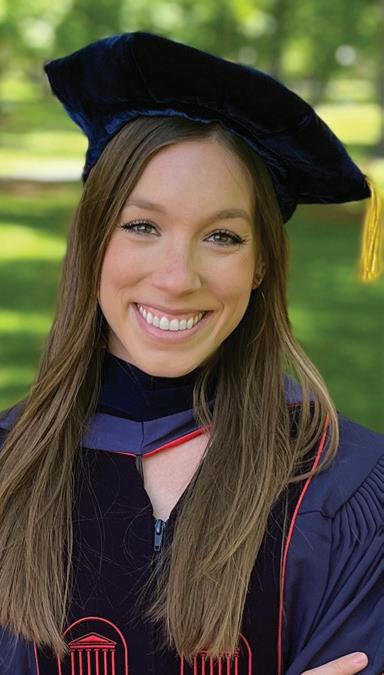
An author of 19 peer-reviewed publications, two book chapters, and 30+ scientific presentations, she taught Introduction to Psychology and was a graduate mentor for multiple undergraduate research projects. She received the Graduate Research Achievement Award in Clinical Psychology and the Kenneth J. Sufka and Hannah M. Harris Graduate Student Excellence Award.
paths, and partition of graphs.
“My current research for my doctoral thesis is on the Ramsey and Gallai-Ramsey numbers of graphs. This is joint work with my supervisor, Bing Wei, professor of mathematics. I have had three papers accepted for publication in journals and have given research talks at five conferences. In the future, I will be a faculty member and continue to explore some problems of graph theory.”
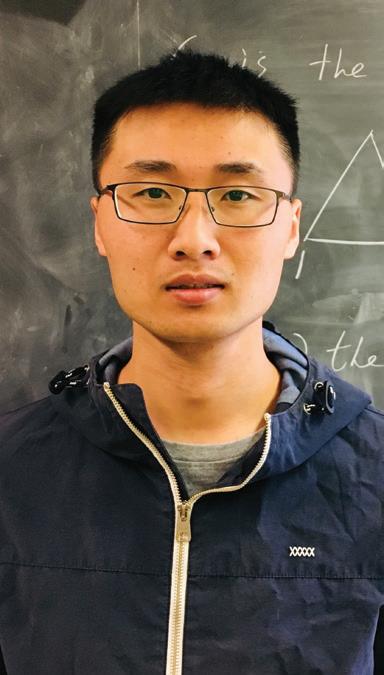
Presbyterian minister Cliff McKay served the university as a chaplain from 1959 to 1964, and he witnessed history when he befriended James Meredith, UM’s first Black student. He even gave the invocation at Commencement before James Meredith received his diploma.
McKay was offered another job while working on his master’s in philosophy, so he and his wife packed up their home and the three children they’d had while the family was on campus. He went on to earn a PhD in historical theology from Vanderbilt University and enjoyed a full life of teaching and ministering in a variety of church roles.
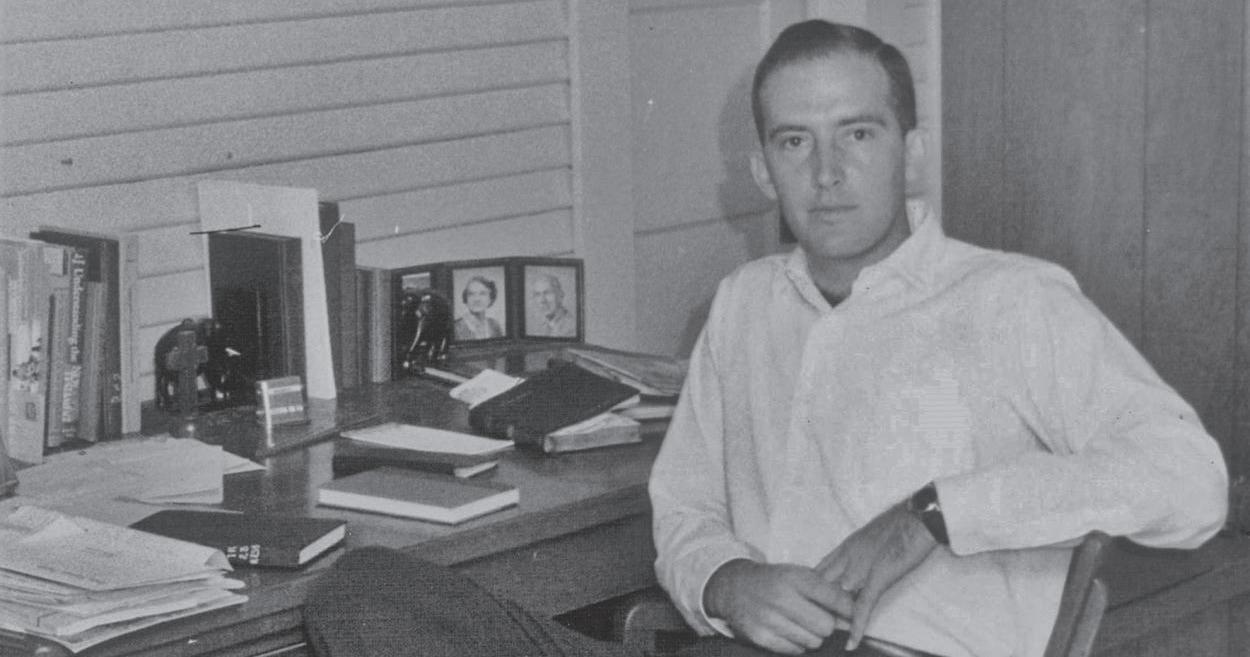
“It’s this lifetime learning thing with me. I have always had this insatiable curiosity.”
During the COVID-19 pandemic McKay contacted Steven Skultety, chair and professor of philosophy and religion, about reenrolling. He lacked only a thesis to complete his master’s degree. Finally, at 87, he graduated.
His thesis, “Inevitable Mortality and the Incessant Momentum of Medicalized Death,” focuses on the ethical issues around end-of-life care. He lives in a retirement community and has seen friends and relatives go through the many struggles
that come at the natural end of one’s life.
“I am living in a laboratory of end-of-life issues. I did a little lab work and discovered there were problems. Most of those problems were entered into my thesis.”
McKay focused on how the treatment of those at the end of their life has been directed by medical personal and treatments rather than the wishes of the persons themselves.

“There is so much wrong with the structures of medical delivery, and medical ethics seems to be off-track as well.”
Neil Manson, professor of philosophy, worked with McKay on his thesis. “He is making a plea for a better system,” Manson said. “It’s something that almost any reader can relate to since most of us have someone who has gone through the final stages of life, and unfortunately it is shuttling them between hospitals and rehab centers, and it can be a very messy process.”
Skultety enjoys working with retirees who want to keep on learning. “It’s gratifying, and it’s a good reminder that philosophy and religion really do ask questions that stay with people their entire lives,” he said. “But Cliff is in a league by himself.”
“It’s this lifetime learning thing with me. I have always had this insatiable curiosity.”
—Cliff McKay
While researching universities as an Ocean Springs home-schooled student, Taliya Harman was interested in both Chinese and filmmaking.
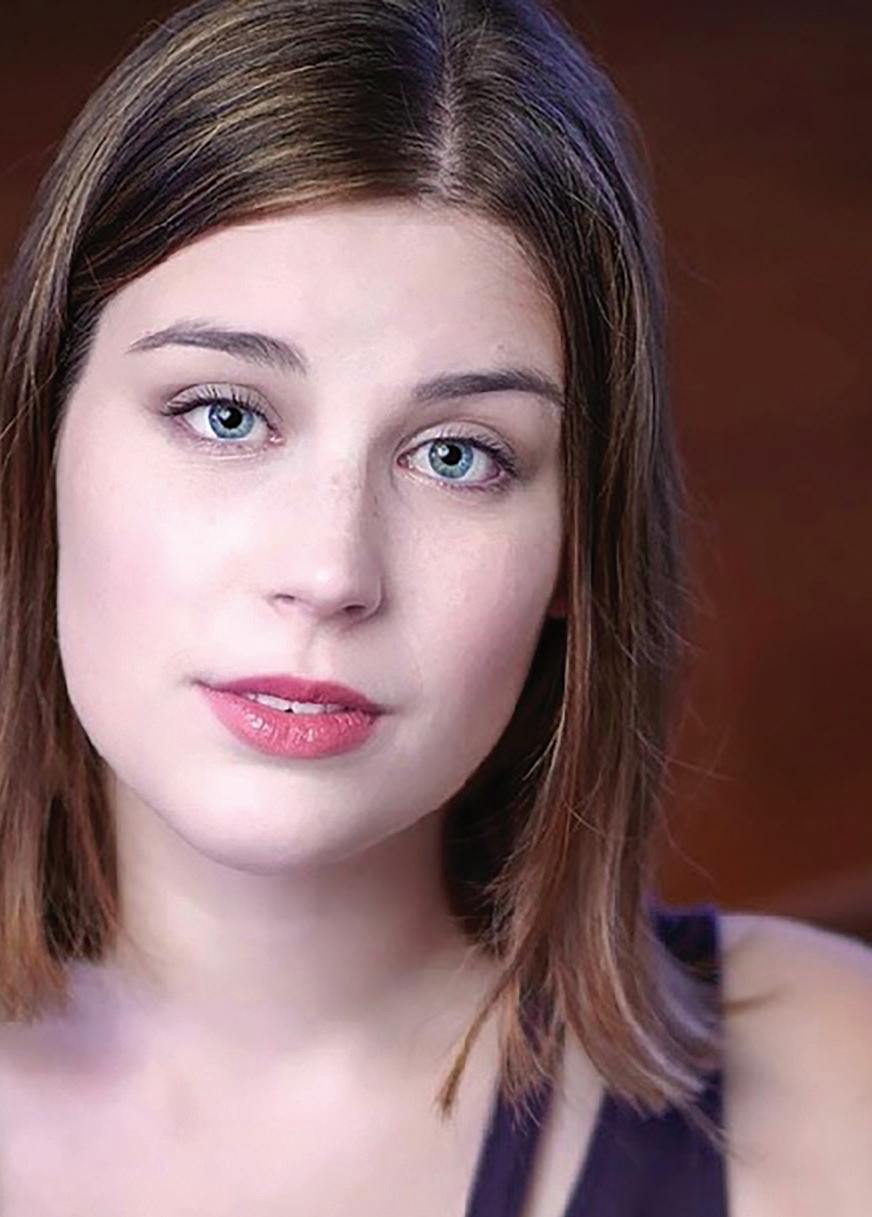
She discovered that UM’s Chinese Language Flagship Program is one of the best in the country. When she learned that the Department of Theatre & Film would be launching a new film production program, her decision to attend UM was sealed.
Harman threw herself into language studies before UM, studying in Beijing, China, as well as completing UM’s Summer Language Institute. Her freshman year, she entered UM’s Flagship Program with the sophomore class.
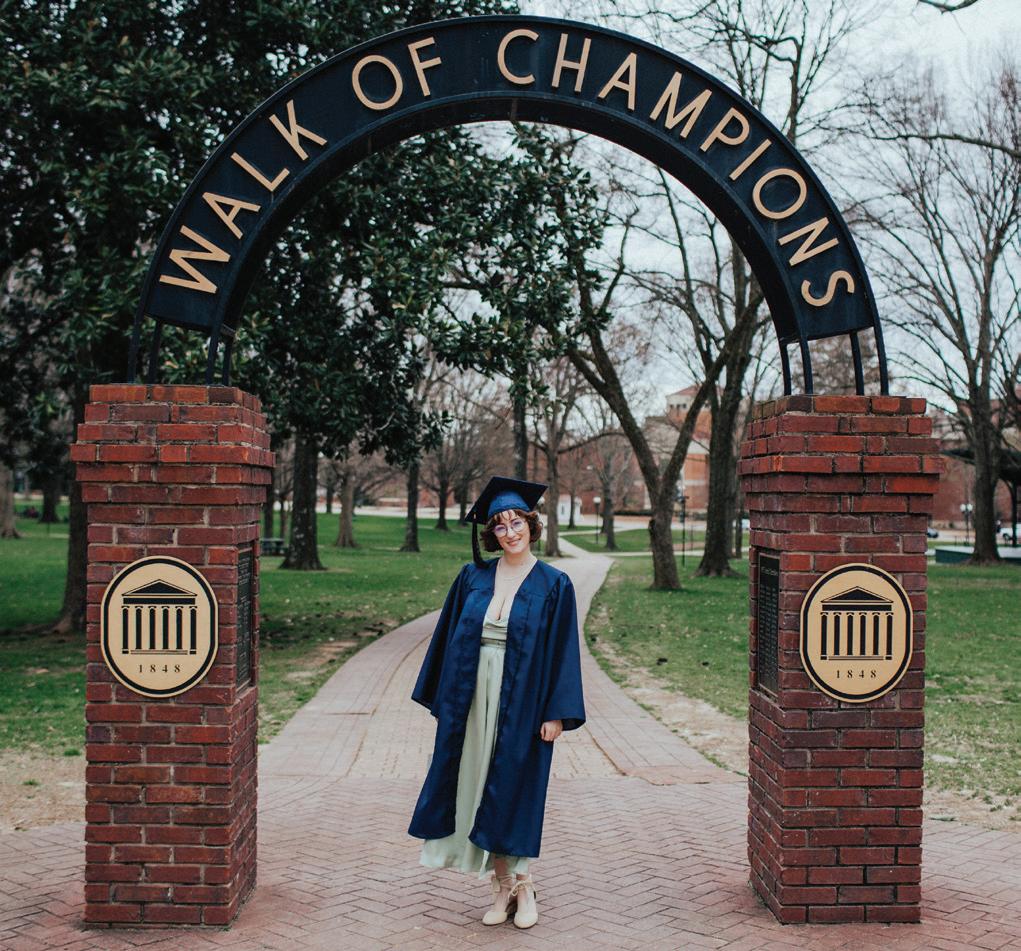
In filmmaking, however, she was practically a complete beginner. “From a young age, I enjoyed writing, and I knew I wanted to do something creative that involved storytelling,” said Harman, a member of UM’s first graduating class of the BFA in film production.
“I realized early on that I like being behind the camera, so that’s why I’ve become more interested in cinematography.”
The film production program takes every student in its small cohort—16 per year—through all aspects of filmmaking, which Harman said is an advantage.
Another program highlight is access to extensive professional equipment, which students can check out for projects both in and out of class.
“I was not very good at lighting, which is an important part of cinematography. When I started trying to improve, I checked out all the lights we had in order to learn how they work.”
Harman has no difficulty imagining how to bring her passions of Chinese and filmmaking together. “I would love to make films with Chinese influences. And I would love to make films about China in a way that helps Westerners understand it more.”
In the meantime, Harman, who graduated in May, plans to move to Atlanta—often dubbed “The Hollywood of the South”— and hopes to start as a production assistant and work her way up the ladder. She also wants to buy a camera so she can make films and eventually be hired as a cinematographer on others’ projects.
Students from the Musical Theatre Voice class participated in the first round of local auditions of the National Association of Teachers of Singing National Student Audition Competition. Four of the six students placed with scores in the advanced categories and three moved on to regionals.
1st Place Upper Collegiate Musical Theatre Division - Claire Justice Porter
2nd Place Upper Collegiate Musical Theatre Division - Reese Overstreet
Honorable Mention Upper Collegiate Musical Theatre Division - Morgan Yhap
3rd Place Lower Collegiate Musical Theatre Division - Caiden Craddock
Porter, Overstreet, and Craddock moved on to the next round. “Our three students who went on the regional competition did quite well, all scoring in the advanced range,” said Christie Rotarius, visiting assistant professor of musical theatre. “Senior Claire Justice Porter moved on, participating in online rounds. She just missed the Chicago finals.”
Porter was the 2022 recipient of the Outstanding Theatre & Film Student Award, the highest honor bestowed upon a student in the department.
Howell Family Outstanding Teacher of the Year
Timothy Paul Yenter
Associate Professor of Philosophy, Associate Dean of the Honors College
Cora Lee Graham Award for Outstanding Teaching of Freshmen
Jacqueline Frost DiBiasie-Sammons Assistant Professor of Classics
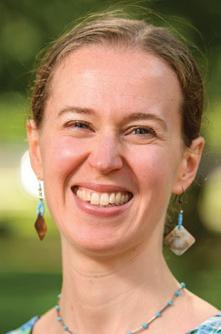
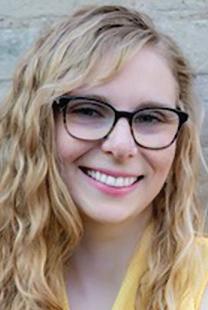
Liberal Arts
Outstanding Instructor of the Year
Emily Bretherick
Rowland
Instructional Associate Professor of Chemistry and Biochemistry
Dr. Mike L. Edmonds New Scholar Research Award

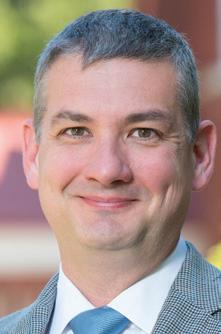
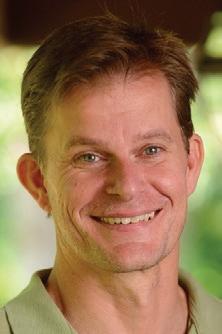

Saumen Chakraborty Associate Professor of Chemistry and Biochemistry
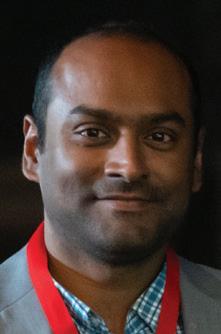
College of Liberal Arts Award for Research, Scholarship, and Creative Achievement
Ted Ownby
William F. Winter Chair and Professor of History and Southern Culture
Mississippi Humanities Council
UM Humanities
Professor of the Year
Allen Clark
Associate Professor of Modern Languages
Faculty Achievement Award
Nathan Hammer
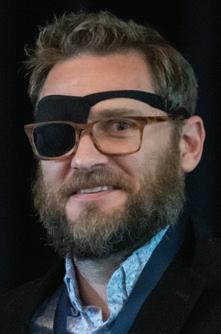
Margaret McLean Coulter Professor of Chemistry and Biochemistry
Lift Every Voice Award
Afton Thomas
Associate Director Programs
Center for the Study of Southern Culture
Veronica Menaldi Assistant Professor of Spanish
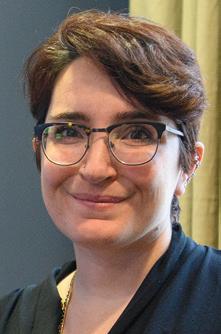
Carrie Smith Associate Professor of Psychology
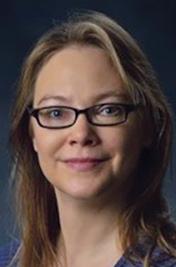
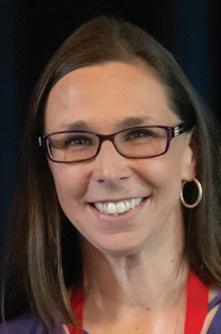
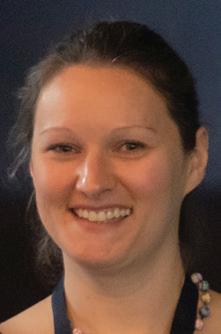
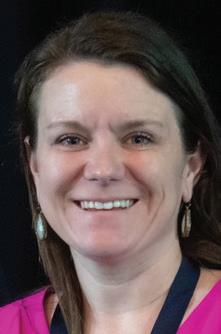
Melinda and Ben Yarbrough Senior Award for the Natural Sciences and Mathematics
Jared Delcamp
Associate Professor of Chemistry and Biochemistry
Paragon Excellence in Distance Teaching Award
Carey Bernini Dowling
Instructional Associate Professor of Psychology
Director of Undergraduate Studies
Distinguished Teaching Award for Excellence in Graduate Teaching and Mentoring
Leigh Ann Duck Associate Professor of English
Distinguished Teaching Award for Excellence in Graduate Teaching and Mentoring In Memoriam
John Neff

Late Associate Professor of History
Director of the Center for Civil War Research
Diversity Innovator Award
Ashleen Williams
History Doctoral Student and Instructional Assistant Professor/Senior Barksdale Fellow
Sally McDonnell Barksdale Honors College
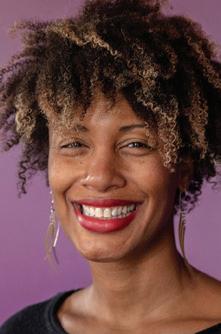
Mississippi Institute of Arts & Letters
Citation of Merit Award
MPB’s Highway 61
Scott Barretta
Instructor in Sociology and Anthropology
Choice Reviews Outstanding Academic Title
Whose Blues? Facing up to race and the future of the music
University of North Carolina Press
Adam Gussow
Professor of English and Southern Studies
National Endowment for the Humanities
Summer Stipends Grant
Kristin Hickman
Croft Assistant Professor of Anthropology and International Studies
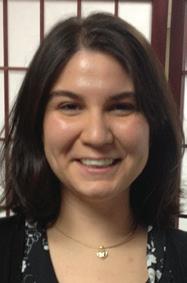
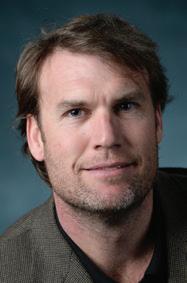
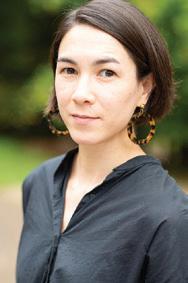
National Science Foundation
Early Career Award
Rizwanur Khan
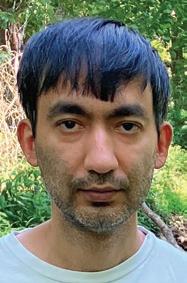
Assistant Professor of Mathematics
UM Distinguished Professor
Ken Sufka Professor of Psychology and Pharmacology
Society for the Study of Southern Literature’s C. Hugh Holman Award
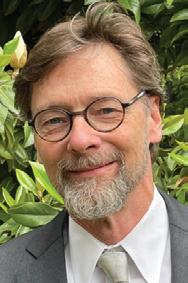
William Faulkner and the Faces of Modernity Oxford University Press
Jay Watson
Howry Chair in Faulkner Studies and Professor of English
R. Bruce Lindsay Award
Acoustical Society of America
Likun Zhang
Associate Professor of Physics and Astronomy

Staff Creative Residency
Nikki Neely Davis
Assistant Vice Chancellor of Development
Staff Creative Residency
Sara Camp Milam
Program Manager
Southern Foodways Alliance
Achieving Equity Grant
Simone Delerme
Associate Professor of Sociology and Anthropology and the McMullan Associate Professor for the Center for the Study of Southern Culture
Colorado Antiquarian Book Seminar–Minnesota Diverse Voices Fellow
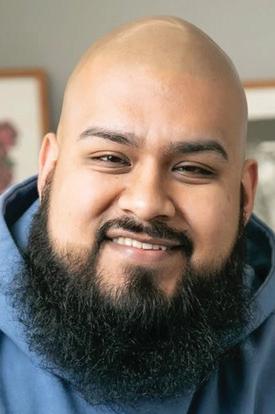
Jaime Harker
Professor of English
Director of the Sarah Isom Center for Women and Gender Studies
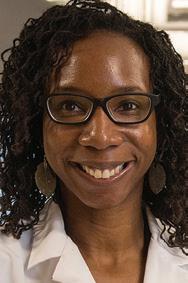
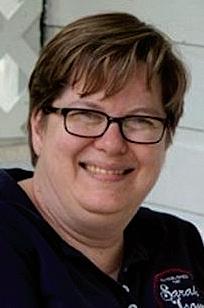
Jewish National Fund-USA Faculty Fellow
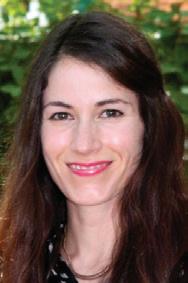
Jody Holland
Associate Professor of Public Policy Leadership

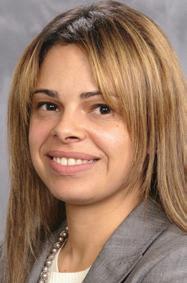
Achieving Equity Grant
Stephanie Miller
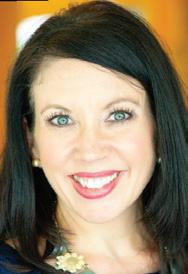
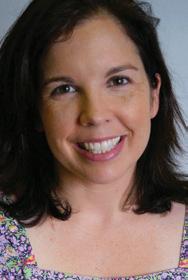
Associate Professor of Psychology
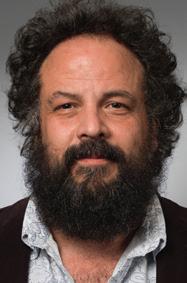
Director of the Experimental Graduate Program
American Chemical Society’s Women
Chemists Committee Rising Star Award
Davita Watkins
Associate Professor of Chemistry and Biochemistry
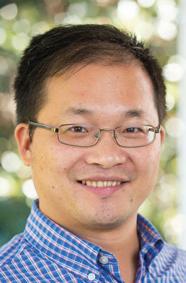
Achieving Equity Grant
Peter Wood

Instructional Assistant Professor of Theatre Arts
Staff Creative Residency
Kevin Cozart
Operations Coordinator
Sarah Isom Center for Women and Gender Studies
Staff Creative Residency
Frank Estrada
Visual Resources Specialist
Department of Art and Art History
Staff Creative Residency
Casey Cockrell Stuart
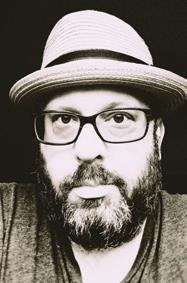
Academic Advisor
Health Professions Advising Office
Tamar Goulet, professor of biology, was one of the educators, scientists, conservationists, and entrepreneurs building the future that the Smithsonian Institution commemorated for Women’s History Month in March.
On NBC’s TODAY Show news program, the Smithsonian unveiled #IfThenSheCan—The Exhibit, featuring 120 life-size statues of female trailblazers who have excelled in the fields of science, technology, engineering, and mathematics, or STEM. Held at the Smithsonian Gardens and select Smithsonian museums in Washington, DC, the exhibition was the largest collection of women statues ever assembled. Each featured a QR code that visitors scanned with their phones to learn about the woman depicted.
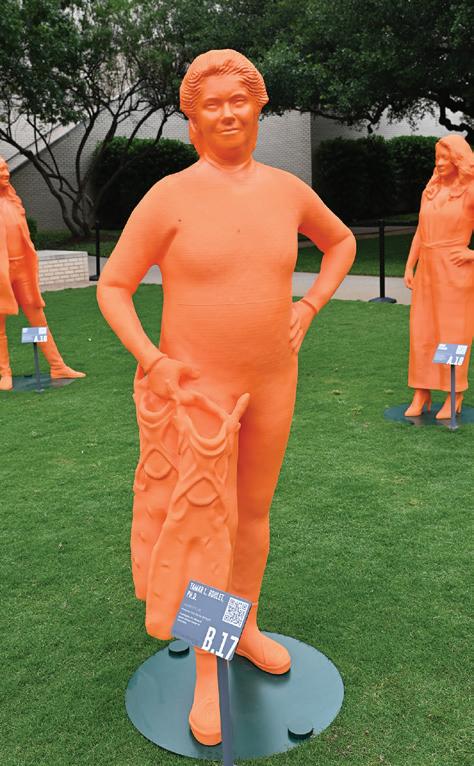
“These striking 3D-printed figures of remarkable women in STEM careers help us celebrate the incredible impact women continue to make on vital scientific endeavors,” said Lonnie Bunch, secretary of the Smithsonian. “The exhibition highlights how a more diverse, more inclusive workforce will strengthen our shared future.”
Goulet, who was depicted in her diving gear, told a national audience about her research on Florida Key coral reefs during CBS-TV’s Mission Unstoppable. Her appearance on the show was part of her IF/THEN Ambassadorship, a program to position women in STEM as role models for middle school girls by the American Association for the Advancement of Science.
ovent Taylor, director of UM’s Health Professions Advising Office, is president of the Alpha Epsilon Delta National Health Preprofessional Honor Society.

The society welcomes all students engaged in the pursuit of a professional development in pre-health professions, provides a forum for students with common interests, and extends a program of service to benefit the university community.
Founded in 1926, the organization, based in Fort Worth, Texas, has 144,000 members at 186 university chapters in the US.
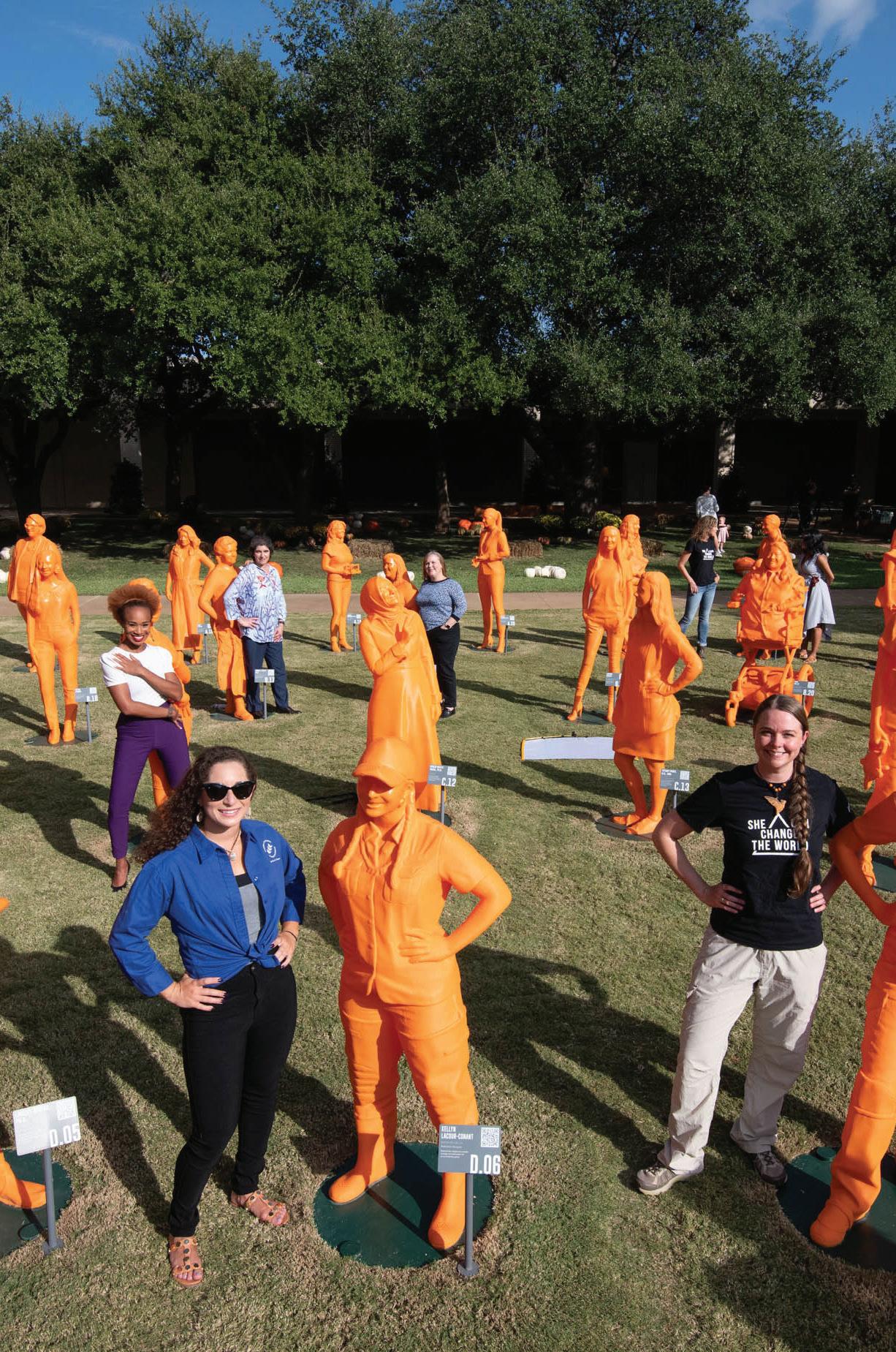
“I am honored to be the first African American national president,” said Taylor. “The president manages the organization and budget. I am responsible for helping to install new chapters, heading the AED Scholarship committee, and overseeing the Biennial Convention. Our national board is committed to the success of the students in this honor society, and I thank them for everything they do. I cannot do it without their unwavering support.
“I am constantly amazed by all the dynamic prehealth
students I interact with at our chapter, Mississippi Beta, and the others around the country. I have always been an advocate for students, and this position allows me to continue my passion. Thanks to everyone that trusts me with their dreams. I do not take it lightly.”
Recipient of UM's 2020 Frist Student Service Award, Taylor has a great deal of relevant experience. He earned bachelor’s degrees in psychology and marketing, a master’s and doctorate in higher education, all from UM. Originally from Clarksdale, he joined UM in 2006 as an admissions counselor and also worked for the Division of Outreach and Continuing Education, Office of Alumni Affairs, and the Center for Student Success and First-Year Experience before joining the Health Professions Advising Office in 2014.
Stephanie Miller, associate professor of psychology, is the inaugural Provost Faculty Research Scholar for Institutional Transformation.
“Much of my service as an academic has been devoted to diversity, equity, and inclusion, and I am thrilled to receive a position focused on this important element in academia,” said Miller, who directs the experimental graduate program in psychology.
“I hope that with this position I share the benefits that encouraging diverse viewpoints can have in advancing our institution. I hope to build a team focused on proposing evidence-based practices that can aid in attracting individuals with diverse viewpoints to the university and supporting these scholars’ careers.”
The new post supports the expansion of UM’s efforts to build collaborative research teams equipped to write and submit external grants designed to increase institutional capacity in the areas of diversity, equity, and inclusion.
Miller, who joined the faculty in 2012, focuses her research on social and cognitive development across the lifespan, with an emphasis on infancy and early childhood. She directs the Cognition Underlying Behavior Lab, a developmental research lab interested in how children come to control their thought and behavior and what supports this development. The lab also studies how this control relates to other social and cognitive processes, such as social understanding and memory.
Miller works with the Ronald E. McNair Postbaccalaureate Achievement Program and the Society of Indian Psychologists Native-toNative Mentoring Program. “Being a mentor is a significant part of how knowledge gets passed down,” she said. “I feel a responsibility to help the next generation of scholars and our community develop. Working closely with students can be a way to enact change by encouraging a more inclusive and diverse community for generations.”
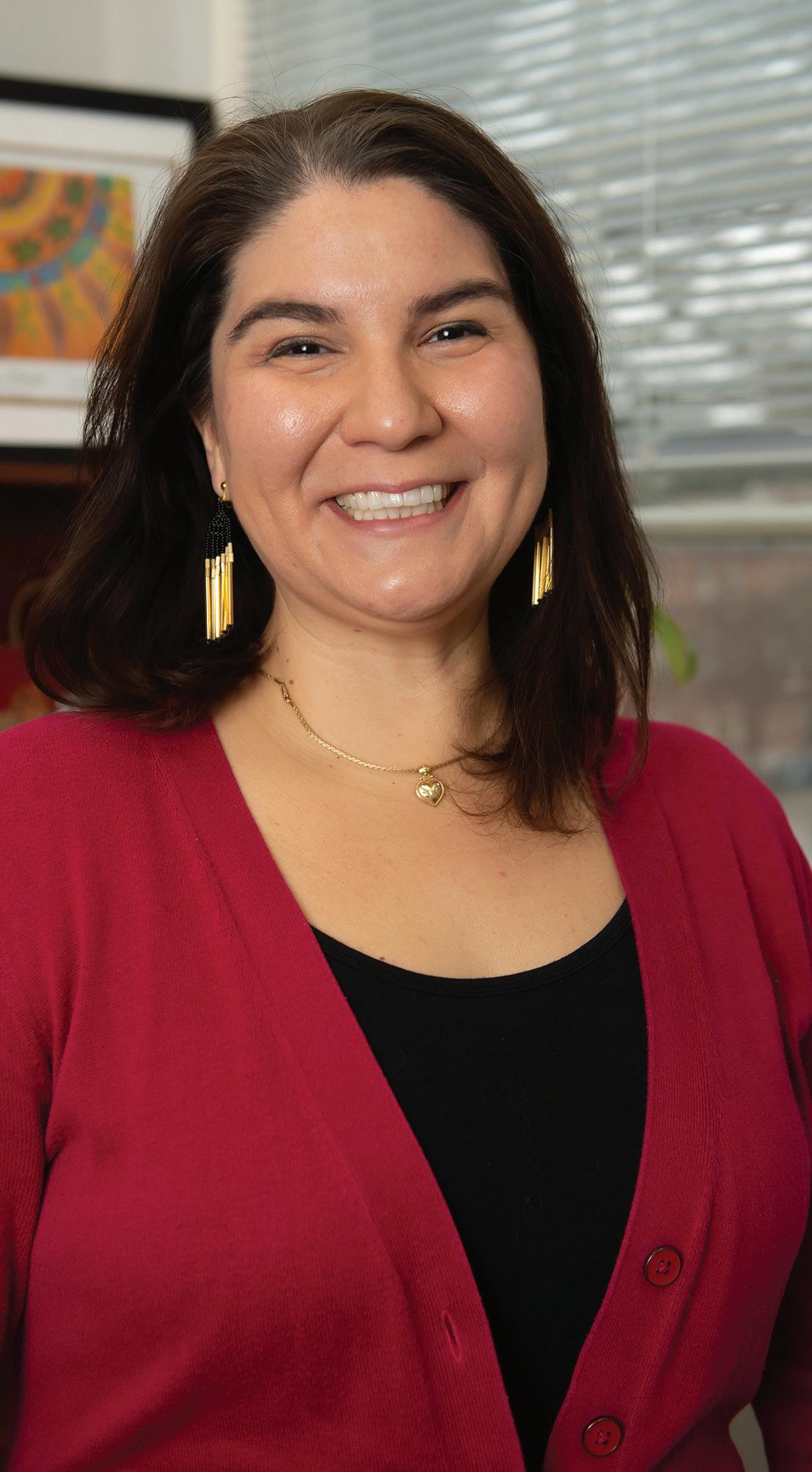
The university has received $1 million+ to further fund an initiative in Mississippi preschool programs promoting social and emotional learning in children that could boost their overall well-being.
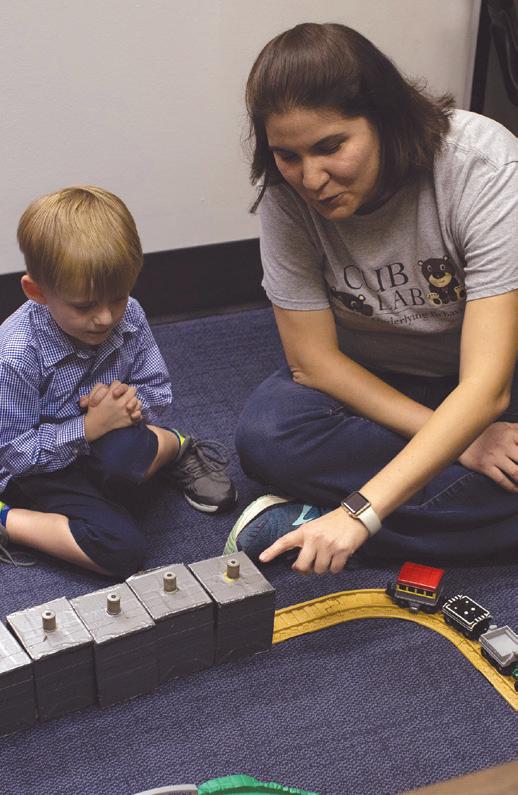
The grant from the W K Kellogg Foundation bolsters Growing Healthy Minds, Bodies, and Communities—an innovative standards-based preschool curriculum combining yoga and mindfulness, gardening and nutrition,
social-emotional competencies, physical activity, and antibullying and antibias to support the well-being of children in the state of Mississippi.
UM's interdisciplinary group working on the grant includes Stephanie Miller, associate professor of psychology. “Important funding through the UM Flagship Constellations grant helped start the project’s early pilot phases, and the overall support has meant a
lot,” she said. “It has expanded our project to support children in the classroom and at home by providing the funding to develop accessible parent education that complements our curriculum.”
Different viewpoints from various disciplines are a key to the initiative’s success, Miller said. “It allows us to draw on multiple approaches to tackle the complex question of how to support whole child wellness.”
his class of animals—frogs, salamanders, and caecilians—has been decimated by the emergence of new infectious diseases, along with human-caused damage to their ecosystems. Yet, some species have bounced back, and researchers are wondering if there’s a lesson for humanity in the resiliency of amphibians.
To study this rebound and what humans can learn from it, Michel Ohmer, assistant professor of biology, and research peers have launched an institute funded by a five-year, $12.5 million National Science Foundation grant. The Resilience Institute Bridging Biological Training and Research, based at the University of Pittsburgh’s Pymatuning Laboratory of Ecology, includes researchers at 11 universities.
“Amphibians are experiencing a pandemic of their own, resulting in catastrophic amphibian declines,” said Ohmer, who joined the faculty last August and whose research interests include amphibian biology and disease ecology, ecophysiology, global change, and conservation biology. “Given the worldwide reach of the chytrid fungal pathogen and the wide array of species impacted, amphibians are a perfect system for studying resilience to disease.
“Many amphibian communities were decimated, and many species went extinct, but since then we have also seen some remarkable recoveries. This evidence provides a natural experiment to understand how and why certain populations are resilient to disease and anthropogenic change across many regions and communities.
“This is incredibly relevant today as we face multiple global crises including a pandemic, biodiversity loss, and climate change. Understanding what makes some populations resilient, and what factors into that resilience, is incredibly important.”
The institute will study amphibians from sites in Brazil, Panama, the Sierra Nevada mountain range in California, and the Pymatuning Lab. The researchers will use pioneering approaches to tracking amphibians, such as collecting tiny traces of DNA from the environment and automatically picking up the sound of frog calls.
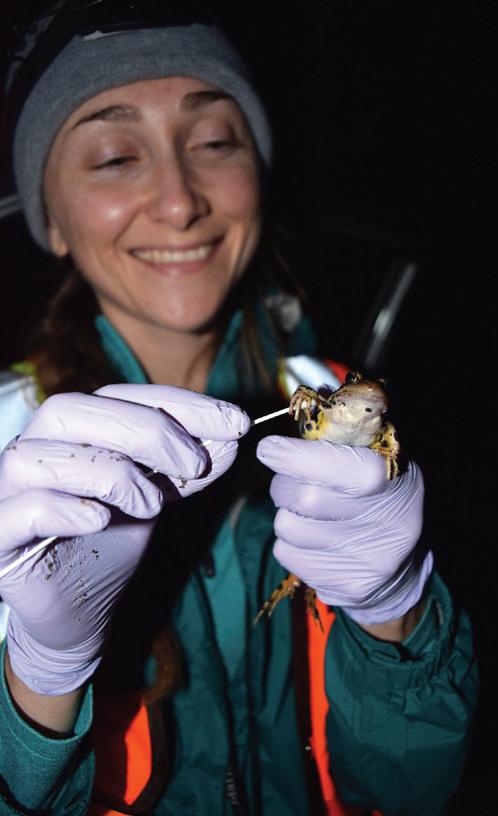

“My part of this research partnership involves using measurements of amphibian thermal traits and exploring questions such as under what temperatures can these species survive? What are the optimal temperatures for performance?” said Ohmer. “I’ll use those measurements in combination with measures of microclimate—the climate experienced by the amphibian in its environment—to make predictions of when and where amphibians will be most susceptible to climate change and disease. I will be leading experimental work at each of our field sites, as well as running empirical studies with focal species at UM.”

den Tanner, assistant professor of chemistry and biochemistry, and her team of researchers have a Pharmaceutical Research and Manufacturers of America’s Research Starter Grant in Drug Delivery for $100,000 to fund work on new ways to use red blood cells and platelets to transport chemotherapies and other medicines to specific areas of the body—which could reduce patients’ side effects.
Tanner’s research focuses on solving biomedical and bio-engineering problems using physical chemistry and, particularly, ionic liquids and nanomaterials. She is figuring out ways to use ionic liquids and nanomaterials to bond to the blood components and send medicines to specific areas.
“We are excited about the potential this technology offers,” Tanner said. “Currently, if you get lung cancer and surgery is not an option, basically you just get bathed in chemotherapy. It makes people very ill.”
Her lab in Coulter Hall contains vials of ionic liquids in varying viscosities, some looking like honey or maple syrup. Researchers determine which work best for different types of drugs. She explains the concept of cellular hitchhiking, using the example of someone being treated for lung cancer.
“If we could instead just target the lung, for instance, and not have it go everywhere, this means the side effect profile is less severe and people aren’t as sick. Our technology could be used to hitch a ride on red blood cells, which then deliver our cargo to the lungs.”
She is pleased with the group’s strength and their variety of experiences, perspectives, and special skills. Among them are a postdoctoral scholar, six graduate students, and 18 undergraduates. Some 65% of the group are women or nonbinary people, and 40% are people of color, Tanner said.
“My large team of excellent students is a collaborative effort. We bring people together from chemistry and pharmacy and other areas because we need their expertise.”
Meghan Gorniak, a chemistry major, values the opportunity. “This lab pushes me to think critically and to understand the application of many scientific topics. I hope my work can help further medical science discoveries.
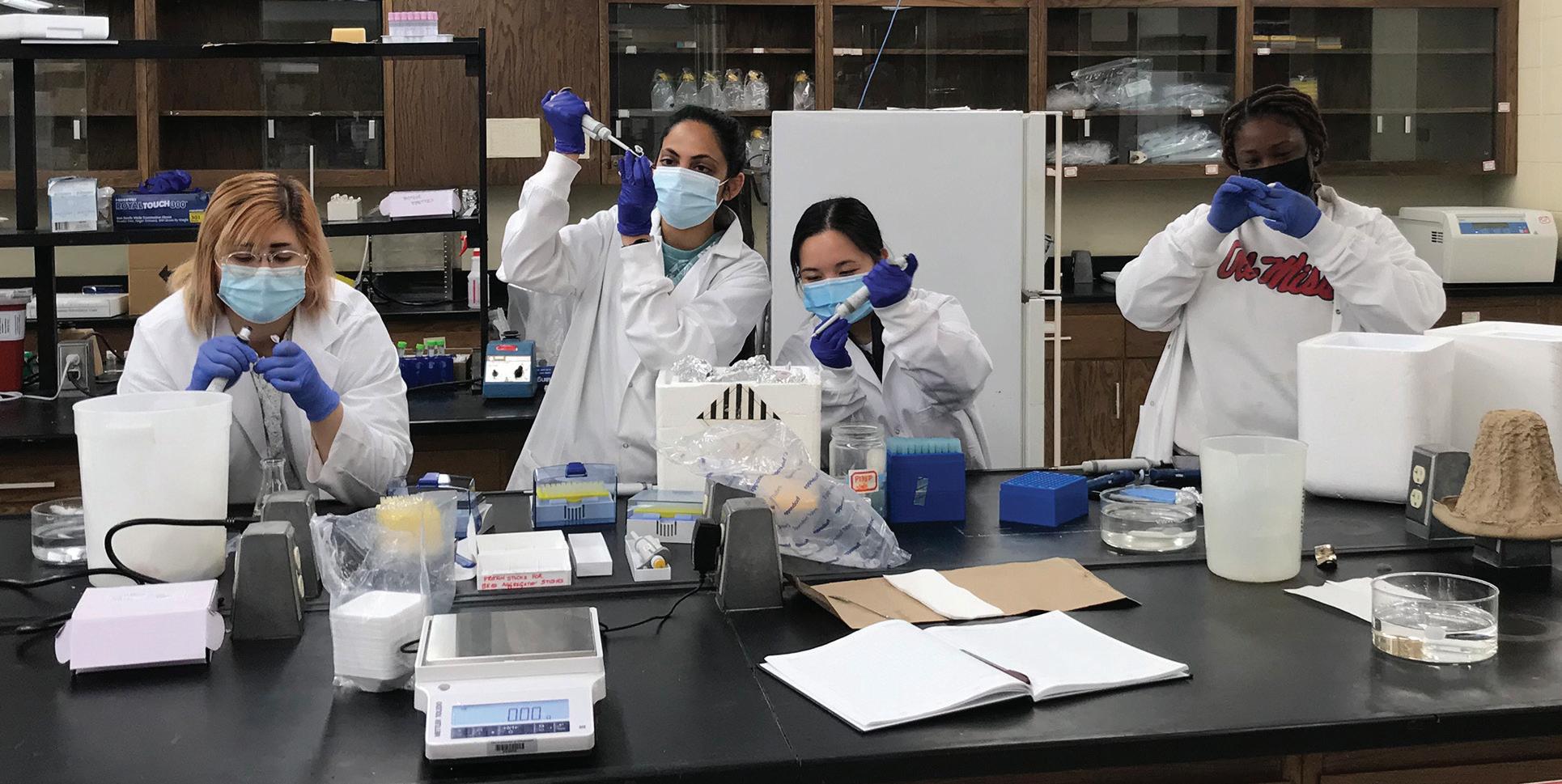
“I cannot thank Dr. Tanner enough for being my mentor and teaching how cool research can be.”
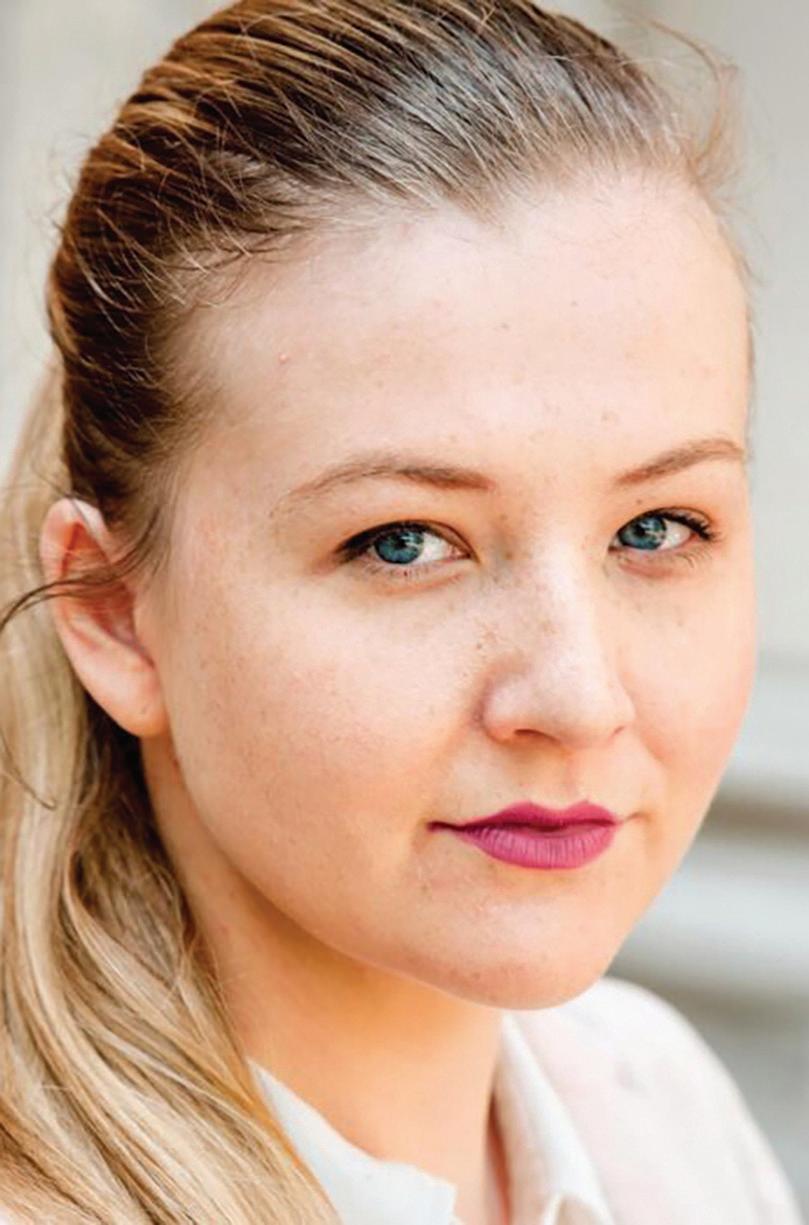
Aprototype of a device that can move liquids without physical contact traveled to the International Space Station for an out-of-this-world test of its capabilities. When NASA’s resupply mission to the ISS, Cygnus NG-17, blasted off on a February morning, an acoustic tweezers device conceived and built at UM was cargo.
Likun Zhang, associate professor of physics and astronomy and a researcher at UM’s National Center for Physical Acoustics, and Robert Lirette, a former doctoral student in physics who recently began a job as a postdoctoral researcher with the National Institute of Standards and Technology, hoped to explore the ability of the device to control fluids in the zero-gravity environment of space.
“NASA is interested in being able to manipulate fluids in space, and we can help,” Zhang said. “As you might imagine, fluids present problems in zero gravity, so a way of controlling them without physical contact would be valuable on space flights.”





Being able to control liquids on a spacecraft or space station has applications for propulsion, power generation, temperature
control, and life support functions. In zero




control, and life support functions. In zero gravity or microgravity, droplets can float freely in a spacecraft, posing danger to crew and equipment.
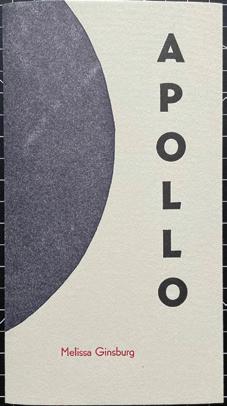
Zhang hopes to develop acoustic technologies for astronauts to contain and control liquids on long-duration space missions.
The acoustic tweezers technique works by forming sound waves into a specially shaped beam that creates a small pocket in the beam, which acts as a trap. Projecting the sound beam into a fluid containing liquid components that do not mix allows the pocket—the tweezers—to capture a droplet. Once the droplet is captured, the sound beam can be tilted or moved to maneuver it.


Under the guidance of Zhang and Joel Mobley, professor of physics and astronomy and a senior scientist at NCPA, Lirette succeeded in capturing a droplet and moving it using only acoustic forces.
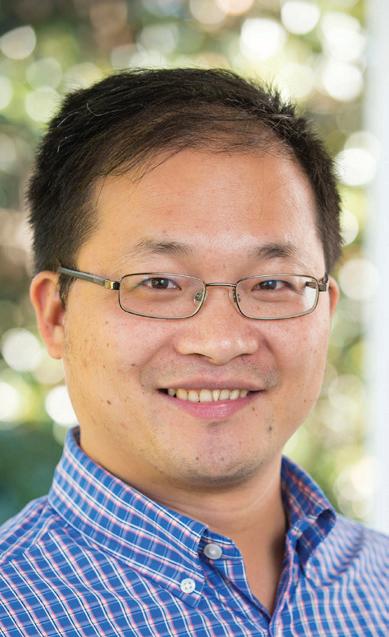
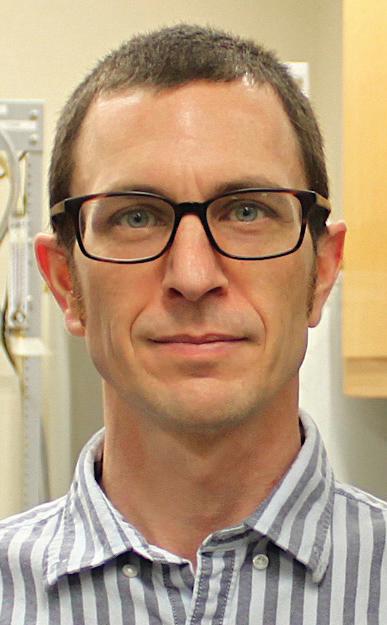
ead and listen to the poem Calypso Bean by Melissa Ginsburg, associate professor of English and creative writing, in The New Yorker's December 20, 2021 issue.
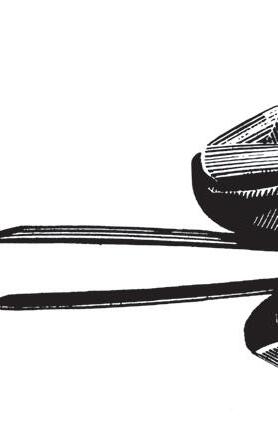
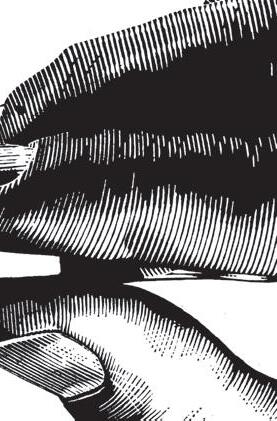


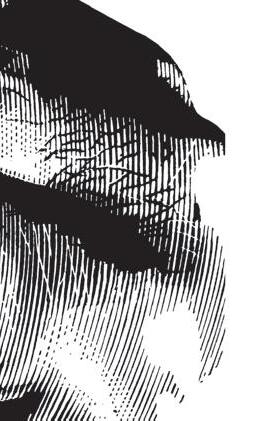
She is the author of the novels The House Uptown and Sunset City, the poetry collection Dear Weather Ghost, and two poetry chapbooks, Arbor and Double Blind. Her second poetry collection, Doll Apollo, was published in 2022 by LSU Press, along with the poetry chapbook Apollo by Condensery Press.
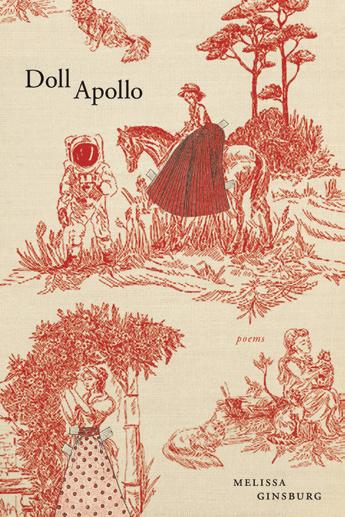
Her poems have also appeared in Guernica, Kenyon Review, Fence, Southwest Review, and other magazines. Originally from Houston, Texas, Melissa studied poetry at the Iowa Writers’ Workshop. She is associate editor of Tupelo Quarterly, a literary journal.
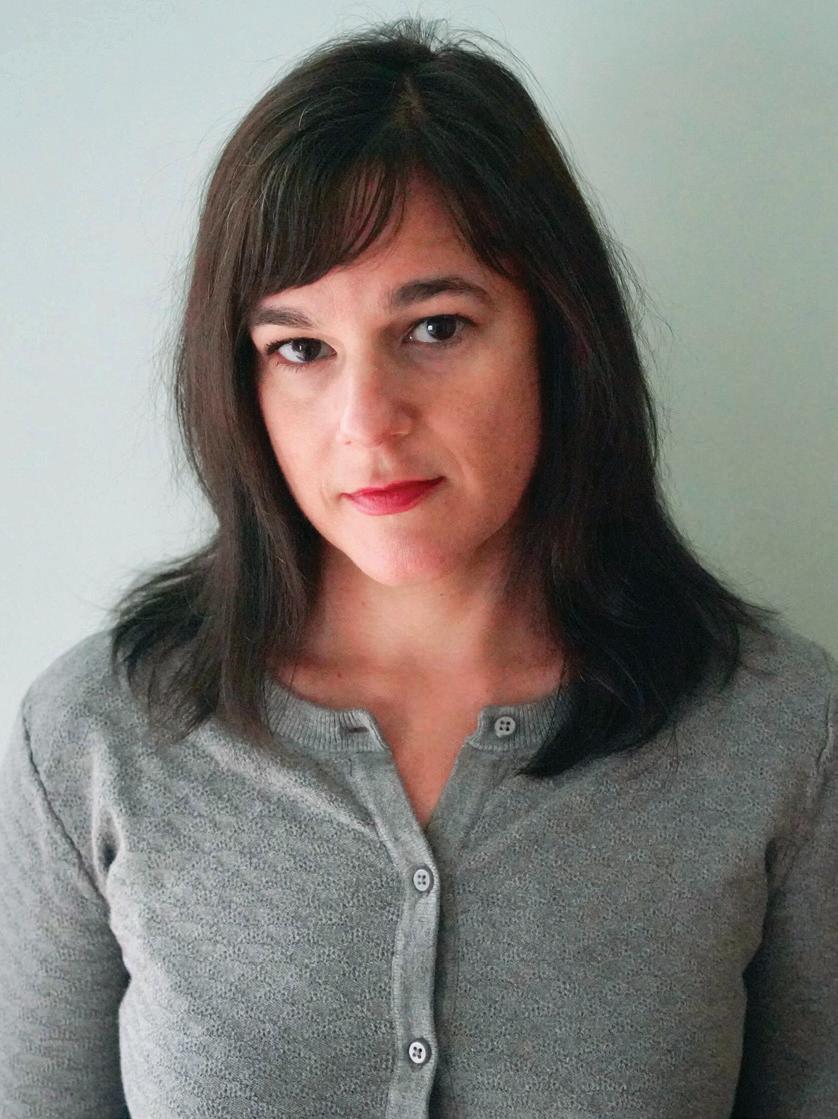

South Arts Emerging Leader of Color for 2022, Frank Estrada created Family Legacy, a special exhibition for The Mississippi Arts + Entertainment Experience (The MAX) in Meridian. His linocut portraits feature family members, capturing their emotions, telling their stories with their faces.
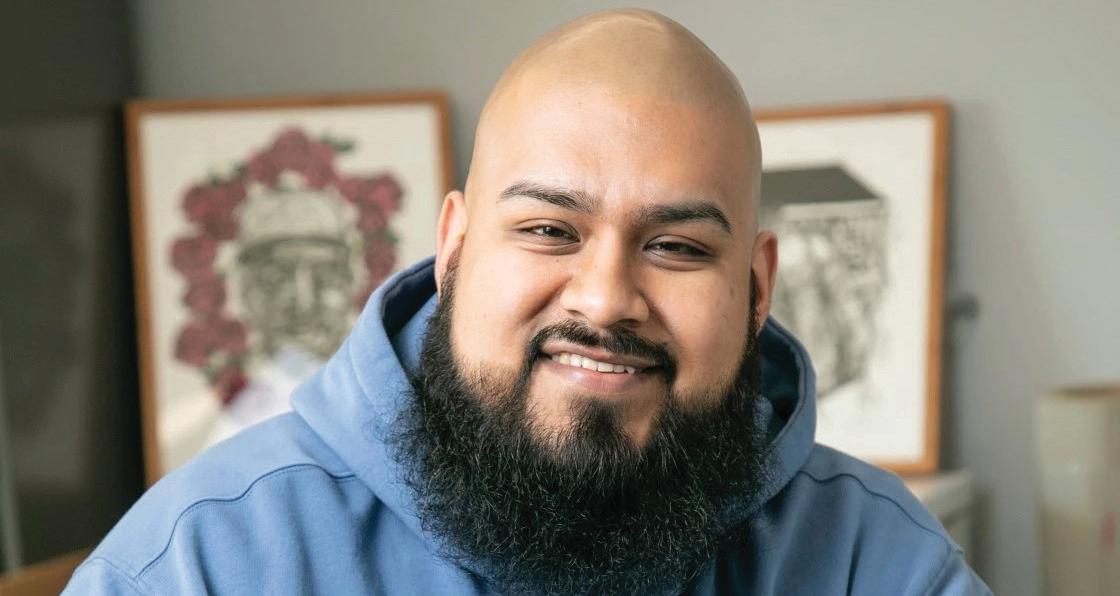
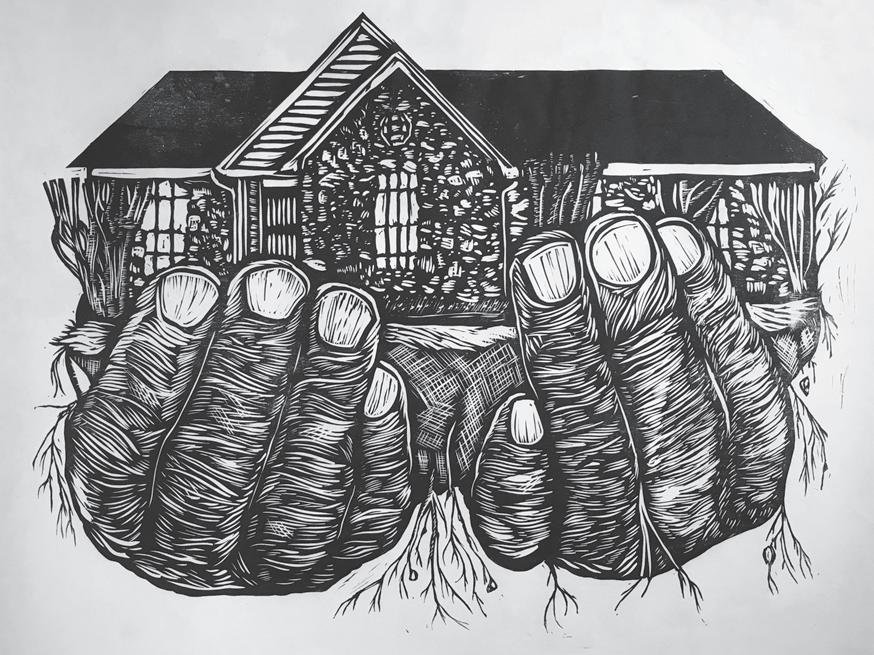


“My solo exhibition, a tribute to my father, combines both my printmaking and digital skill set,” said Estrada, visual resources specialist and gallery curator for the Department of Art & Art History. “Most of my work is composed of imagery from my Mexican heritage and Southern upbringing. I studied traditional Mexican printmakers at the beginning of my career. Now with social media, I am inspired by printmakers from around the world.”

Family Legacy joins traditional printmaking with digital illustration through augmented reality (AR). Visitors scan a QR code to initiate the AR experience, moving their camera over the artwork to see family members’ stories come to life.
“I love what Family Legacy stands for—love and appreciation of family,” said Stacey Peralta, exhibitions curator at The MAX.
“Just the sheer amount of detail put into the portraits shows that this exhibit is truly a labor of love.”


Estrada created art as a child in Memphis, but never thought he’d pursue it as a career. A printmaking class at UM changed his mind. He earned a BFA in art with an emphasis in printmaking and a BA in sociology, and is working on an MS in integrated marketing communications. With his knowledge of art and sociology, Estrada creates relief prints exploring and questioning the experience of a first-generation American.
Estrada’s award-winning art—with themes from immigration and the Day of the Dead to cotton fields and blues artists—has been displayed around the US. Recipient of both a Mississippi Arts Commission fellowship and a minigrant, he joined the Department of Art & Art History in 2018 after working for the RJ Young Company as the document imaging and design specialist at Ole Miss Athletics for five years.
Numbers are Micah Milinovich’s passion. The professor of mathematics studies the properties of integers and recently was awarded a National Science Foundation grant to fund his research.
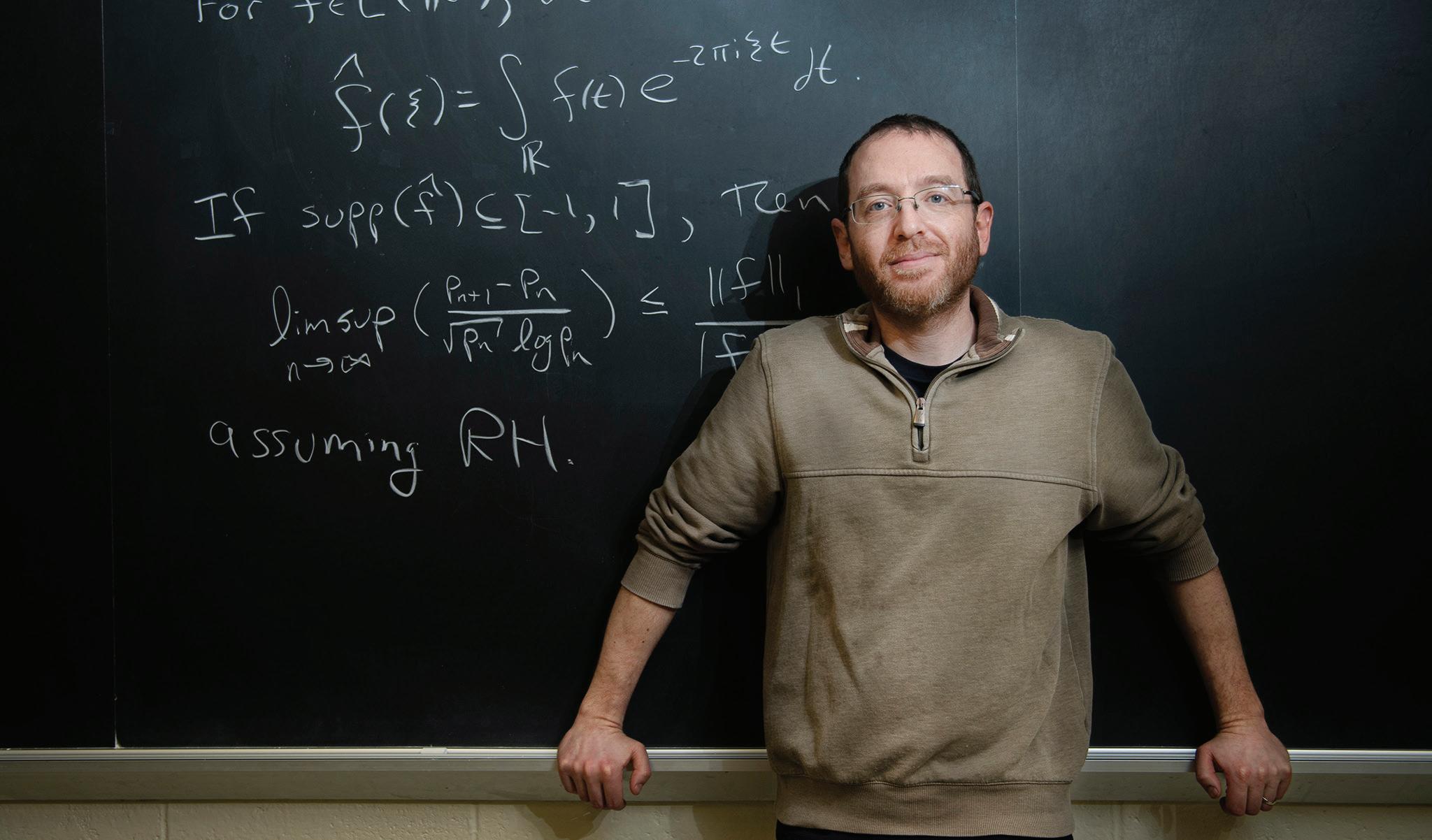
The award for “The Distribution of Zeros of L-Functions and Related Questions” supports his work in number theory, a branch of mathematics that studies properties of integers.
Within all integers is a special set of numbers called primes: numbers whose only factors are 1 and themselves, such as 2, 5, or 17.
“Since the time of the ancient Greeks, number theorists have tried to find patterns within the integers,” Milinovich said. “It turns out that every positive integer can be written as a product of primes, much in the same way that molecules can be written in terms of atoms. So, we can think of primes as the ‘building blocks’ or ‘atoms’ of the integers.”
Despite thousands of years of investigation, many basic questions about primes, such as how far apart primes can be or how often primes can be close together, remain unsolved and subject to conjecture.
Milinovich has studied the complementary problem of how far apart primes can be. “Given a prime, how far forward in the list of integers do we have to go until we are guaranteed to find the next one?” he said. “In modern mathematics, the Riemann zeta-function and its generalizations known as L-functions, have
played a pivotal role in our understanding of the primes and many problems in number theory can be rewritten in terms of questions about L-functions.”
Understanding this relationship is the focus of the research proposed in Milinovich’s $208,000 grant. The award also includes money to train new graduate students and to support research travel.
“Though it is considered pure mathematics, number theory has many important applications outside of math to fields such as theoretical computer science and cryptography,” Milinovich said.
“These applications are not the focus of my research, but I find that it is extremely important to keep connections to other fields in mind.”
Talmage James Reid, chair and professor of mathematics, said Milinovich’s award is the latest achievement in his stellar career. “Dr. Milinovich’s cutting-edge research in number theory has resulted in numerous publications in the best mathematical journals in the world,” Reid said. “His work has profoundly impacted both undergraduate and graduate education at the university.
“For example, an undergraduate research student of Dr. Milinovich is now a doctoral student in statistics at the University of Michigan, while several doctoral students have gone on to prestigious research postdoctoral positions and are rising stars in the mathematical research community.”
“Dr. Milinovich’s cutting-edge research … has resulted in numerous publications in the best mathematical journals in the world.”
—Talmage James Reid chair and professor of mathematics
Jacqueline DiBiasie-Sammons, assistant professor of classics, has been interested in Pompeii and Mount Vesuvius since childhood, when she discovered her birth date and the eruption of Mount Vesuvius in 79 AD were both on August 24. That volcanic event helped preserve the artifacts on which her scholarly career focuses: ancient Roman graffiti. Now she spends summers walking the streets of the ancient Roman city looking for scribblings of Pompeians who lived nearly 2,000 years ago.
Dibiasie-Sammons’ current research investigates the aesthetics of ancient graffiti made using charcoal. She has also pioneered the application of several digital technologies to record and visualize ancient Roman graffiti. For the past several years she has included students
Watch TED video.
in this research as part of the Ancient Graffiti Project, for which she served as field director.
She is a leader in research productivity in the Department of Classics, a colleague noted: “In traditional article-based scholarship, in digital publications, and in her chairing of a prestigious research symposium in Italy, Dr. DiBiasie-Sammons is clearly establishing herself as an international expert in her field.”
The scholar’s efforts are paying off. “Jackie DiBiasie-Sammons has had a banner year—she won the Cora Lee Graham Award for Outstanding Teaching of Freshmen this year and the Dr. Mike L. Edmonds New Scholar Award in Humanities last year. She has an NEH Summer Stipend, and her UM TEDx talk has been picked up by the national platform, TED,” said Molly Pasco-Pranger, chair and associate professor of classics.

“I am honored my work has been
Afew examples of ancient Roman graffiti found by DiBiasie-Sammons— As a new mother, one charcoal graffito has really stood out to me:
“Iuvenilla was born on Saturday, August 2nd around 9:30PM.” This was a birth announcement—likely written by the proud mama or papa to tell the happy news to their neighbors.
Another charcoal message is more poetic: “learn this: while I live, death, you come as an enemy.” The writer of this message, while cognizant of their own mortality, almost seems to presage the disaster that would befall all the Pompeians in 79 AD.
There are also greetings between men and women, just like we might use on social media:
• “Primogenius Proculus says hello to Pierus”
• “Apronia says hello to Pierus”
• “Pierus says hello to Apronia Secundina”
recognized,” said DiBiasie-Sammons. “Specifically, my work applies modern technologies to visualize and read these ancient inscriptions. My recent work has focused on charcoal graffiti, which I studied using the field notebooks of one of the original excavators of ancient Herculaneum.
“Though separated from us by nearly 2,000 years, the ancient Romans expressed many of the same desires, hopes, and fears that we do today. Understanding ancient graffiti helps us understand a bit more about ourselves, too.”
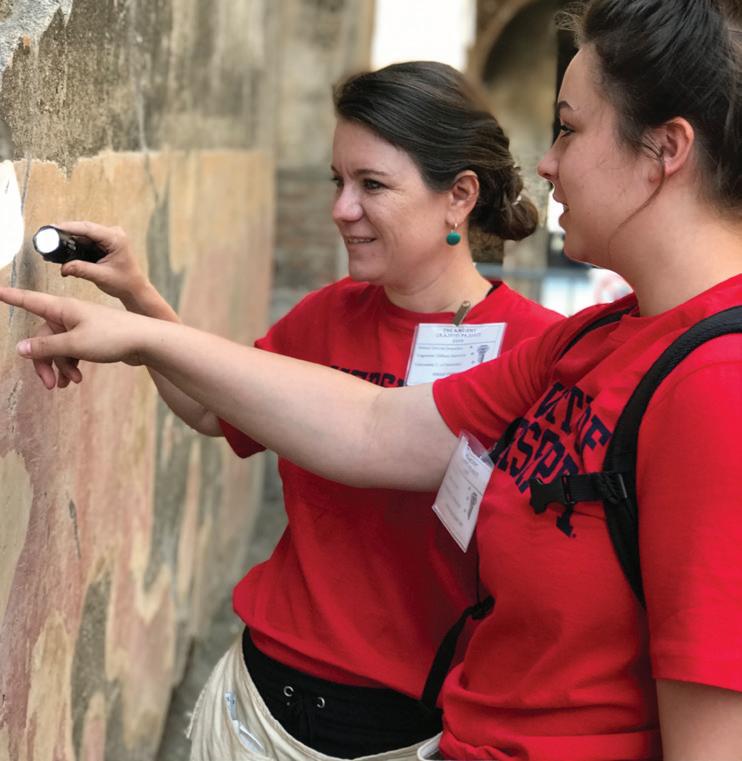
Ukraine was the subject of a panel discussion in late March with Susan Allen, associate professor of political science; Joshua First, Croft associate professor of history and international studies; Ben Jones, associate
professor of political science; and Laura Huber, assistant professor of political science. Students, faculty, and staff packed the room at the Croft Institute for a conversation about the conflict since Russia invaded Ukraine on February 24.

In a first for the university, six current or former students have been awarded prestigious Fulbright scholarships.

Established in 1946, the Fulbright US Student Program is the government’s flagship international educational exchange, designed to increase mutual understanding between the people of the United States and other countries. The highly selective program chooses university seniors and graduate students from the US to study, do research, or teach English around the globe.
This year’s recipients are Tyler Caple, Neely Griggs, Olivia Jaramillo, Kaitlyn Read, Charles Savage, and Ashleen Williams. Two recipients plan to teach English abroad, two are pursuing master’s degrees, and two aim to conduct research toward their doctoral dissertations.
Recent graduates and honors students Jaramillo and Read are set to teach English abroad by assisting local English teachers and serving as cultural ambassadors. Jaramillo, from Murfreesboro, Tennessee, earned a double major in international studies and Spanish and plans to spend the year teaching in Colombia. Read, from Mobile, Alabama, is also a graduate with an international studies degree and is headed to South Korea.
Caple and Griggs were awarded Fulbright Study Scholarships that fund a master’s degree abroad. A native of Huntsville, Alabama, Caple was a Boren Scholar and is a 2020 graduate with degrees in Chinese and international studies. She was also a member of the university’s Chinese Language Flagship Program. The sole recipient of the Fulbright International Master’s Program in International Studies at National Chengchi University in Taiwan, Caple plans to continue her undergraduate research into social movements in authoritarian countries, specifically China.
Griggs, from West Point, is a 2021 graduate with degrees in German and public policy leadership. Over the past year, she was an AmeriCorps VISTA at Wingate University in North Carolina, creating solutions to food insecurity and building infrastructure within the local food systems. She will be the inaugural recipient of a Fulbright Award dedicated to food security at the University of Reading in England.
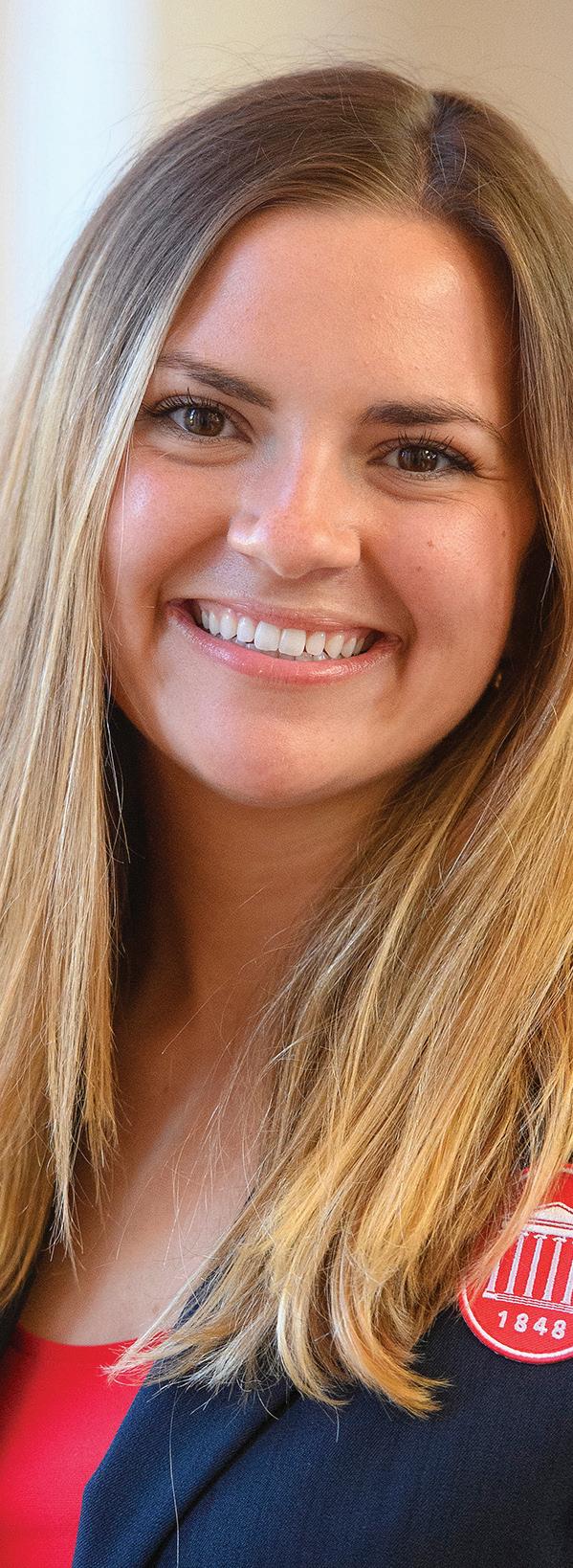
Savage and Williams, both doctoral students in the history department, were awarded Fulbright Research Awards.

As a Fulbright researcher, Savage will spend the year in Brazil conducting research on economic policy between 1970 and 2000 at the National Archives in Brasilia and Rio de Janeiro. He will be affiliated with the Programa de PósGradução em História Social at the Universidade Federal do Rio de Janeiro.

Williams was awarded her research Fulbright for study in Kuwait but declined the award for personal reasons. Her research examines nationalism and ideas of citizenship in Kuwait and Bahrain during the 1920s and 1930s.
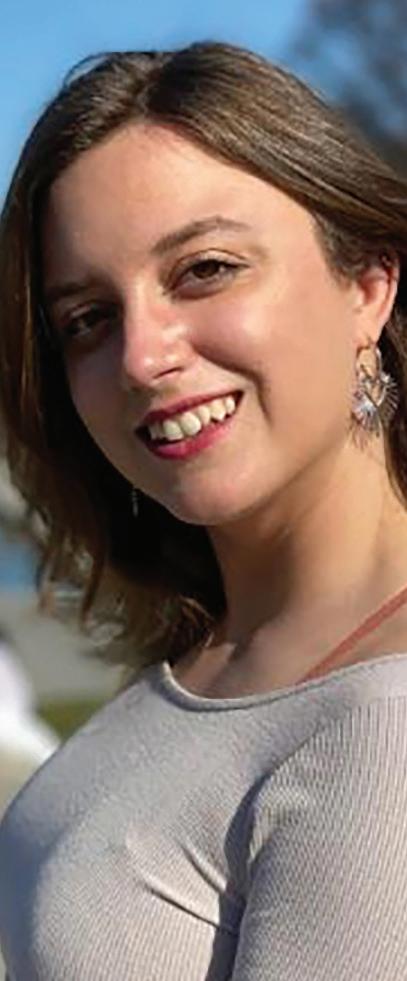

“It really has been a year of firsts,” said Vivian Ibrahim, director of UM’s Office of National Scholarship Advisement. “Our students have broken the university record for Goldwater, Truman and now Fulbright awards.
“We have never had this many UM students apply to competitive global and national scholarships. The process is extremely tough; students write, reflect and work hard on their applications. I applaud every single student who dedicated their time and effort to complete an application this year.”
Stephen Fafulas, associate professor of modern languages; Kristin Hickman, Croft assistant professor of anthropology and international studies; and Corina Petrescu, professor of modern languages, will conduct research abroad during the 2022–2023 academic year through the Fulbright program.
Recipients are selected for academic and professional achievement, record of service, and demonstrated leadership in their respective fields.
With a Fulbright Award in theoretical and applied linguistics at Universidad de Murcia, Fafulas’ project, “Studying Second Dialect Acquisition and Forms of Address among Ecuadorians Living in Murcia, Spain,” sets out to document processes of cultural and linguistic change. This research is significant for understanding Latin American immigrant groups in Spain and adds to the fields of sociolinguistics and language contact.
“Dr. Fafulas is a leading researcher in varieties of Spanish in both the Amazon and the US South, and his work furthers cross-culture understanding across local, regional, and national communities,” said Daniel O’Sullivan, chair of modern languages and professor of French. “He now turns his attention to Europe.”
Fafulas trains students to observe linguistic phenomena through interdisciplinary perspectives, mentors them in community-engaged research on Spanish in the US South, and has helped develop dual-language immersion programs in K-5 schools.
Hickman will conduct research in Morocco for her project, “Brothers and Others: Representations of Black Migrants in the Moroccan National Imagination.”
“Dr. Hickman’s project is on the cutting edge,” said Jeff
Jackson, chair of sociology and anthropology and professor of sociology. “It brings together her robust skills in both the humanities and the social sciences to examine how Black migrants have shaped (and been shaped by) the broader processes of Moroccan national identity formation.
“Understanding migration today is a robust and growing academic field, and questions of how migration is related to racial formation and the construction of national identity are so important.”
Hickman researches the relationship between language, politics, and cultural production in contemporary urban Morocco. She has also studied in Egypt, Oman, and France. In 2021, she received National Endowment for the Humanities funding for research in France for her Brothers and Others project.
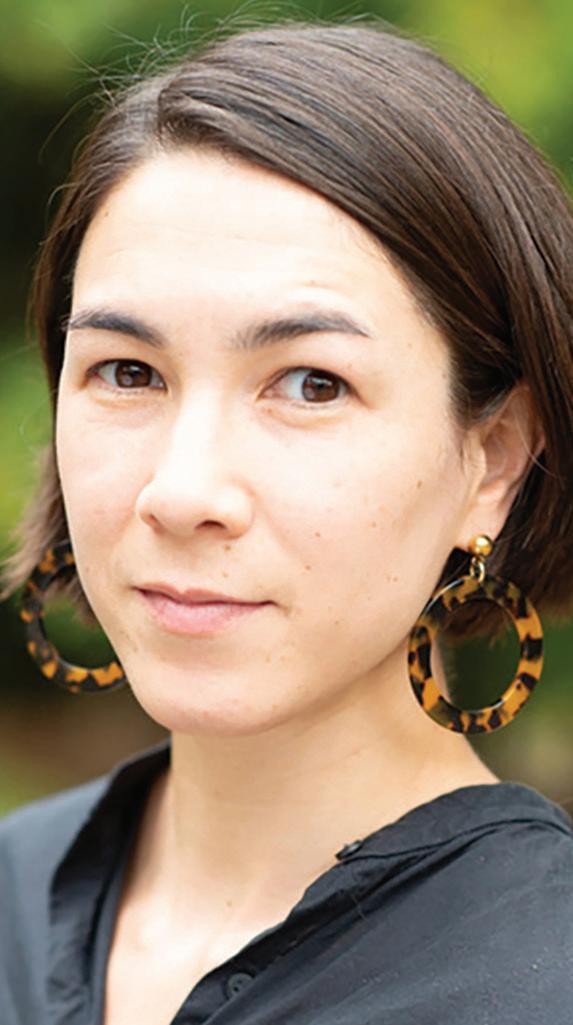
Petrescu is using the Fulbright as a guest researcher at the Center for the Study of Jewish History in Bucharest, Romania, and then will be affiliated with the Goldrich Institute for Yiddish Studies at the University of Tel Aviv in Israel.

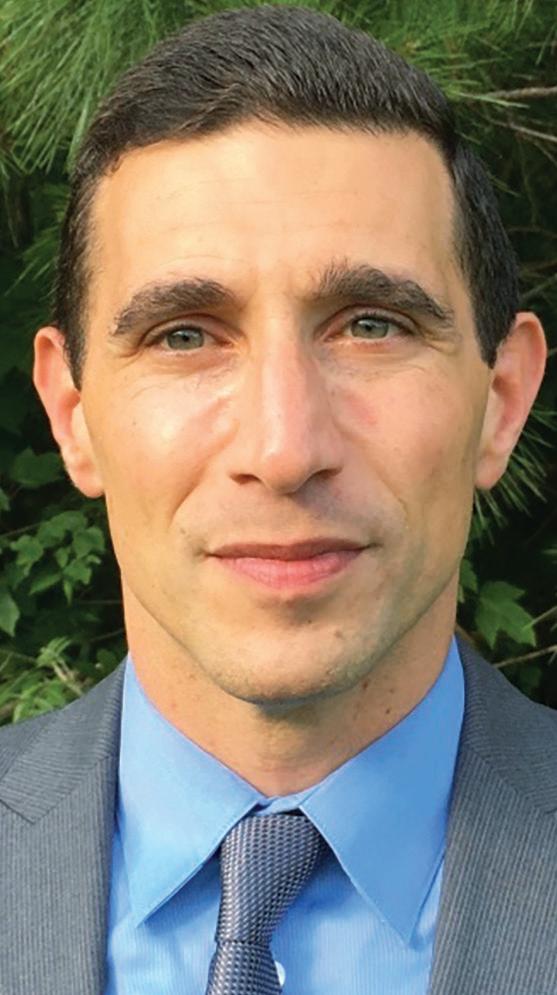
“Professor Petrescu’s work on the recovery of Jewish culture in Romania provides a model for future scholars who intend to work on similarly transcultural projects,” O’Sullivan said. “The methodological issues relating to language, linguistics, medium, and culture are complex, to put it mildly.”
Petrescu’s research interests include National Socialist Germany, representations of 1968 in the German and Romanian imagery, transcultural literature, German-Jewish relations from the 18th century to the present, and Eastern European Yiddish theater. In 2016, she received a prestigious Alexander von Humboldt Fellowship for 18 months of research in Germany.
Second Lieutenant Bryana Terrell, a 2021 Air Force ROTC commissionee, recently completed her Nuclear and Missile Operations initial skills training at Vandenberg Space Force Base, California, where she received Top Graduate honors. She was first in her class of 30 lieutenants, achieved a 95% average over nine written tests, and received the highest possible rating on intercontinental ballistic missile operations simulator evaluation. This intensive and highly technical training course runs 96 days and is the sole source of all intercontinental ballistic missile alert officers in the US military.
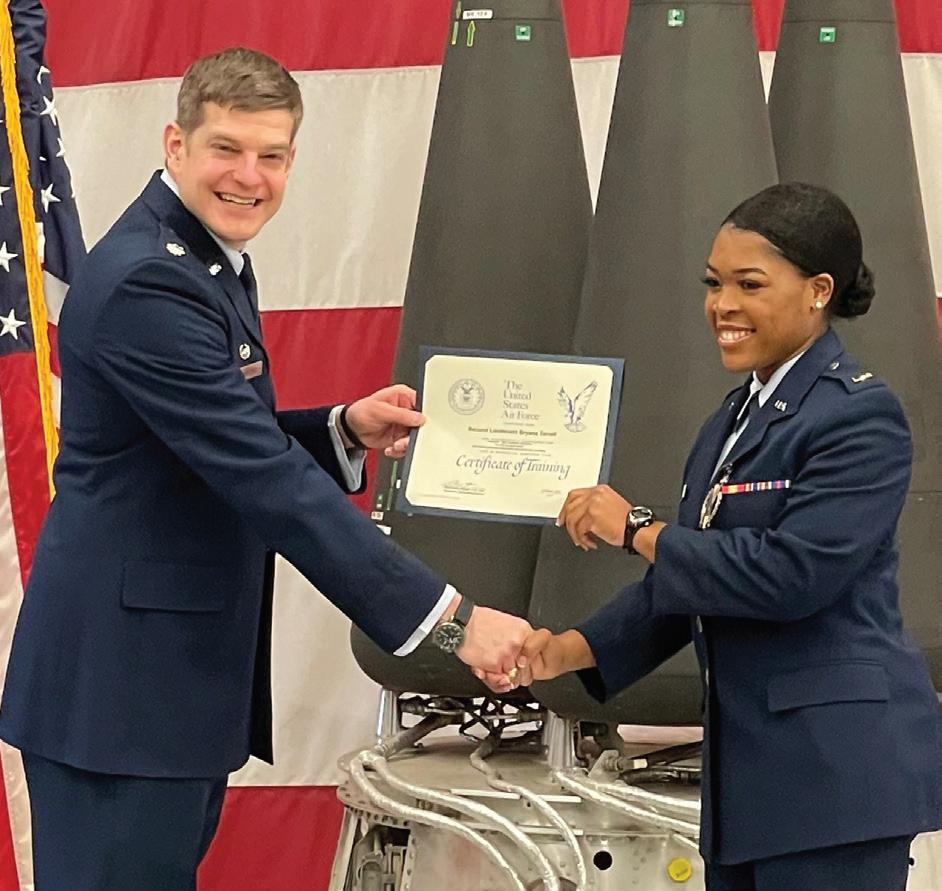
Bradford Cobb (BA English 96), a celebrated music industry executive, delivered UM's 2022 commencement address.
A partner at Direct Management Group in Los Angeles, Cobb has managed some of the US's most beloved popular music artists, including Katy Perry, the Go-Go’s, Adam Lambert, Tracy Chapman, Au/Ra, k d lang, Steve Perry, and the B-52s during his 25 years in the business.
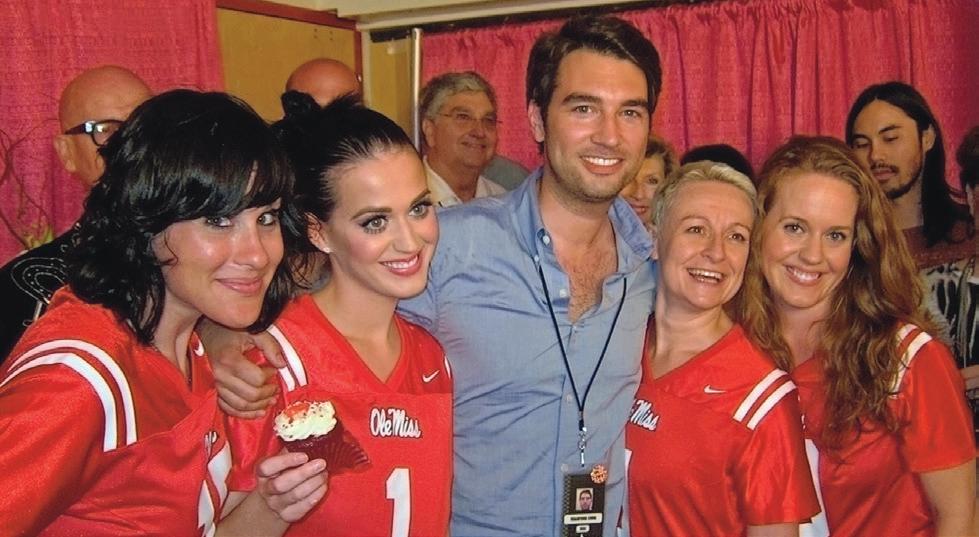
Alyssa Langlois, a French and international studies major (middle); Joshua Mannery, a recent English and political science graduate (right); and Nathan Lancaster, a recent civil engineering graduate; competed for academic scholarships on NBC’s Capital One College Bowl quiz show hosted by Peyton Manning. After advancing to the quarter finals, they were defeated by Auburn.

UM is among nine universities nationally awarded funding from the Acceleration Fund, which supports climate action activities by educational institutions. UM's $10,000 award is strengthening cooperative programs in northeast Mississippi. Through the Grisham–McLean Institute for Public Service and Community Engagement’s M Partner initiative, the money is funding projects with the M B Mayfield Museum in Ecru and the Pontotoc Farmers Market. In Ecru, the funds pay for a sustainable landscaping plan at the museum featuring native plants that Mayfield, a Black folk artist, used to mix his own paints. Several UM departments are working to prepare exhibitions and establish the museum focusing on Mayfield, who attended art classes from a broom closet at UM during the 1950s. In Pontotoc, funds created a summer internship at the market for a UM student to conduct outreach to the Spanish-speaking community, promote the use of SNAP benefits and matching incentives to purchase local produce, and study risks to the regional food system.
Read the story.
The CLA “Inclusion, Diversity, Equity Advancing through Scholarship” (IDEAS) Forum fosters discussion of innovative research topics impacting today’s communities. The 2021-22 panels featured:
• the Mississippi Delta Chinese
• a class project utilizing oral histories from the LGBTQ community to create a theatrical performance
• a memoir focused on race and gender inequity and their links to white entitlement
• the importance of equity-minded initiatives for African American students in STEM
For more information and recordings.

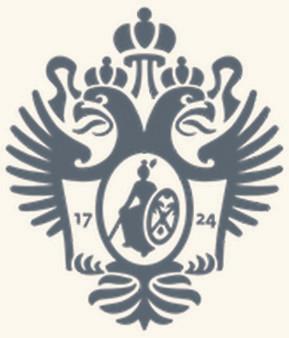
Sophia Toner, an international studies major taking advanced Russian courses, won the St. Petersburg Olympiad of Russian as a Foreign Language, organized by St. Petersburg State University for students from US universities.
Alumnus Ben Napier (BA history 07), a woodworker and costar of HGTV’s Home Town hit series with his wife Erin (BFA art 07), built a desk of oak and cedar from Rowan Oak—the home and wooded property of prize-winning author William Faulkner (1897–1962)—as a gift for UM.

“William Faulkner is an iconic Mississippi author, and we are honored to have Ben Napier’s beautifully crafted desk,” said Caroline Wigginton, chair and associate professor of English. “Its presence in the department represents our community’s literary heritage and also our creative writers’ talent for adapting the materials of the past to imagine a vivid and sustainable future.”
Sisters Camille Walker McCallum (BA public policy leadership 16), Kendall Walker (BA communications sciences 20), and Chloe Walker have opened Tupelo’s first interactive photo studio. Featuring 20+ “Instagram worthy” sets, the business attracts a social media-savvy crowd to its location in the Mall at Barnes Crossing.
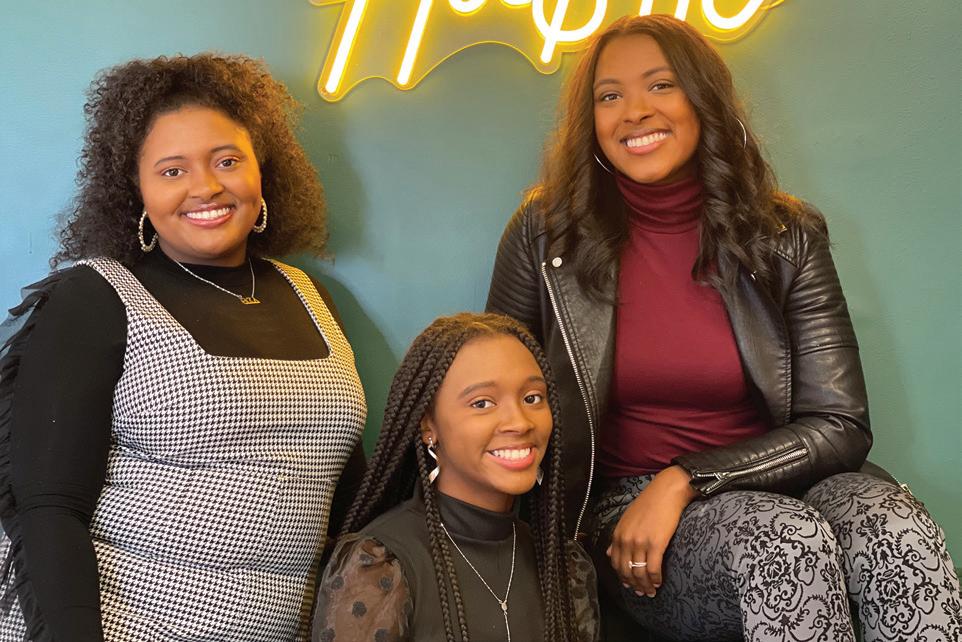
UM’s Catalyzing Entrepreneurship and Economic Development Initiative in the Grisham–McLean Institute for Public Service and Community Engagement connected the sisters with summer internships that trained them for the work they do now. McCallum interned with the Mississippi Development Authority, assisting business advisers with research, pitch decks, and financial projections for their clients. This experience helped her write Love Your Selfie’s business plan and secure funding.
“CEED showed me the path to entrepreneurship. After being involved in the program, owning my own business felt like an attainable goal rather than just a dream,” McCallum said.
Four physics majors are working with a professor and an international team of scientists to search for new particles and interactions that may help solve big questions about the universe. Along the way, they’re getting a head start on their own research careers.
UM hosted dozens of the world’s top particle physicists to discuss their research and future projects. Researchers, postdoctoral associates, and students from universities and institutions around the globe met—virtually and in-person.
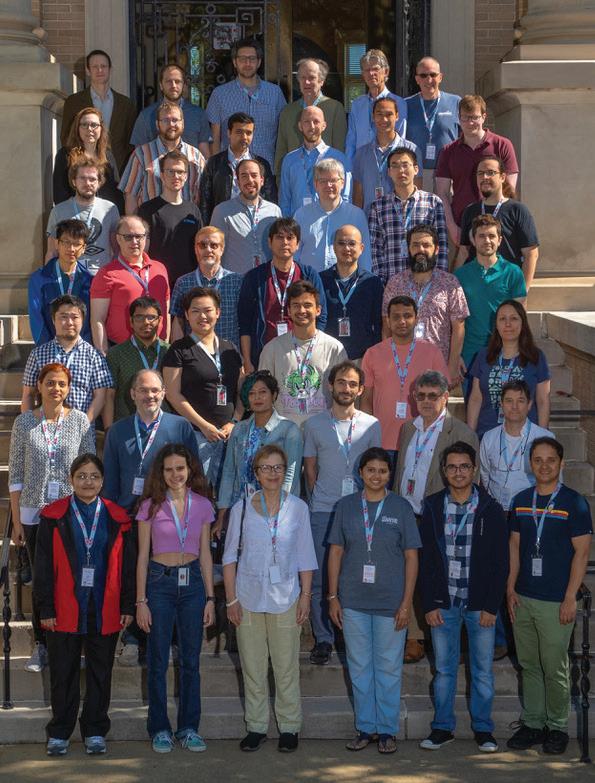
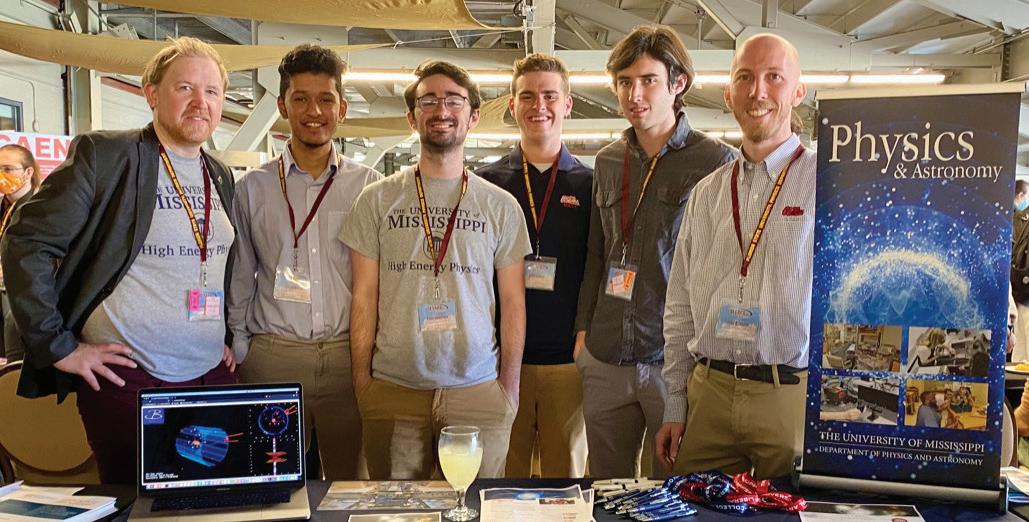
“FPCP is one of a handful of international conferences at which scientists from around the world meet to discuss new and compelling topics in the field,” said Jake Bennett, assistant professor of physics and astronomy and chair of the event’s organizing committee. “Among the topics were a number of experimental anomalies—differences between theoretical predictions and experimental measurements— that have stimulated a great deal of discussion in recent years.
“We also had public events with a particle physics masterclass and a QuarkNet workshop intended to let science enthusiasts in the area—and especially high school teachers—learn a bit about particle physics.”
The undergraduate students—Paul Gebeline, Sakul Mahat, Matthew Mestayer, and Wil Stacy—are conducting research with Jake Bennett, an experimental elementary particle physicist and assistant professor of physics and astronomy. Bennett collaborates with 1,000+ physicists and engineers from 26 countries on the Belle II experiment, a groundbreaking project at the SuperKEKB electron-positron accelerator in Tsukuba, Japan.
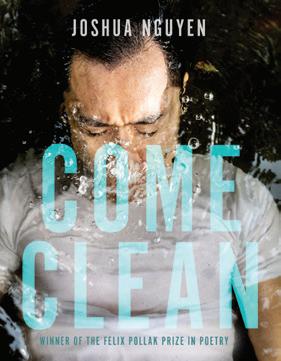
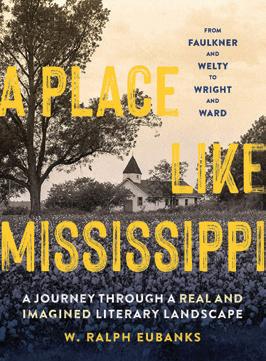
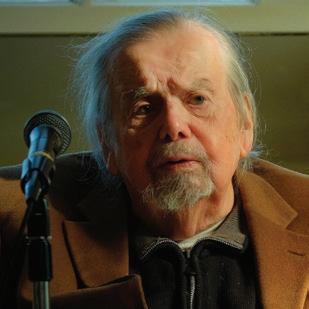
Joseph Bishop, a mathematics major, was awarded a Waldemar J. Trjitzinsky Scholarship from the American Mathematical Society—the first for UM. Since 1991, promising math students have received Trjitzinsky Awards to ensure that financial hardship does not stand in the way of completing their degree programs.
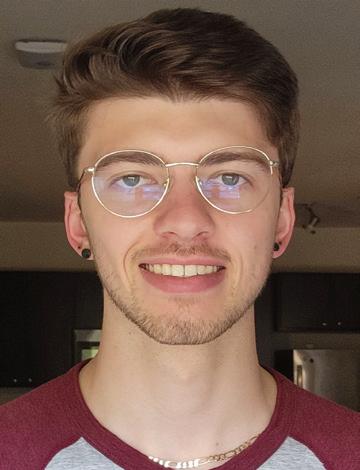
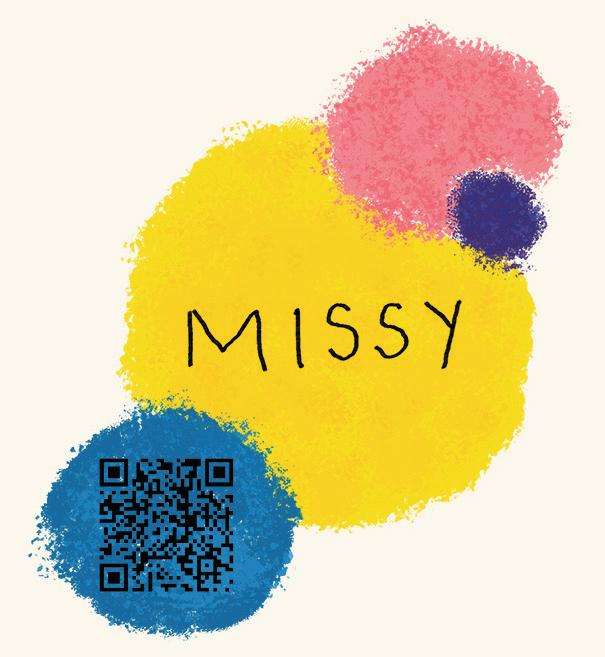
Nave Graham, instructor in music (left), and Parker Peterson (BA music education 22) performed at UM’s LGBTQ+ Lounge for the launch of Missy: LGBTQ+ Literary Magazine. The university’s latest student-led publication showcases art and poetry by current and former students who identify as part of the LGBTQ+ community or as allies to that community. The Department of Writing and Rhetoric, Sarah Isom Center for Women and Gender Studies, and Division of Diversity and Community Engagement sponsor Missy
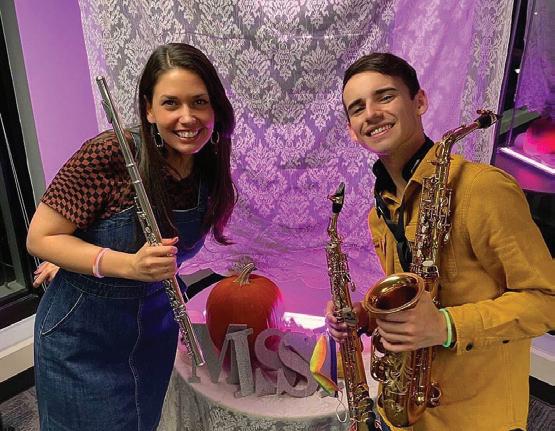
Based on her accomplishments studying gravitational wave physics, Lorena Magaña Zertuche was selected for a NASA/ Mississippi Space Grant Consortium Graduate Research Fellowship. The PhD student’s focus is on the merging of two black holes and modeling the aftermath of the merger. She hopes to spark curiosity in people who may be underrepresented in space research for the K-12 outreach component of her fellowship. For example, the American Institute of Physics noted that in 2019 only 19% of US PhDs in physics were awarded to women. “Maybe I can be a role model. It’s important that students see someone like them doing science.”
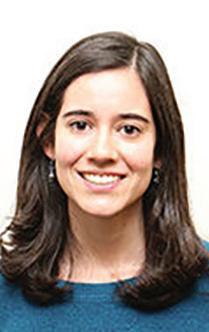
With the support of Tuohy Community Service Internship Scholarships in the Department of Philosophy and Religion, two students engaged in summer learning about needed reforms within the US elder care system. Ella Lawson, an Arabic and international studies double major, worked in the national office of the Green House Project, a revolutionary new model for nursing home care whose first homes in the US were built by Methodist Senior Services in Tupelo. Edith-Marie Green, an international studies major, interned with the Elder Law Project of North Mississippi Rural Legal Services, offering legal services to seniors and their families and coordinating a virtual Elder Law Conference.
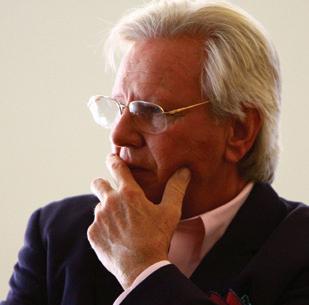
With 150+ attendees from all domestic and overseas Flagship programs, the annual meeting was held on campus. A national initiative to change the way students learn languages through a groundbreaking approach, the Language Flagship is a network of 31 programs at 23 US institutions of higher education. Its graduates take their place as global professionals, commanding a superior level of proficiency in one of 10 languages critical to US national security and economic competitiveness.
A new partnership with an overseas organization is helping UM students find summer business internships in Germany. The German American Exchange, a nonprofit based in the State of Georgia, matchs UM students with paid, three-month summer internships for professional experience in some of the world’s leading companies. The program is intended to give students the skills they need in an international job market by improving their ability to engage with cross-cultural challenges and improve their skills in the German language.
A$100,000 gift from an anonymous donor for the African American Studies Program created an endowed scholarship honoring a late civil rights leader.
Fannie Lou Hamer, a Delta native who cofounded the Mississippi Freedom Democratic Party, was instrumental in the fight for voting equality and women’s rights. “Ms. Hamer was vital to the progression of African Americans in Mississippi and nationally, and her work began at the grassroots level and the struggle for voting rights,” said Derrick Harriell, interim director of African American Studies and the Otillie Schillig Associate Professor of English, African American Studies, and Creative Writing. “Naming the scholarship after the Mississippi civil rights activist giant will provide our students with the incentive to work harder and reach for higher goals while honoring Hamer’s important legacy.”
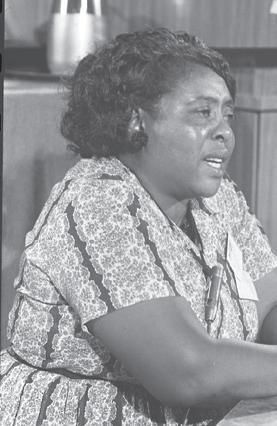
A renowned orator, Hamer spoke at the 1964 Democratic National Convention, giving a speech that resonated with the scholarship’s founder. “She worked hard for Mississippi and is a folk hero,” the donor said. “I hope she continues to be an inspiration to students and that this scholarship can provide the financial support to help them achieve their goals.”
The African American Studies Program seeks to develop and coordinate an interdisciplinary curriculum that focuses mainly on the African American experience in the US, especially in Mississippi and the South. It provides students with an interdisciplinary understanding of Black history, culture, politics, and society while preparing them for their professional careers in relevant areas. “We hope to grow our majors and our program and continue to be active on campus and in the surrounding community, in Mississippi, and across the nation,” Harriell said. “To do so requires dynamic faculty and, more importantly, dynamic students who are at the heart of what we hope to represent as a program. These scholarships will assist in this mission, and we are grateful for the support.”
Majestic Gay and Frederick Williams— inaugural recipients of the Donald Cole Catalyst for Change Scholarship—are expanding Cole’s legacy beyond his 50+ year relationship with UM as a student activist, a mathematics professor, and a campus leader.
A host of alumni, colleagues, former students, and family have contributed almost $50,000 to the scholarship endowment in his honor.
“I am happy to be one of the first Cole scholars,” said Gay, who is pursuing a double degree in African American Studies and journalism. “It means a lot to my family and me.”
For Gay, the scholarship connects with the work of her grandfather, Dr. Peter Stoner, who was a freedom rider during the civil rights movement in the 1960s. “He wanted to create a better America for all, and I want to build on his accomplishments and enhance his legacy in Mississippi.”
Williams is enrolled in the accelerated law program with the UM School of Law and the African American Studies program, which trims a year off the time it takes to earn both degrees independently.

“I thank Dr. Cole for paving a path for students like me,” Williams said. “His impact on our campus and on the lives of many has influenced my plan to work to create positive change at the university and beyond. After receiving my law degree, I hope to be a defense attorney so I can be a voice for those who often aren’t able to speak for themselves.
“Being awarded the Cole scholarship allows me to dream big and pursue my goals.”
The endowed scholarship—the first of its kind established to help African American Studies majors—recognizes students who exhibit leadership qualities, a spirit of service, and academic excellence.
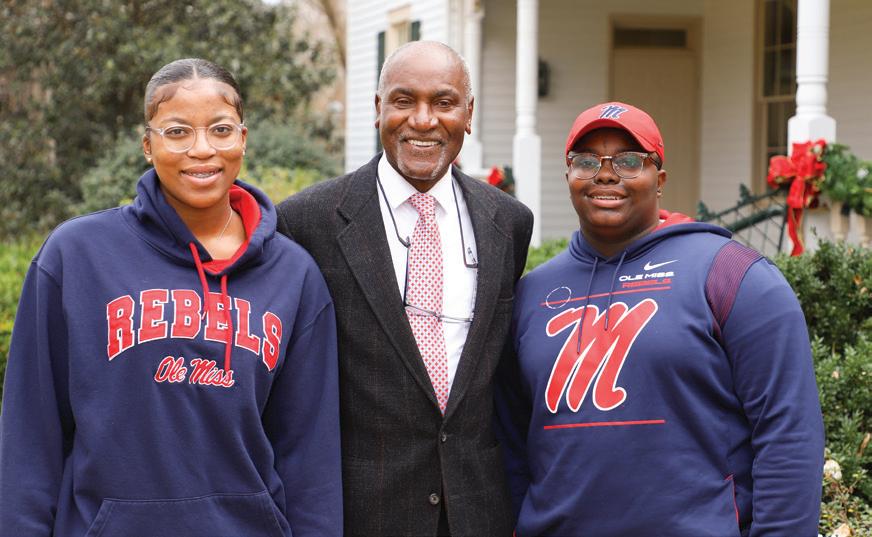
AChristmas present opened by Nannette Holcomb Comer (BA English 61, MA 67) of Fulton has the power to make dreams a reality for countless students.
The $50,000 gift from her daughter, Karen Comer Matthews of Memphis, established the Nannette Holcomb Comer English Scholarship Endowment to honor in perpetuity the life and legacy of her mother while providing income to support qualified graduate students who are residents of Mississippi or legacies of UM alumni.
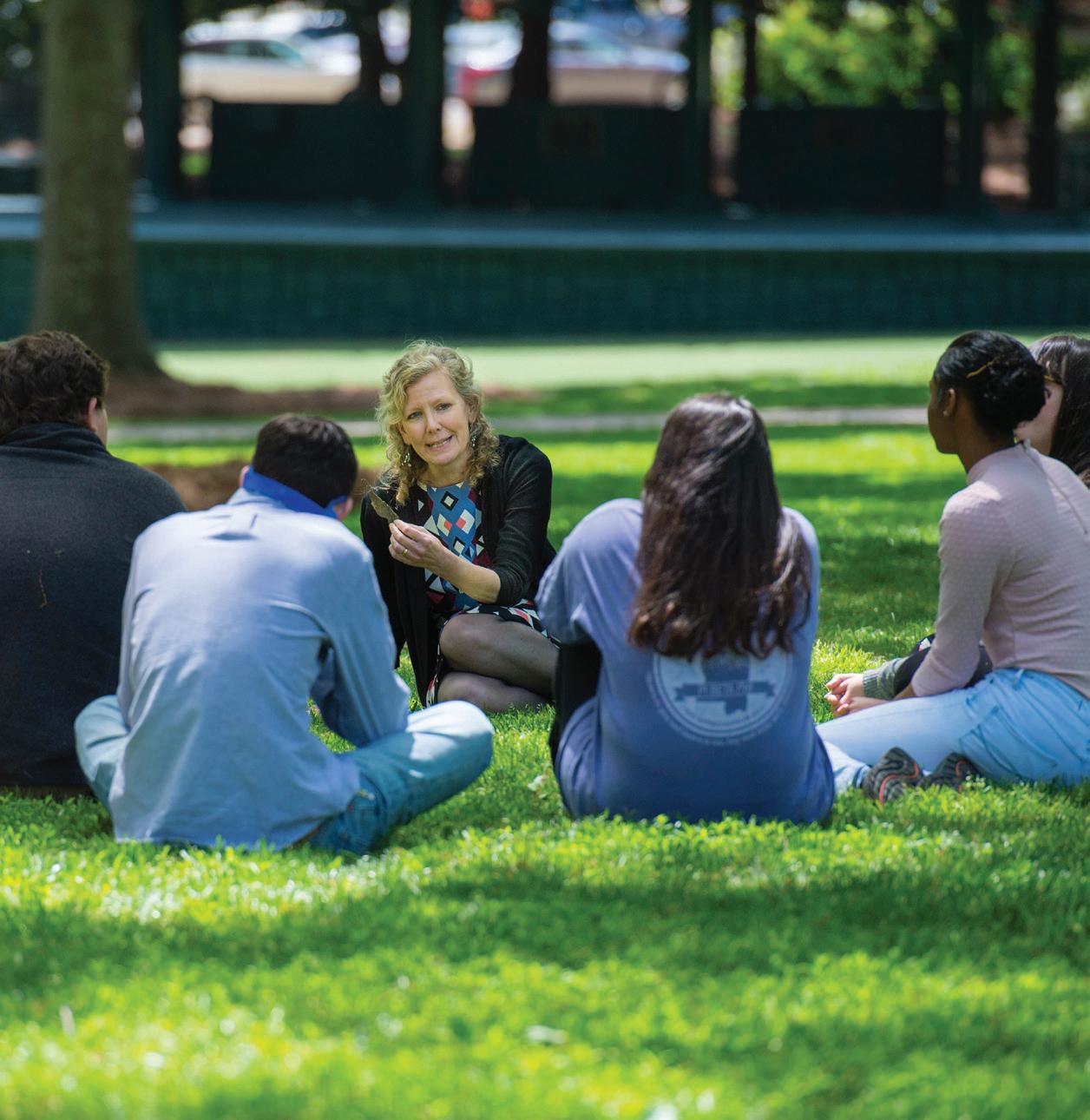
“Scholarships open a world of transformational educational opportunities to many of our students,” said Caroline Wigginton, chair and associate professsor of English. “This generous support enables the Department of English to be more competitive in recruiting our most highly ranked graduate applicants who might choose to go to another university that offers higher stipends.”
Retired from teaching freshman composition and sophomore literature at Itawamba Community College, Comer was surprised and honored by her daughter’s gift. “It is a pleasure to help students who couldn’t have gone to graduate school otherwise, who couldn’t have furthered their education or earned a degree without some help,” she said.
Agift from an alumnus supports Spring Pride Camp and student programming in the LGBTQIA+ Lounge on the fourth floor of Lamar Hall. Through the Dr. Jesse L. White Jr. Fund for the Center for Inclusion and Cross-Cultural Engagement, Jesse White of Chapel Hill, North Carolina, hopes the transformation on the UM campus will continue by creating more opportunities and space for LGBTQIA+ community members.
“Being interested in issues of social justice, I am pleased to see the effort being made at Ole Miss to be more inclusive,” said White, a 1966 graduate with degrees in history and political science, who was executive director of the Southern Growth Policies Board, federal cochair of the Appalachian Regional Commission, University of North Carolina adjunct professor, and director of the Office of Economic and Business Development before his retirement in 2010.
“Such a place like the lounge or an event like Pride Camp would have been unthinkable when I was here as a student. I’m thrilled for the work being done, and I’m glad to support it.”
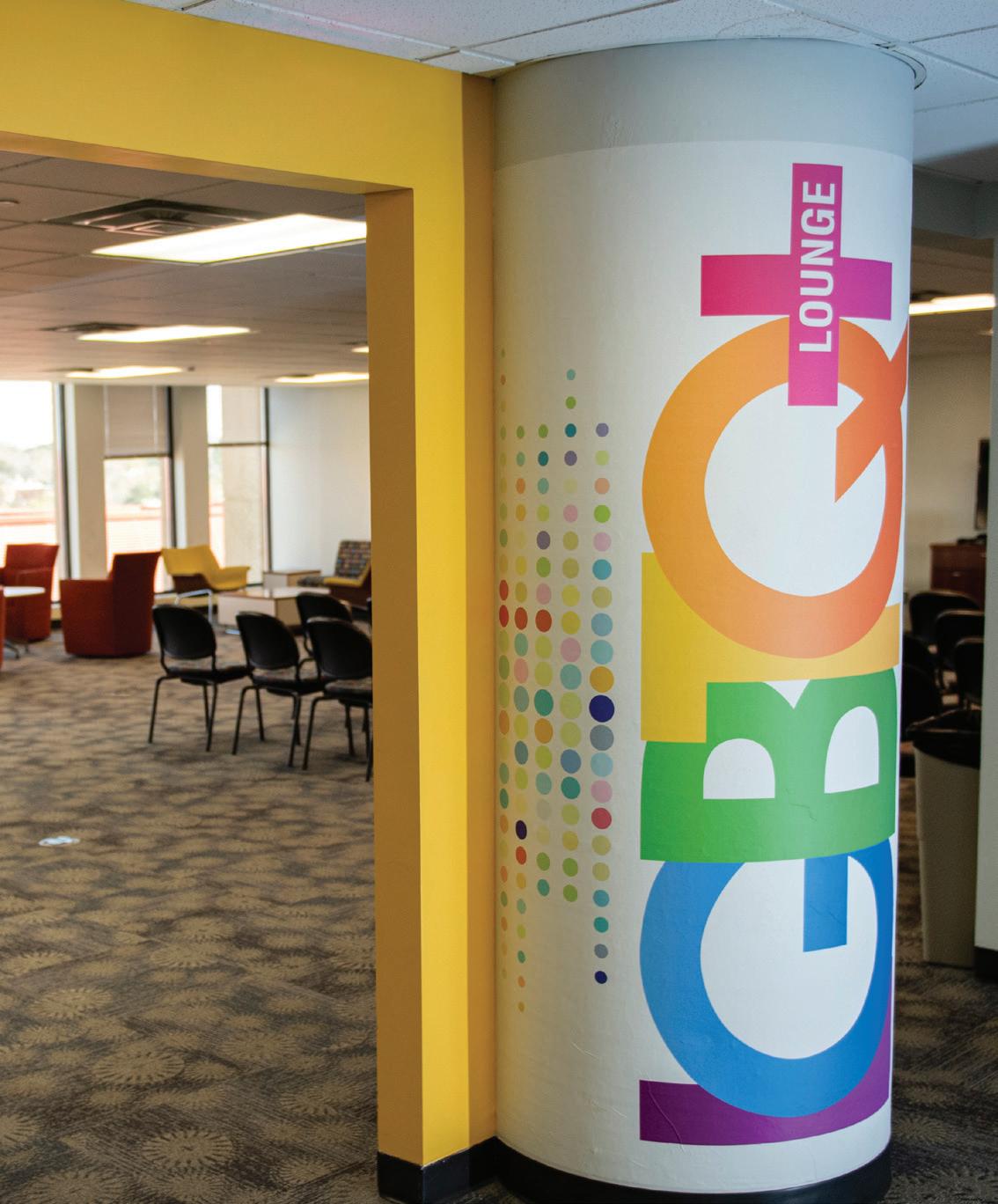
Bill and Melanie Roper’s $2 million gift establishes an endowment providing four-year scholarships in the amount of $10,000 annually to two entering freshmen each year.
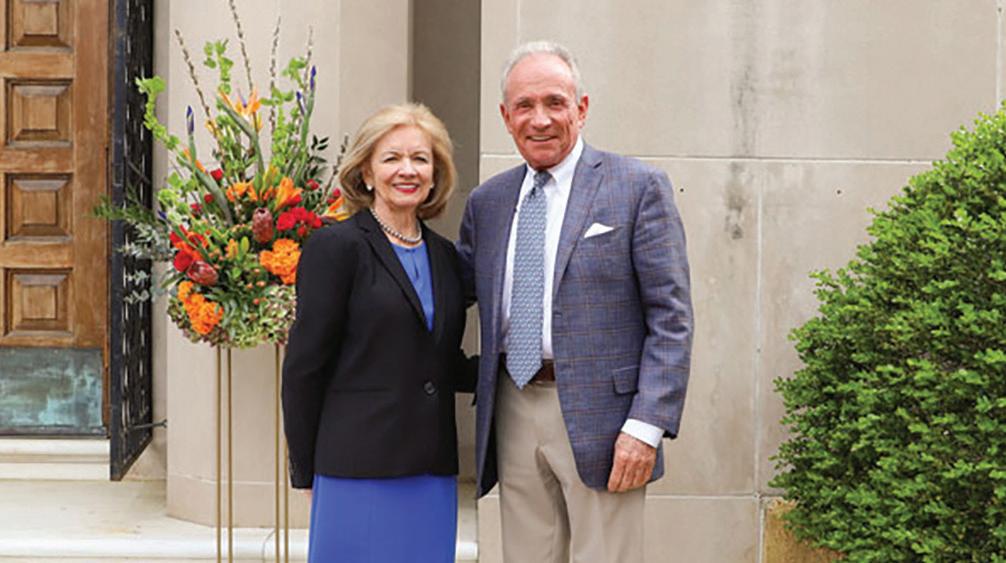
“Our vision is that by supporting students financially—and with the able assistance and guidance of the educators and staff at Ole Miss—we will help identify and proudly produce future leaders who will ultimately make our nation and the world a better place,” said Roper, a 1968 graduate with a degree in mathematics.
To be eligible for the Bill and Melanie Roper Scholarship, students must be enrolled in the Sally McDonnell Barksdale Honors College and majoring in business, science, technology, engineering, or math.
“Melanie and I would like to assist in producing more business and technology leaders for the future, and that starts with a STEM-related education. Those areas have served me well,” said Roper, president of Roper Capital Company, a private investment firm that provides growth capital and management services to help small-to-midsize businesses create value and improve owner liquidity.
Chancellor Glenn Boyce expressed gratitude for the Ropers’ gift. “Bill and Melanie have a great vision for the future with respect to technology and its role in society. Through their extraordinary generosity, they are taking steps to ensure that our students become integral leaders and, for that, we are very thankful.”
Roper Scholars must have a demonstrated record of academic excellence and leadership.
“My parents taught me that when you see something that needs to be done, jump in and take the lead,” Roper said. “So I was always the guy who volunteered for difficult assignments. And along the way, I discovered that one way to differentiate myself and be successful in business was to go above and beyond.
“Melanie and I hope these scholarships will indirectly help develop leaders out of bright students who want to impact their world, but maybe need a little extra boost.”
Roper attended UM with assistance from two scholarships and majored in math “because it provided logic and discipline, and honestly it was an easy subject for me.”
He credits college for providing “the socialization, maturation, and many things that I learned to be better prepared for a successful career and life. Education at all levels is a key ingredient in our society for future success—both personally and professionally.”
With a $55,000 gift, tax attorney Marc Rosen established the Marc Rosen Fund for Graduate Student Support at the Center for the Study of Southern Culture. In the spirit of Now & Ever: The Campaign for Ole Miss, the Los Angeles native increased his gift to $60,000.
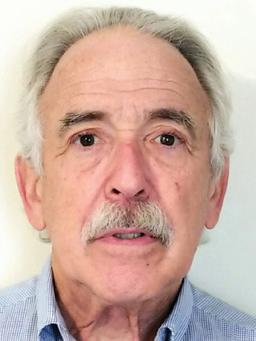
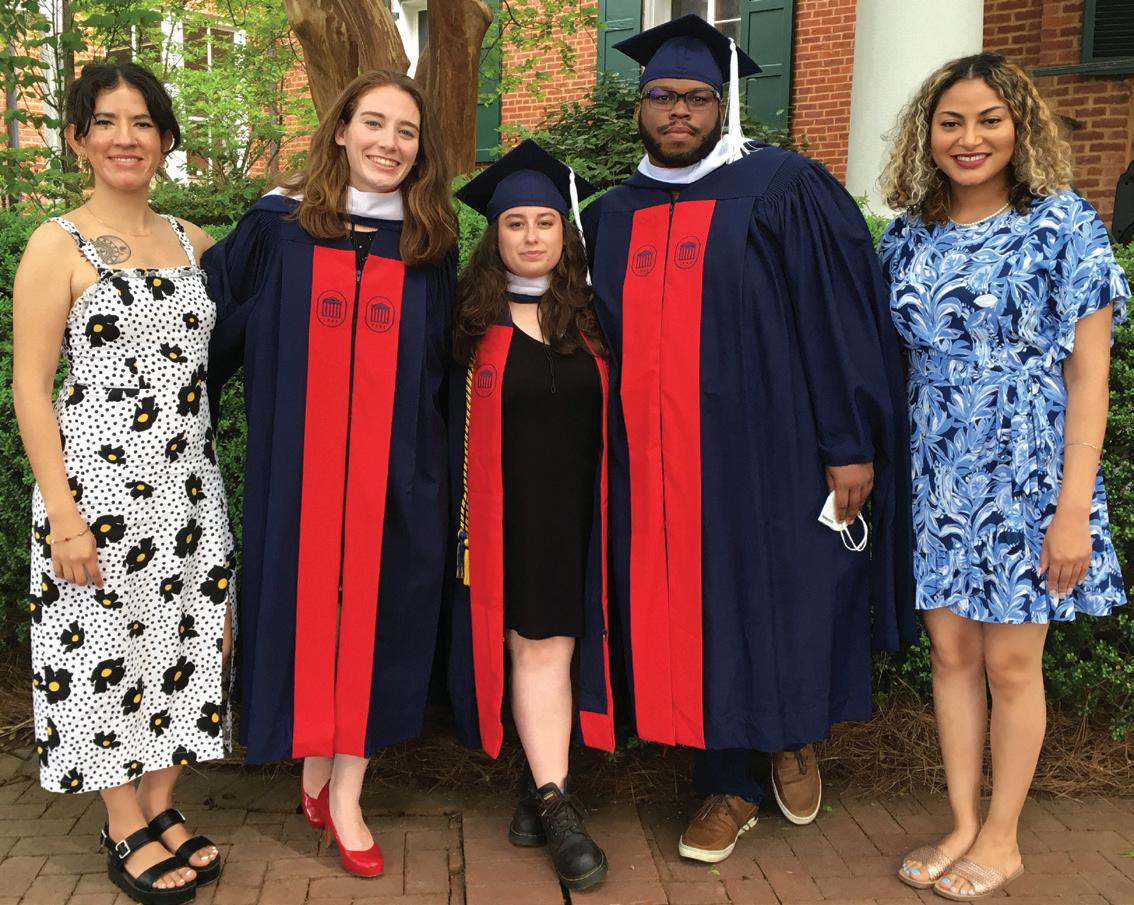
“I want to support the academics at the heart of the Center,” said Rosen, who gives annually. “I’m elated to assist graduate students in their work to acquire a degree or degrees from Ole Miss, and I hope to inspire others to join with me.”
Katie McKee, director of the Center for the Study of Southern Culture, McMullan Professor of Southern Studies, and professor of English, said the gift makes an immediate impact by allowing for the recruitment and retention of Southern Studies graduate students.
“We are grateful for Mr. Rosen’s gift, which we plan to use to create graduate assistantships. We’re seeing more students coming to us knowing that they want to stay for three years, rolling from their MA in Southern Studies to an MFA degree in Documentary Expression, and gifts like this one make a tremendous difference.
“It’s thrilling and rewarding when someone like Mr. Rosen, who had no previous connection to Southern Studies or the university, comes to our events, sees the interdisciplinary conversations we’re seeking to facilitate and the research we’re pursuing, and wants to support that.”
In the hands of a costume designer, reams of fabric can be used to transport a theater patron to another time or even another world.
A $1,000,000 gift establishing the Nancye Starnes Theatre and Film Fund celebrates those transformations and expands the educational experiences of students who work to dress the stage.

“The people who create costumes put audiences in the middle of what the theater is trying to project, and those costumers play an immense role,” said Starnes, of Daniel Island, South Carolina. “They set the tone and deserve to have the best possible environment in which to work and a space that is functional.”

Starnes’ gift supports renovating and moving the costume and craft shops from the basement of Barnard Hall to the South Oxford Campus and locating all costuming classes there. The new space, dedicated to both costume production and costume design students, expands the program’s production and storage area from 3,200 to 8,500 square feet, and gives dedicated spaces and equipment that the costume and craft studios need.
“This is a transformative gift,” said Carey Hanson, professor of costume design and head of the design and theater
production program. “It improves all the teaching spaces and the production space; it also allows for growth and expansion in what we offer students educationally. “In addition, these new spaces bring a higher level of professionalism to the experiences the students have in classes and working on productions.”
The Department of Theatre & Film offers costume design and costume technology courses that prepare students for professional job opportunities. Classes are focused on the details that set the stage for audience members, such as garment patterning and draping, period patterning, tailoring, millinery, costume crafts, and wig construction. Alumni from the costume/craft studio have gone on to work with Broadway, theater, television, Cirque du Soleil, American Ballet Theatre, Sante Fe Opera, and the Julliard School.
“As a transfer student, I came here looking for better opportunities in costuming,” said Aryana Gaines, a major in design and theater production.
“I am thankful to have a department so invested in my success, and gifts from generous donors such as Ms. Starnes create many opportunities for students.”
With a gift of $50,000, LeaAnne and Al Williams of Knoxville, Tennessee, established the Al L. Williams Scholarship Endowment in Economics to provide financial assistance to incoming freshmen majoring in economics. Recipients may retain the scholarship for up to eight semesters while in good academic standing.
Al Williams, president and CEO of the nation’s leading baked bean producer Bush Brothers & Company, earned a master’s degree in economics from UM in 1989.
“We’ve seen how Al’s economics education has been so beneficial to his career, so we hope our gift will help future generations of students have a similar experience,” said LeaAnne Williams, who earned her bachelor’s degree in accountancy in 1991 and started her own CPA firm, focusing on tax. “We plan to add to the endowment each year, and our goal is for the scholarship to provide students with financial means for a four-year degree.”
The couple, both of whom serve on the College of Liberal Arts Dean’s Advisory Board, met when Al Williams was a graduate assistant to economics professor Lewis Smith, under whom LeaAnne and her roommate took Economics 201.


University leaders, US Senator Roger Wicker, donors Jim and Thomas Duff, and others ceremonially broke ground October 29, 2021 on the largest single construction project in the history of the Oxford campus, leading the way for more students to pursue science, technology, engineering, and mathematics careers.
The Jim and Thomas Duff Center for Science and Technology Innovation is projected to be among the nation’s top student-centered learning environments for STEM education. With a focus on increasing job opportunities and boosting the economy, the Hattiesburg leaders and brothers have committed $26 million to the construction of the 202,000-square-foot building. Its $175 million total project cost includes roughly $135 million in construction expenses.
The Duff Center will be in the Science District, with one side facing the Grove and another facing VaughtHemingway Stadium.
Chancellor Glenn Boyce said the
project signals the university’s commitment to producing graduates well-prepared for fields flush with career opportunities and applauded the Duff family and the Gertrude C. Ford Foundation for their major support.
“There is a critical need to increase the number of graduates in STEM fields to support growth and innovation in our state, region, and nation. In the coming years, STEM job creation will outpace non-STEM jobs, and STEM professionals will earn higher salaries, yielding more attractive opportunities for our students in Mississippi and beyond.”
The additional space and technological advances offered by the Duff Center are crucial to serving the UM student enrollment, which is increasing. The university can expand STEM course offerings with the most current teaching technology available. Various STEM disciplines will be spread throughout the building to promote interdisciplinary teaching and learning.
The College of Liberal Arts dedicated
new faculty positions focused on inclusive pedagogy and STEM to enhance innovative teaching and learning.
Among other building highlights, students will enjoy technology-enabled active learning, traditional labs, and a 3D visualization lab. Several common areas will give students space to study individually and in small groups, and a STEM tutoring center will provide additional support.
The Gertrude C. Ford Foundation, of Jackson, committed $20 million to the facility and later pledged another $5 million for the gardens that will surround the building, including a commemorative area honoring renowned author William Faulkner.
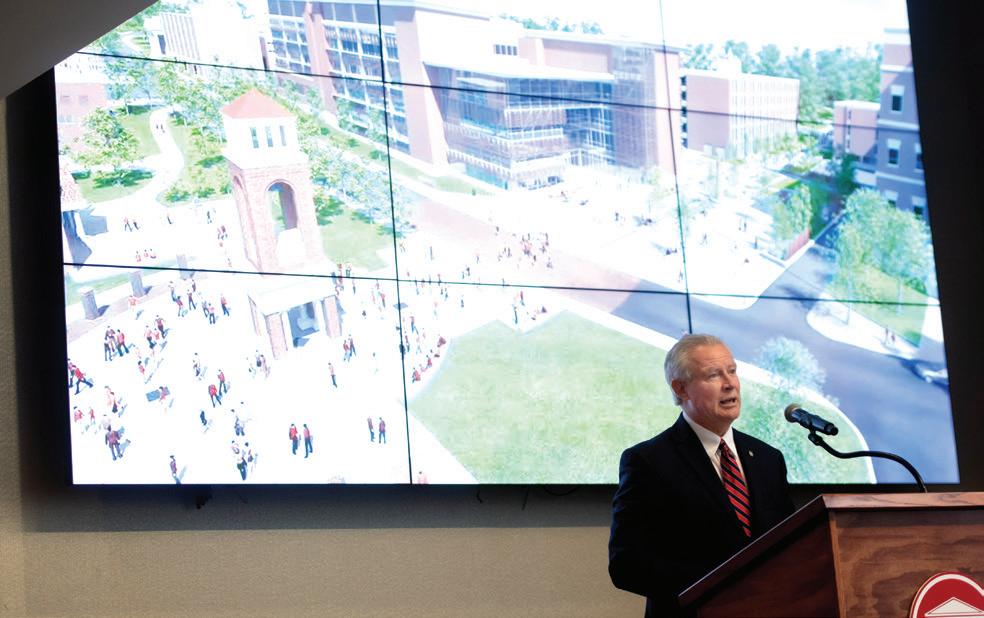
Seeking to expand and improve outdoor rehearsal conditions, the university has committed $3 million to build a bigger, better practice field for its award-winning Pride of the South Marching Band. UM’s commitment will pair with various gifts and major donations to the project from Helen Overstreet, Sumner and Risa Spralding, Cora Mitchell, Alex and Linda MacCormack, and the College of Liberal Arts.
“We’re thrilled to see this moment we have been working towards for years come to fruition for the Ole Miss band,” Chancellor Glenn Boyce said. “Our students deserve this investment in them.”
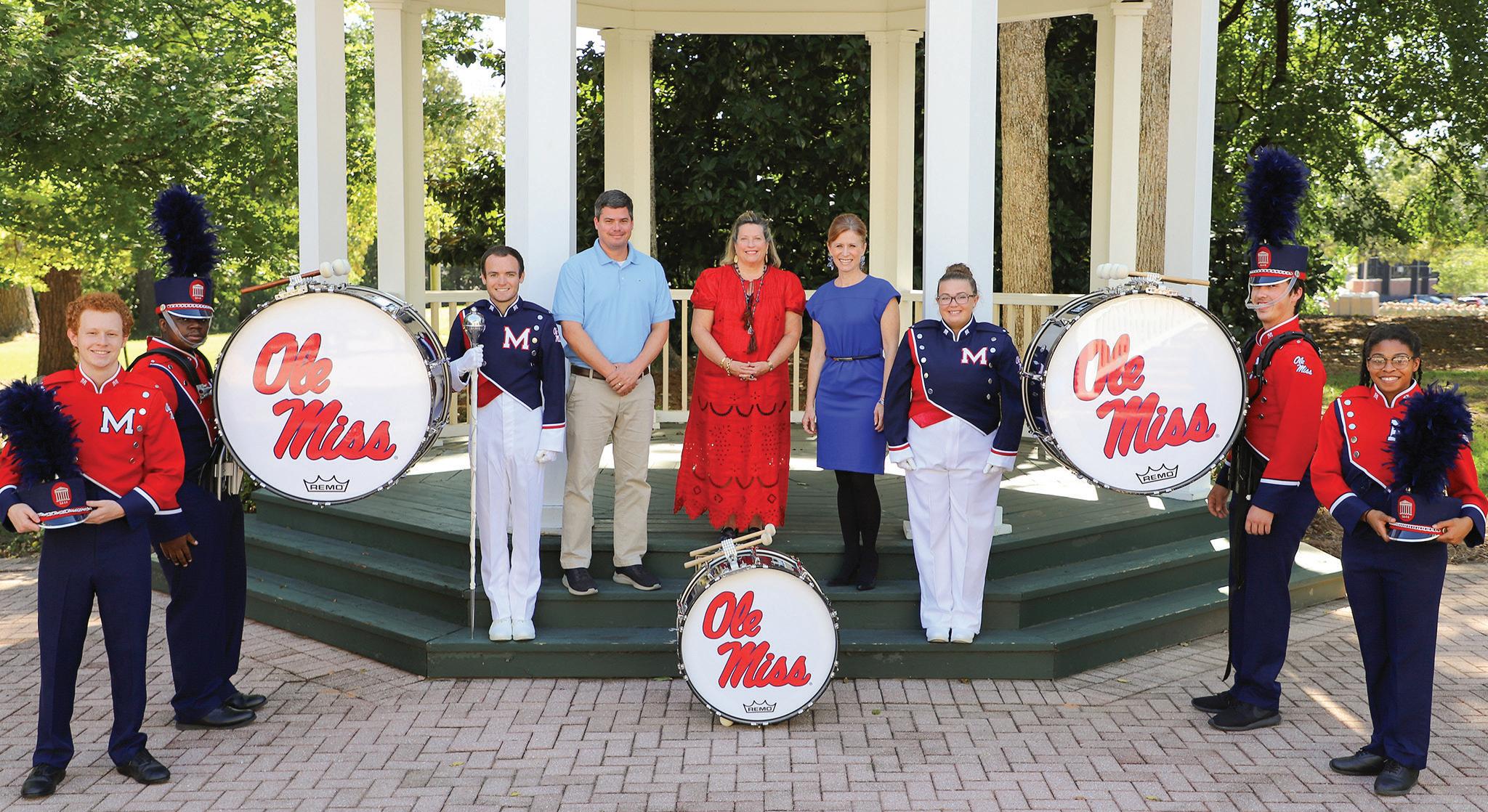
The artificial turf practice field will be a full football field in length, have proper drainage, lights, a new director’s tower, a storage building, observation area, and proper field access. Construction is slated to be completed by summer 2023.


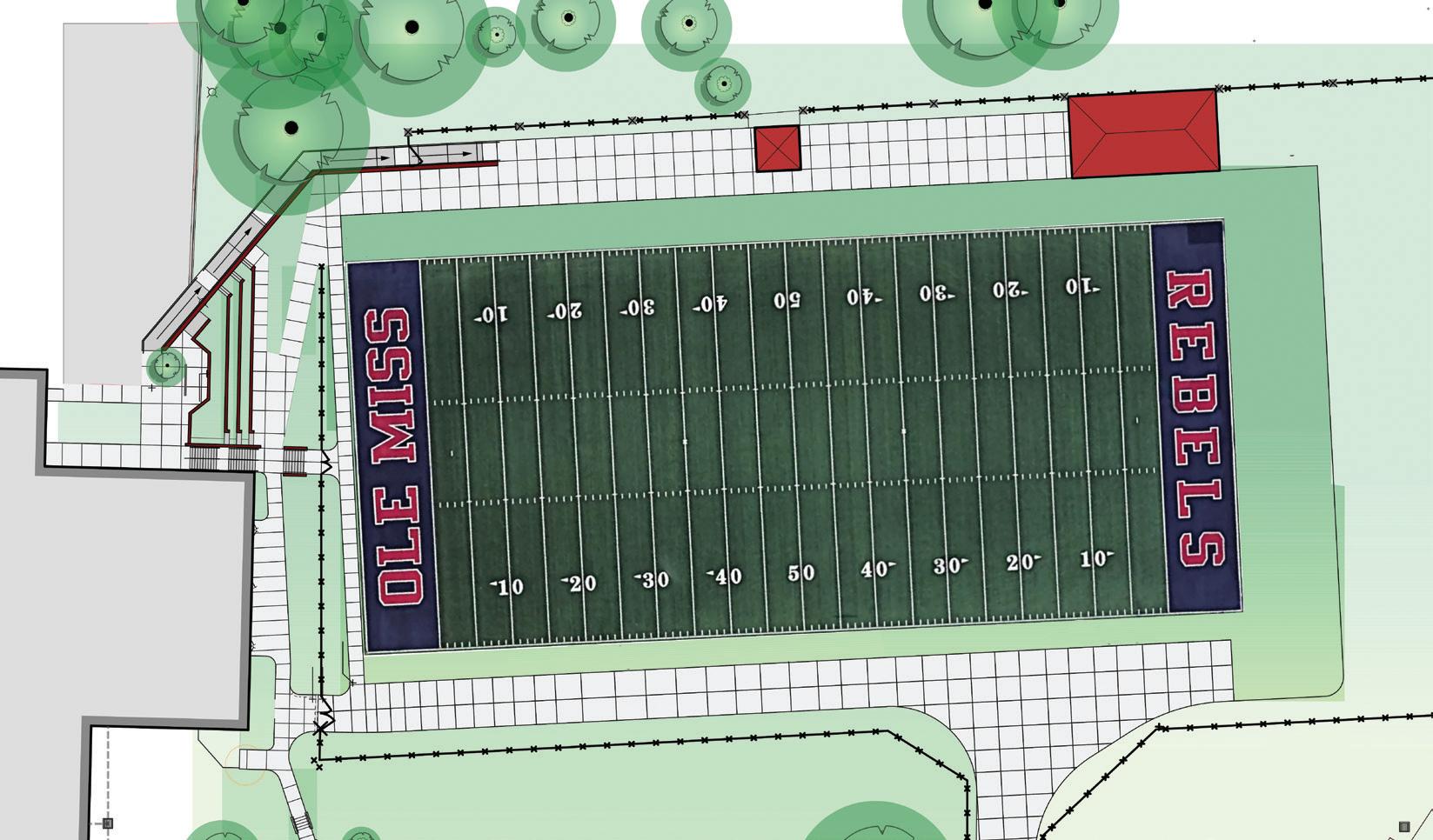
“The new practice field demonstrates our commitment and appreciation to the 300+ dedicated and talented band members who work hard every day to contribute to the university’s pride and passion,” Boyce said. “The new field will enhance the meaningful opportunities and experiences our students gain as members of the band. More broadly, this is an exciting development for the entire Ole Miss community as the Pride of the South is an essential part of our spirit, enthusiasm, and excellence.”
Music faculty, staff, and students are enthusiastic.

“The updated practice field will enhance band practices and performances in many ways,” band director Randy Dale said. “The students will work and learn in a safe and comfortable environment. The instructors will have everything they need to successfully train members, detect and correct problems, and facilitate efficient practices. Visitors and prospective band
members will see a beautiful facility that will entice them to return to Ole Miss, hopefully many of them as a member of the Pride of the South.”
Funding for the new practice field is just one example of how UM supports programs and people, said Nancy Maria Balach, chair and professor of music. “The field will be used by band students from across campus and will have great benefit to our growing department and established recruiting efforts. We thank UM’s administration for enabling the band and the Department of Music to achieve new heights.”
Lee Cohen, dean of liberal arts, said the College appreciates the efforts of all and is proud of the Department of Music’s growth. “The Pride of the South Marching Band is integral to the University of Mississippi experience. This dedicated ensemble enhances the academic, cultural, and athletic atmosphere for students, faculty, alumni, and the community.”
aughn Grisham, professor emeritus of sociology and founding director of the McLean Institute for Public Service and Community Engagement, taught 30,000+ students before retiring in 2016. Albert Nylander, institute director and professor of sociology, along with friends and colleagues have established the Vaughn and Sandy Grisham Scholarship and added his name to the institute. The Grisham-McLean Institute partners with Mississippi communities to fight poverty through education, innovation, and entrepreneurship and is home to these signature initiatives:
During the pilot phase of the M Partner initiative in Charleston, Lexington, and New Albany, 25 faculty and staff members engaged 400+ students in 35 courses and projects, 18 programs and special events, and 15 national service placements in the M Partner communities.
The project fights poverty through education. The NMVP places 25 VISTA members to serve at partner organizations for a year
Vof full-time service to build sustainable systems that connect UM to underserved communities throughout a 28-county area. These activities have generated $7+ million in economic activity for the region.
CEED provides scholarships to students with an entrepreneurship and community development framework to support collaboration on business and economic development goals. Students develop entrepreneurial skills to complement their academic interests by making meaningful contributions to Mississippi communities.
Bob Dorsey, a former UM professor of economics, and his wife, Carol, helped to establish the North Mississippi Literacy Project. The program trains pre-K through second-grade teachers in the Oxford and Lafayette County school districts in the multisensory structured language program, which is designed to teach all children—including students with learning differences—to read, write, and spell, building a strong foundation for literacy. Each year, the Institute provides opportunities to develop students into future leaders. These students join a network of hundreds of students, faculty, staff, and community partners.
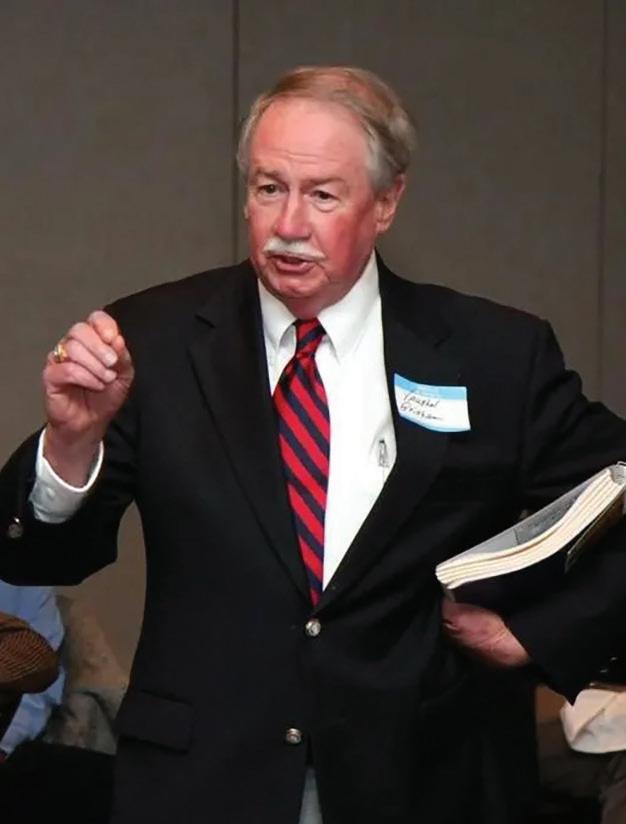
Becky and Al Moreton believed in service to others, and their work for the university stretched back decades. Al Moreton served as assistant US attorney for the northern district of Mississippi from 1962 to 1963 and 1969 to 2004. In his first months on the job, he prosecuted rioters trying to block the integration of the university by James Meredith.
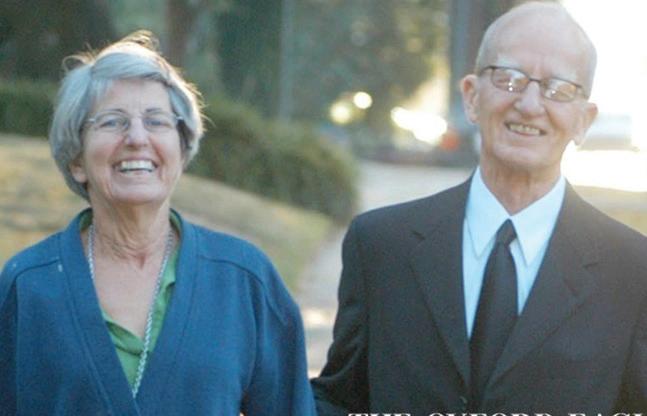
Becky earned a PhD in linguistics from Tulane University and worked as a linguist at the Center for Applied Linguistics in Washington, DC, in the 1960s. After returning to Oxford in the 1970s, she taught French and linguistics in the Department of Modern Languages. Outside of campus, she worked for the passage of the Equal Rights Amendment and helped plan a better Oxford as a member of the Pathways Commission.
To honor her memory and her deep love for education, the Moreton family has established the Rebecca “Becky” Moreton UM Linguistics Fund.
It will support the linguistics program, ensuring that their good works continue long after the Moretons’ deaths from a car accident in 2016.
“Becky Moreton was one of the finest linguistic minds I have ever had the pleasure of knowing, and it is a beautiful tribute to her and her husband, Al, that they are being honored in this way,” said Donald Dyer, associate dean of liberal arts and distinguished professor of modern languages. “The department and the university will forever be grateful for this fund in memory of Becky and Al.”
The university’s Grisham-McLean Institute for Public Service and Community Engagement, the Shelton School of Dallas, two Mississippi school districts, a former professor, and an alumnus have joined forces in the fight against illiteracy.
For three years, the Shelton School is conducting a pilot program designed to improve literacy in the Oxford and Lafayette County school districts. Shelton School is the largest school worldwide for students with learning differences and a resource and teacher training center dedicated to making a difference by serving and empowering students who learn differently.
A gift of almost $1 million from Bob Dorsey, a former economics professor at UM, and his wife, Carol, will support the North Mississippi Literacy Project, which was introduced to the schools by UM’s Grisham-McLean Institute.
“So many children fall behind before they get a good start in school because they have learning and developmental challenges and need a different approach,” Carol Dorsey said. “This program gives teachers the tools to engage
these students from the start so they can succeed.”
The Dorseys’ gift will be transformative, said Albert Nylander, director of the Grisham-McLean Institute. “This is a wonderful life-changing opportunity that the Dorseys are providing for young students. Over 2,000 students will be impacted by their commitment to entrust the Grisham-McLean Institute,
Having served as chair of both the Shelton School and Grisham-McLean Institute boards of directors, he recognized that Mississippi has limited options for illiterate children. And personally understanding that a student’s challenge can be due to processing, not intellect, Wiggins approached Joyce Pickering, Shelton’s executive director emerita, to gauge her interest in starting a literacy program in Mississippi using a proven curriculum she wrote.
“I said, ‘Yes, that’s exactly what our outreach department does,’” recalled Pickering, who works as director emerita in Shelton Outreach for teacher training.
the Shelton School, and our local school districts with these resources.”
Implementing a program to help Mississippi students who learn differently is the brainchild of alumnus Phillip Wiggins, founder and CEO of Stratford Land Co. in Dallas, whose three children attended the Shelton School to improve their reading skills. “About 30% of the populace learns differently,” Wiggins said. “They don’t learn in the way that they’re being taught in public schools.”
“We train teachers all over the world specifically in working with children who have learning differences, including dyslexia, ADHD, oral language disorders, math disorders, speech and language disorders—all of these kinds of processing problems.”
If all goes as expected, the North Mississippi Literacy Project will make life easier for children with learning differences.
“When teachers have something that works and helps them help children, they don’t give it up easily,” Pickering said.
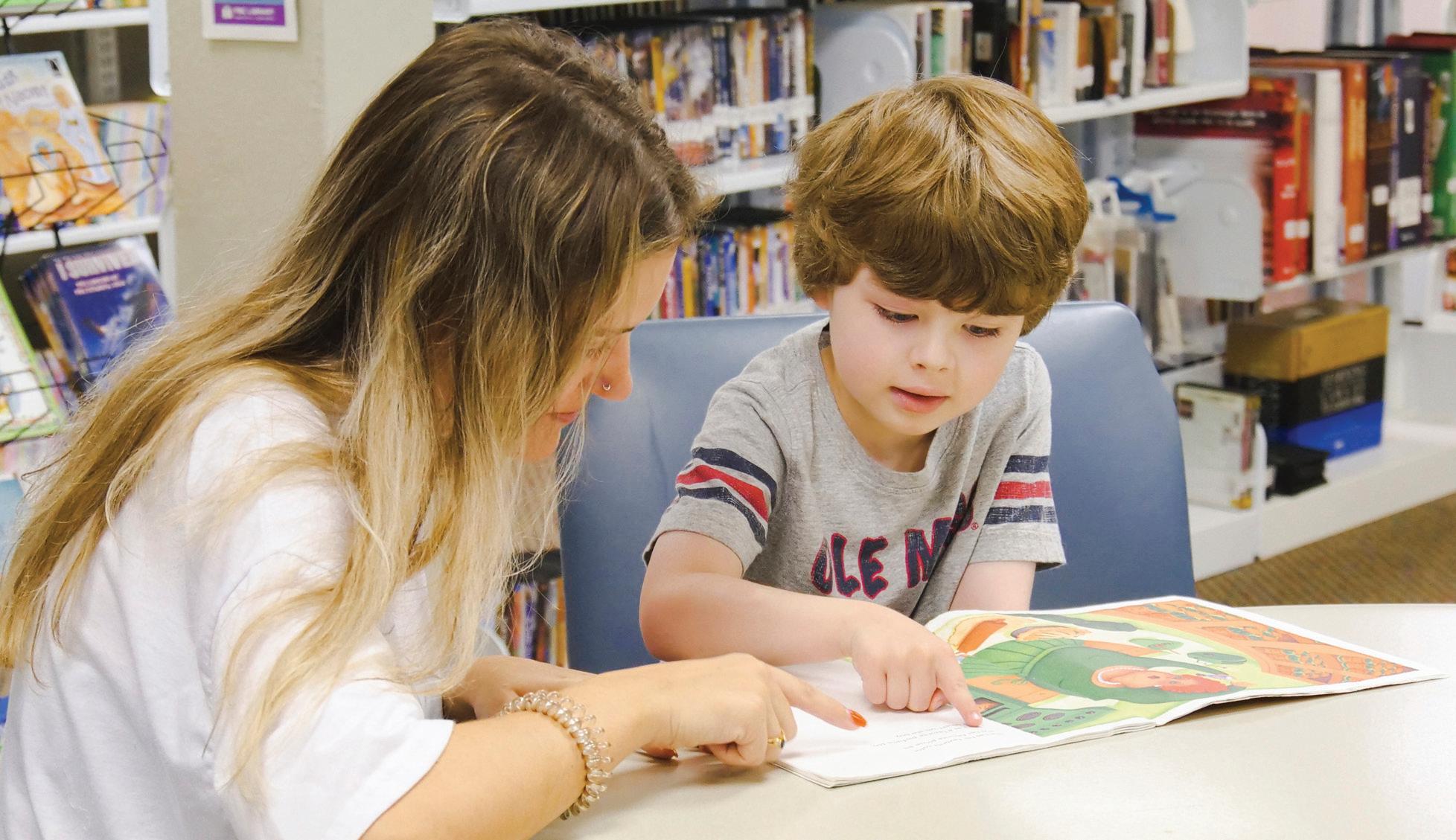
“
This is a wonderful life-changing opportunity that the Dorseys are providing for young students.”
—Albert Nylander director of the Grisham-McLean Institute
In her lifetime, the late Madeleine McMullan’s philanthropy and service improved countless lives. Now, the family’s foundation continues her legacy with recent gifts totaling $500,000 to the Foundations for Academic Success Track program.
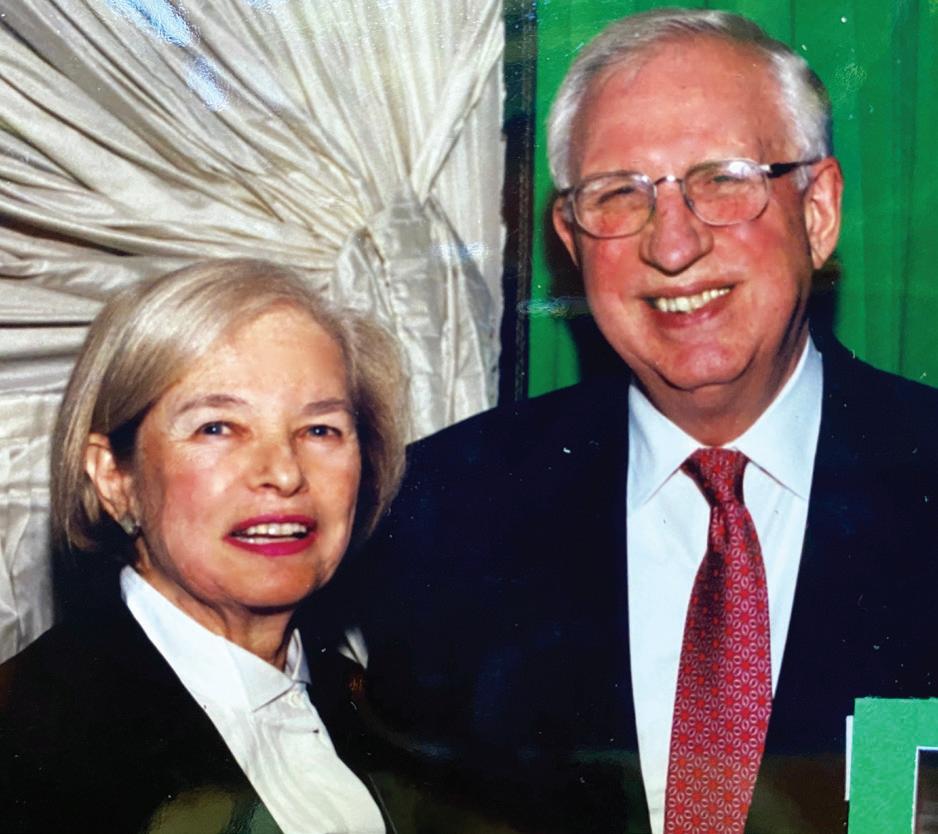
FASTrack helps first-year students become successful members of the UM community by offering them smaller and enhanced classes, one-on-one mentoring, and student leadership opportunities.
This is the latest among 30 years’ worth of gifts to the university by McMullan and her late husband, Jim McMullan—a 1956 graduate—and the James and Madeleine McMullan Family Foundation, established in 1987 and now managed by the couple’s daughters Carlette McMullan of Lake Forest, Illinois, and Margaret McMullan of Pass Christian. To date, the family’s foundation has given $1.25+ million in scholarships to UM.
“The university is incredibly grateful for the steadfast support of Madeleine, Jim, and the entire McMullan family,” Chancellor Glenn Boyce said. “They have provided us with extraordinary resources that benefit our students and strengthen our academic programs. Their generous commitments are an essential part of how our standard of sustained excellence moves higher and higher.”
The sisters incorporate their parents’ primary philanthropic concerns and goals into every decision they make. “Our parents were both keen on education, community work, health care, and organizations that help the underserved,” Margaret McMullan said. “My sister and I always consider them when we make foundation decisions. We are so proud of UM’s faculty, staff, and students for sharing our parents’ vision.”
“Our Mississippi-born and raised father was deeply interested in and passionate about Southern history and supporting research and learning,” Carlette McMullan said. “Our parents’ shared passion for helping those less fortunate and their confidence in the benefits of education, inspired much of their philanthropy. We are excited
to continue our family foundation’s partnership with the university and the FASTrack initiative.”
The McMullans’ gifts supplied additional resources to funds established by the family in 2016: the Fund for Student Success, which supports an academic mentor position in the FASTrack program, and the Fund for Student Leadership, which underwrites new student leadership positions and/or peer mentors for FASTrack participants.
Trynica Wash of Newton, a recent McMullan Scholar and allied health studies major, said the McMullan family made it possible for her to achieve her dream of attending college. “Because of the opportunities they have given me, I continue to be motivated to work hard and get the best grades possible so I can graduate in 2023. Their contributions to scholarships and FASTrack are helping many students succeed.”
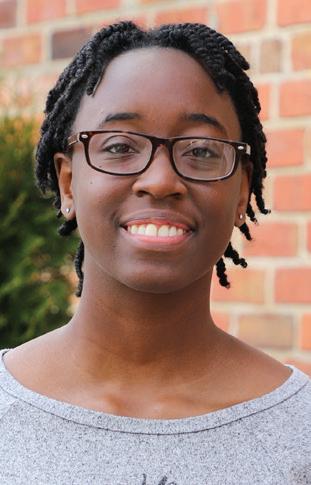
The James M. and Madeleine M. McMullan Faculty Endowment, in the McMullans’ first major gift to the Center for the Study of Southern Culture, funded the hiring of two new professors who were joint appointments in literature and anthropology. The literature position is held by Kathryn McKee, the McMullan Professor of Southern Studies, an English professor, and director of the Center for the Study of Southern Culture. The anthropology position is held by Simone Delerme, the McMullan Associate Professor of Southern Studies and Anthropology. Additionally, the McMullans’ longtime support of UM includes the Hardin Future of the South Endowment, Friends of the Library, Thelma Boozer McMullan Memorial Library Endowment, Ann Abadie Fund for the Oxford Conference for the Book, and scholarships on the Oxford campus, as well as the Dr. Guy Gillespie Jr. Endowment on the UM Medical Center campus in Jackson.
Alumni Kirk (BA political science 80) and Shelly Morgan (BA education 81), of Lexington, South Carolina, celebrated UM’s Giving Day with a $100,000 gift to help the College recruit and retain top faculty.
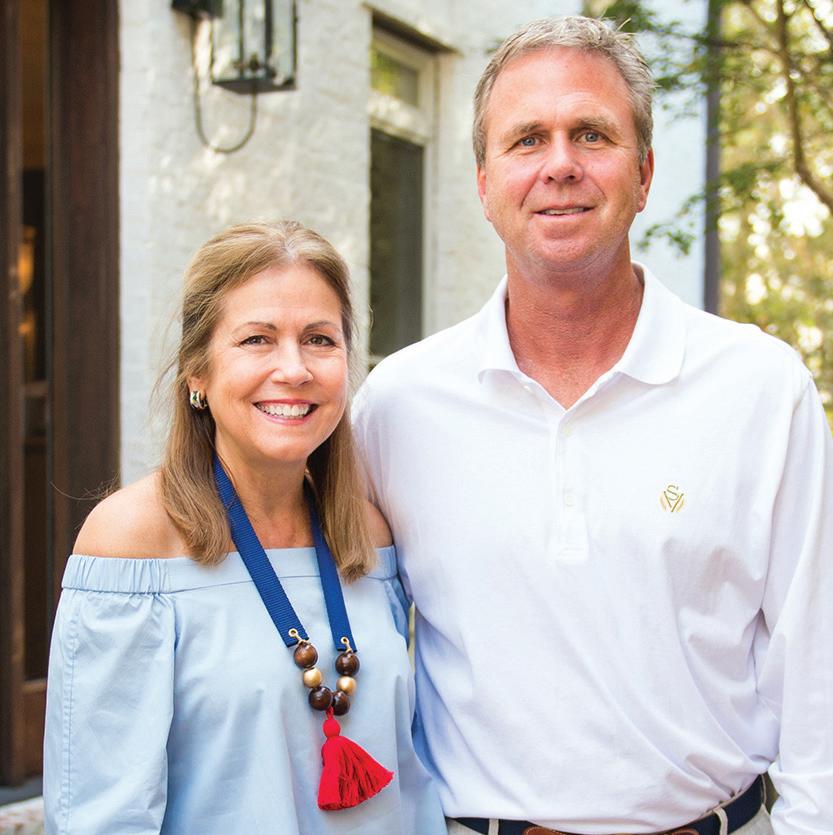
Of course, the biggest beneficiaries of the Shelly and Kirk Morgan Fund for Faculty Excellence are students.
“We feel like we’re contributing to the quality education that Ole Miss students receive,” said Kirk Morgan. “So many people at the university and in the College of Liberal Arts are sincerely interested in strengthening academics, attracting a diverse student body, and equipping students for success. We’re happy to contribute meaningfully to that effort.”
The beloved retired administrator and English professor died February 24, 2022, at 87.
A trailblazer who became the university's first provost, Gerald Walton arrived in 1956 for his master’s and doctoral degrees in English and joined the faculty in 1962. During his 37-year tenure, he was director of Freshman English, associate dean and dean of the College of Liberal Arts, and associate vice chancellor for academic affairs. He was also acting vice chancellor for academic affairs on three separate occasions, interim chancellor for a month in 1995, and provost from 1996 until he retired in 1999.
A prolific writer and unofficial UM historian, Walton authored The University of Mississippi: A Pictorial History (Booksmith Group). With 400+ pages of imagery and nostalgia, the book captures the campus taking shape from its establishment to 2008.
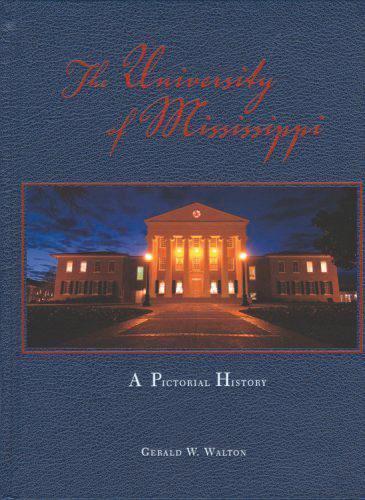
He previously served as vice president of the Oxford-University Human Relations Council, was a member of the board of directors of the Yoknapatawpha Arts Council, chair of the Oxford-Lafayette County Heritage Foundation, a member of the Oxford Preservation Commission, and president of the Lafayette County Genealogical and Historical Society.
He was secretary of the Rotary Club of Oxford and a Paul Harris Fellow. At the statewide level, he was a member of the board of trustees of the Mississippi Heritage Trust and secretary of the Mississippi Institute for Arts & Letters. He was the longtime secretary-treasurer of UM’s Friends of the Library.
Born in Neshoba County, Walton received his bachelor’s degree in English at the University of Southern Mississippi and held a one-year postdoctoral fellowship at the University of Nebraska.
“Gerald Walton was a respected academician, administrator, and longtime friend,” said Chancellor Emeritus Robert C. Khayat. “His dedication to Ole Miss, its people, and its future was unwavering. His perseverance and wise counsel were greatly appreciated. I will always remember him for his intellect, creativity, kindness, tolerance, and strong value system.”
Founded in 1848, the College of Liberal Arts is the largest academic division of the University of Mississippi. The College encompasses the fine & performing arts, humanities, natural sciences & mathematics, and social sciences.
Lee M. Cohen Dean
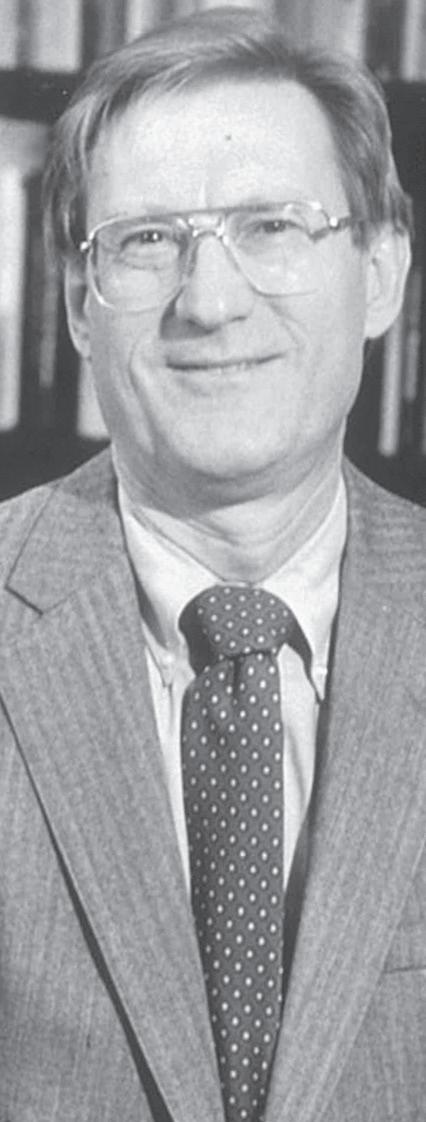
Kirsten Dellinger Associate Dean for Diversity Equity and Inclusion
Donald L. Dyer Associate Dean for Faculty and Academic Affairs
Holly Reynolds Associate Dean
Delia Childers Associate Director of Development
Nikki Neely Davis Assistant Vice Chancellor of Development
Caroline Hourin Associate Director of Development
Suzette Matthews Executive Director of Development
Claire Moss Associate Director of Development
Robert Patterson Development Associate
AEROSPACE STUDIES
LTC Chris Maroney, Chair
AFRICAN AMERICAN STUDIES
Derrick Harriell, Acting Director
ART & ART HISTORY
Michael Barnett, Acting Chair
BIOLOGY
Sixue Chen, Chair
CHEMISTRY & BIOCHEMISTRY
Greg Tschumper, Chair
CLASSICS
Molly Pasco-Pranger, Chair
ECONOMICS
Joshua Hendrickson, Chair
ENGLISH
Caroline Wigginton, Chair
HISTORY
Charles Ross, Acting Chair
INTERNATIONAL STUDIES
Oliver Dinius, Director
MATHEMATICS
James Reid, Chair
MILITARY SCIENCE
LTC Vincent L. Jackson, Chair
MODERN LANGUAGES
Daniel O’Sullivan, Chair
MUSIC
Nancy Maria Balach, Chair
NAVAL SCIENCE
CAPT David Whitehead, Chair
PHILOSOPHY & RELIGION
Steven Skultety, Chair
PHYSICS & ASTRONOMY
Luca Bombelli, Chair
POLITICAL SCIENCE
John Bruce, Chair
PSYCHOLOGY
Rebekah Smith, Chair
PUBLIC POLICY LEADERSHIP
Mark Chen, Chair
SOCIOLOGY & ANTHROPOLOGY
Jeff Jackson, Chair
THEATRE & FILM
Michael Barnett, Chair
WRITING & RHETORIC
Stephen Monroe, Chair
CENTER FOR ARCHAEOLOGICAL RESEARCH
Jeff Jackson, Director
HALEY BARBOUR CENTER FOR THE STUDY OF AMERICAN POLITICS
CENTER FOR BIODIVERSITY & CONSERVATION RESEARCH
Richard Buchholz, Director
CENTER FOR CIVIL WAR RESEARCH
April Holm, Director
CLINICAL-DISASTER RESEARCH CENTER
Stefan Schulenberg, Director
CENTER FOR ECONOMIC SCIENCE AND ECONOMIC EDUCATION
Mark Van Boening, Director
FASTRACK LEARNING COMMUNITY
Suzanne Wilkin, Acting Director
GROVE SCHOLARS
Gray Flora IV, Director
HEALTH PROFESSIONS ADVISING OFFICE
Sovent Taylor, Director
GRISHAM–MCLEAN INSTITUTE FOR PUBLIC SERVICE & COMMUNITY ENGAGEMENT
Albert Nylander, Director
MISSISSIPPI GEOGRAPHIC ALLIANCE
David Rutherford, Director
CENTER FOR MULTI-MESSENGER
ASTROPHYSICS
Breese Quinn, Director
CENTER FOR POPULATION STUDIES
Anne Cafer, Director
PRISON-TO-COLLEGE PIPELINE PROGRAM
Patrick Alexander, Cofounder
PSYCHOLOGICAL SERVICES CENTER
Kristin Austin, Director
SARAH ISOM CENTER FOR WOMEN & GENDER STUDIES
Jaime Harker, Director
SOCIAL SCIENCE RESEARCH LABORATORY
Jonathan Winburn, Director
CENTER FOR THE STUDY OF SOUTHERN CULTURE
Katie McKee, Director
SOUTHERN DOCUMENTARY PROJECT
Andrew Harper, Director
SOUTHERN FOODWAYS ALLIANCE
Melissa Booth Hall, Mary Beth
Lasseter, Interim Codirectors
Through the general education foundation of the University of Mississippi undergraduate degree programs, the College of Liberal Arts ensures that all UM students are grounded in skills that are the mark of a well-educated citizen who is able to fully participate in our society, economy, and democracy. These skills include a strong foundation in written and oral communication, critical thinking, quantitative skills, ethics, and leadership. Our 43 undergraduate degrees, 52 minors, and 32 graduate degrees in the areas of fine & performing arts, humanities, natural sciences & mathematics, and social sciences teach students to successfully navigate complexity, diversity, and change in our world.
This publication, The View from Ventress, is published annually by the College of Liberal Arts University of Mississippi University, MS 38677
Telephone 662.915.7178
Email: ventress@olemiss.edu
Website: libarts.olemiss.edu.
The University of Mississippi does not discriminate against any student protected by law based on race, color, religion, sex, national origin, disability, age, veteran status, sexual orientation, or genetic information. 08/2022
